Multiplication and Division Worksheets
Doubling using Pictorial Representation
Year groups: 1
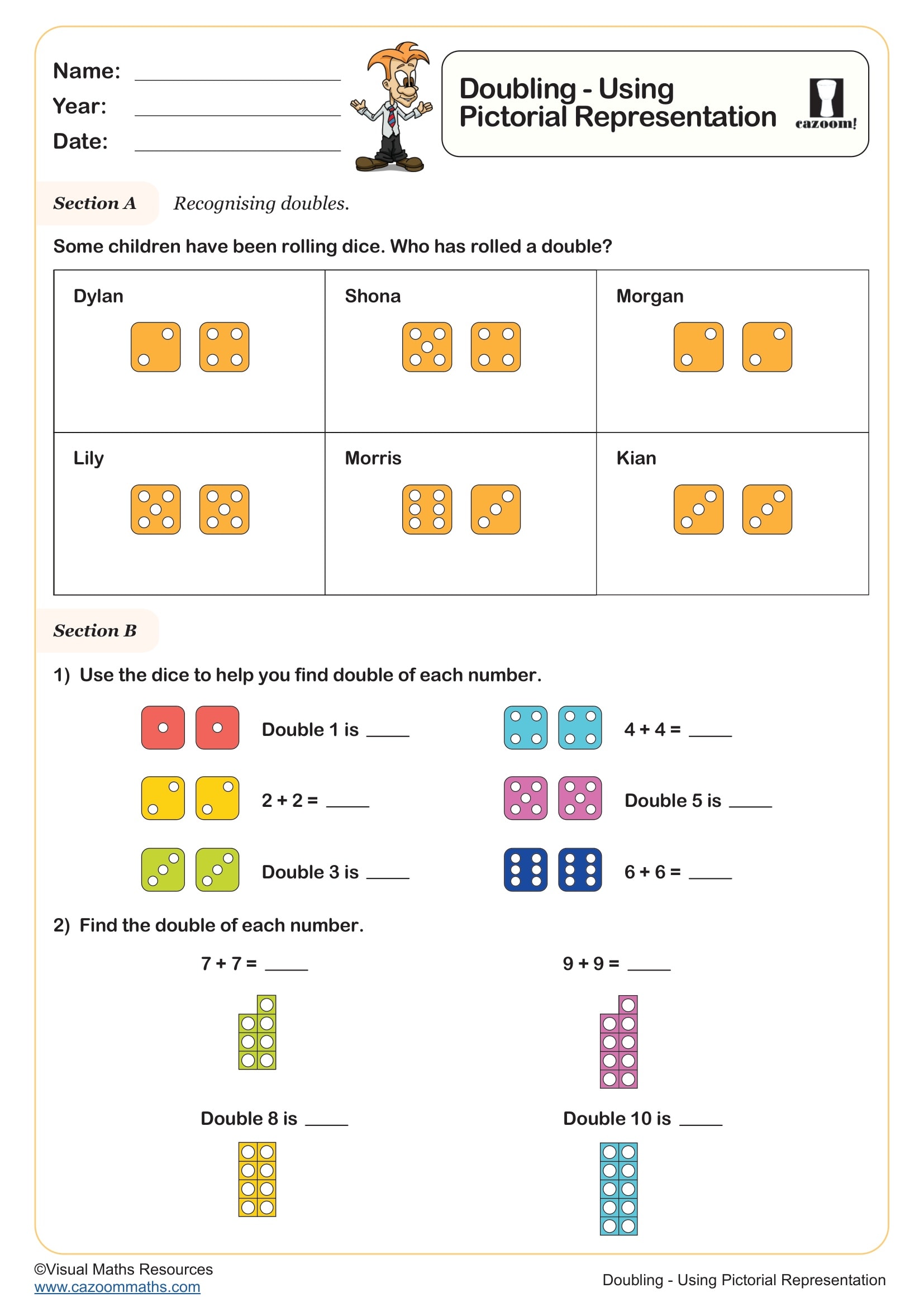
Making Arrays
Year groups: 1
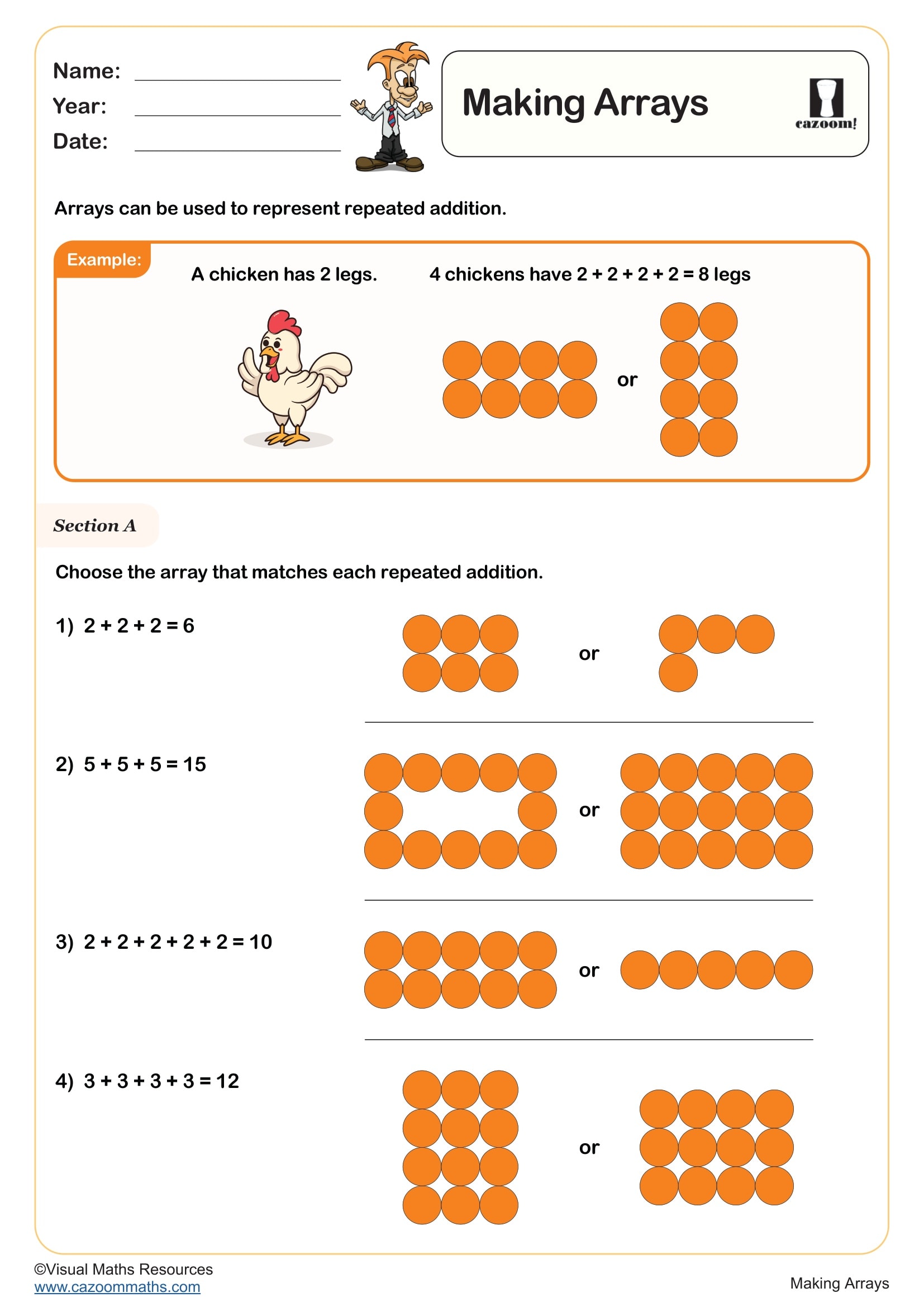
Repeated Addition
Year groups: 1
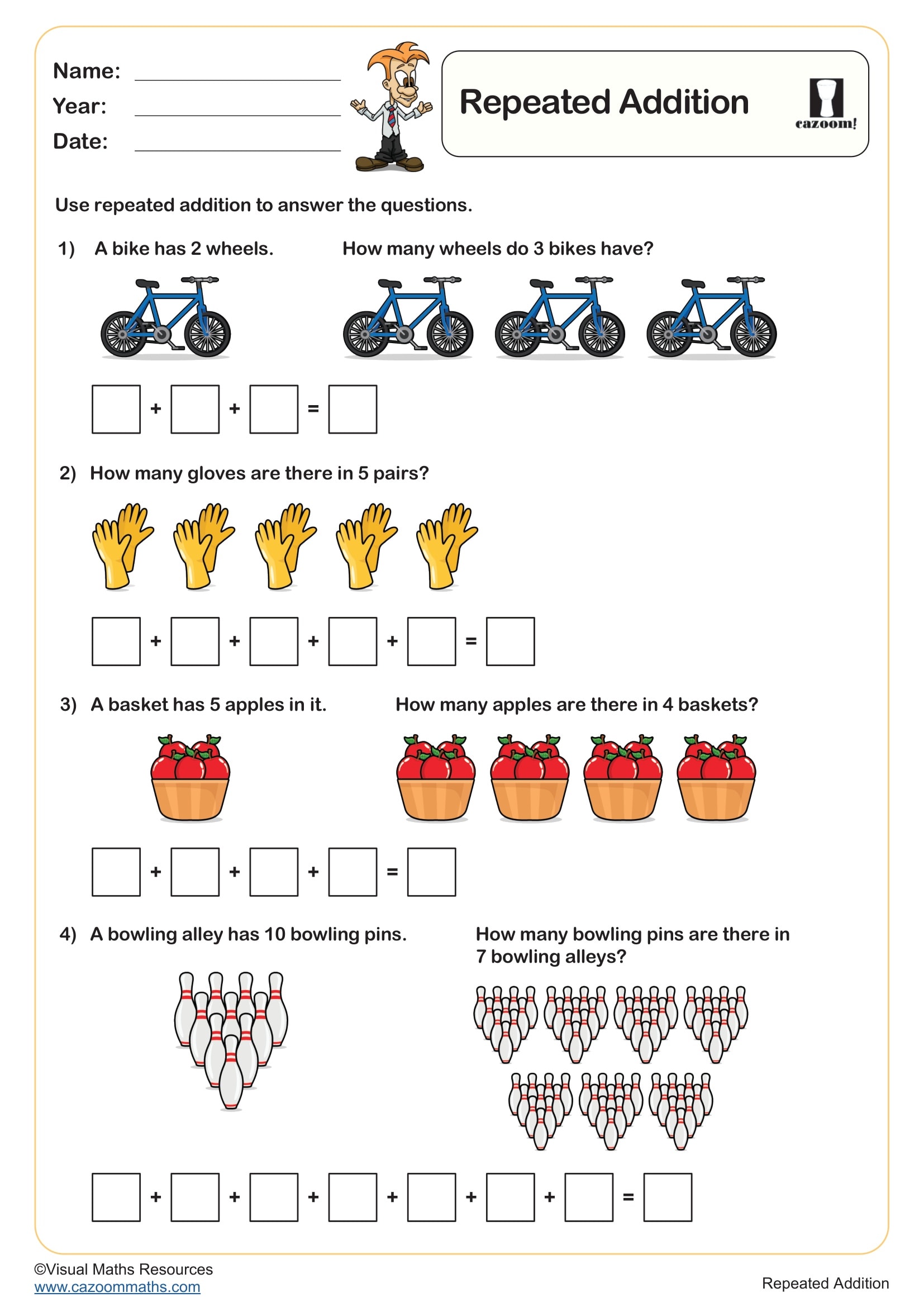
Doubling Numbers to 20 Multiplication
Year groups: 2, 3
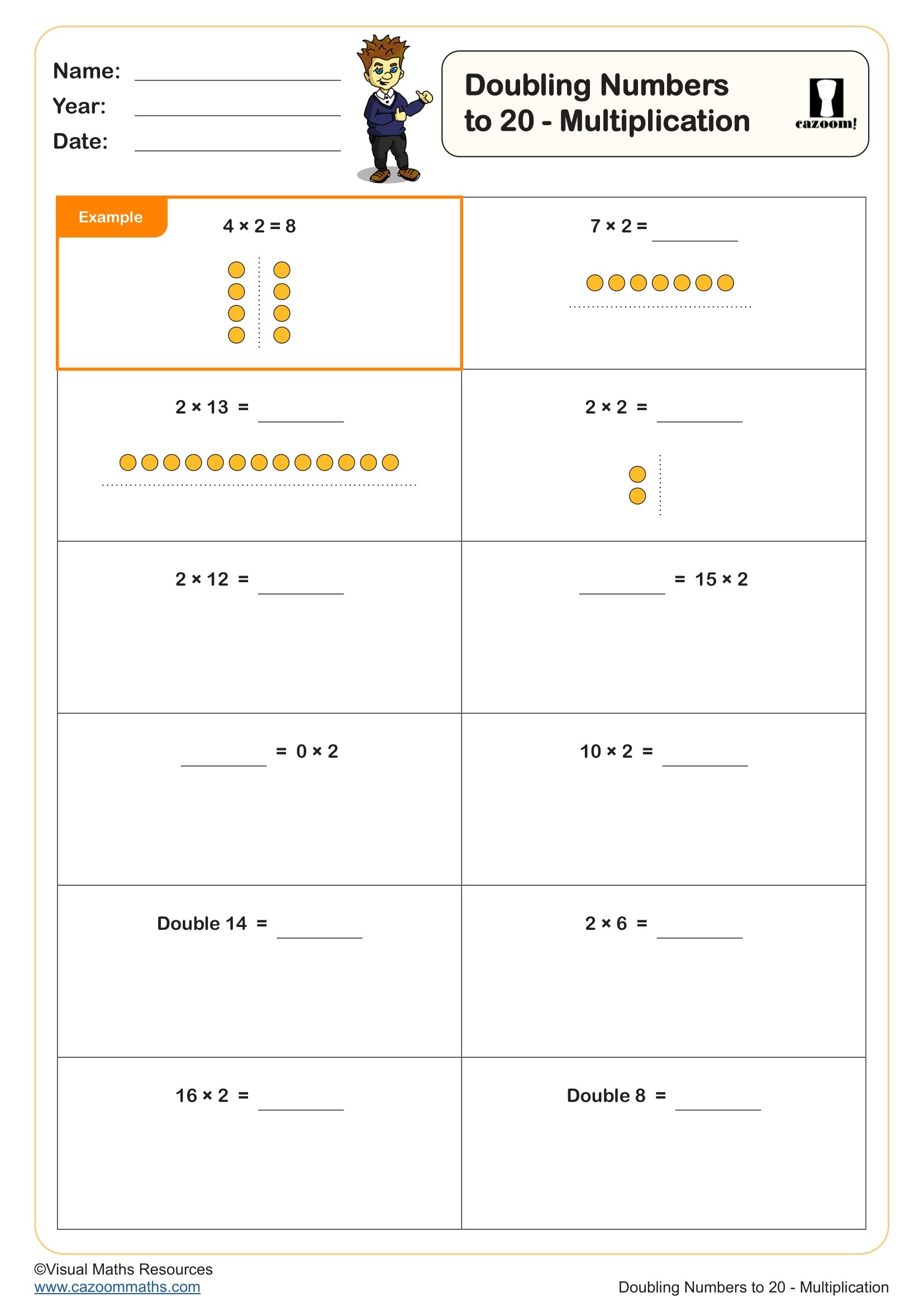
Halving Numbers to 20
Year groups: 2, 3
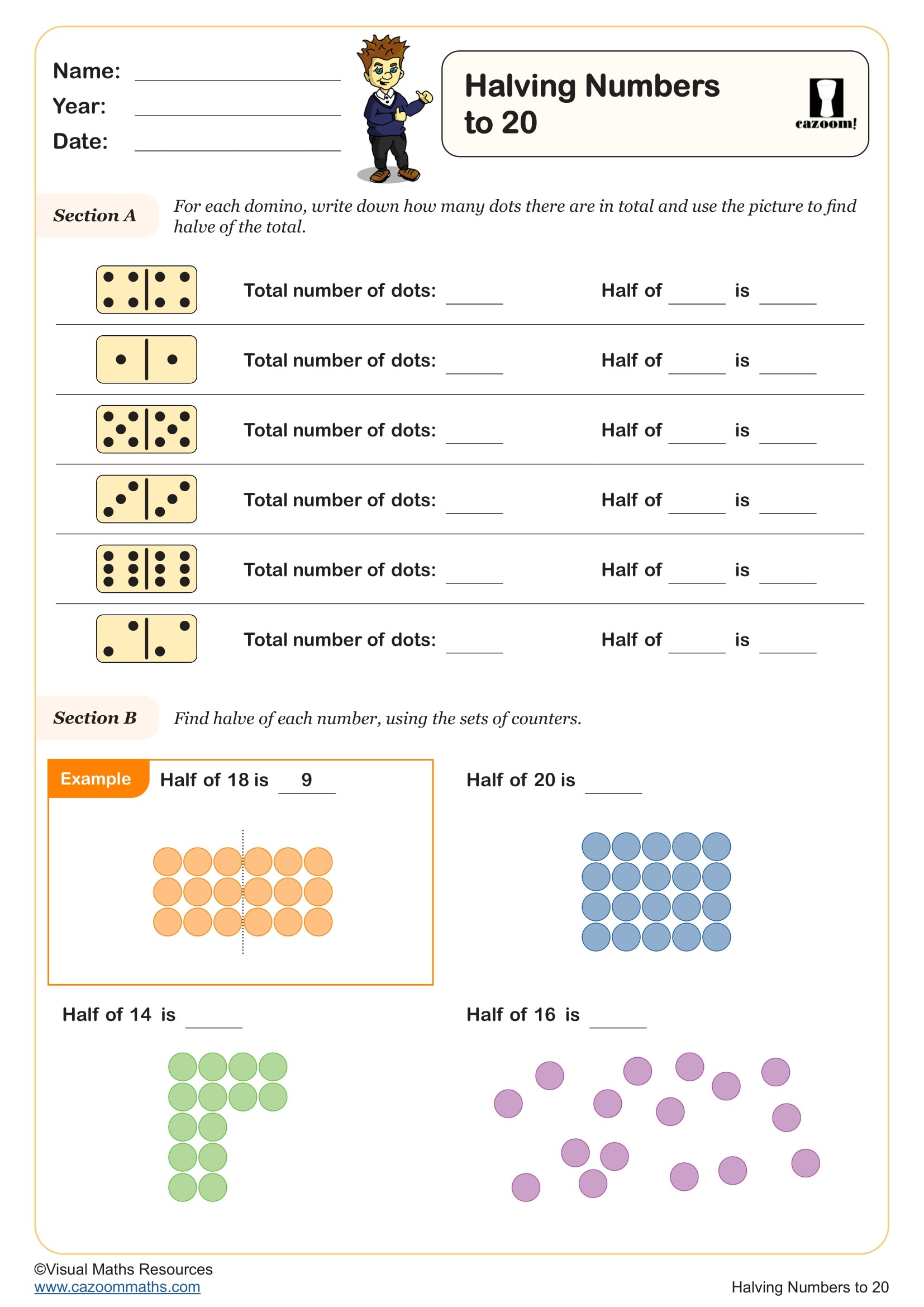
Introducing the Multiplication Symbol
Year groups: 2
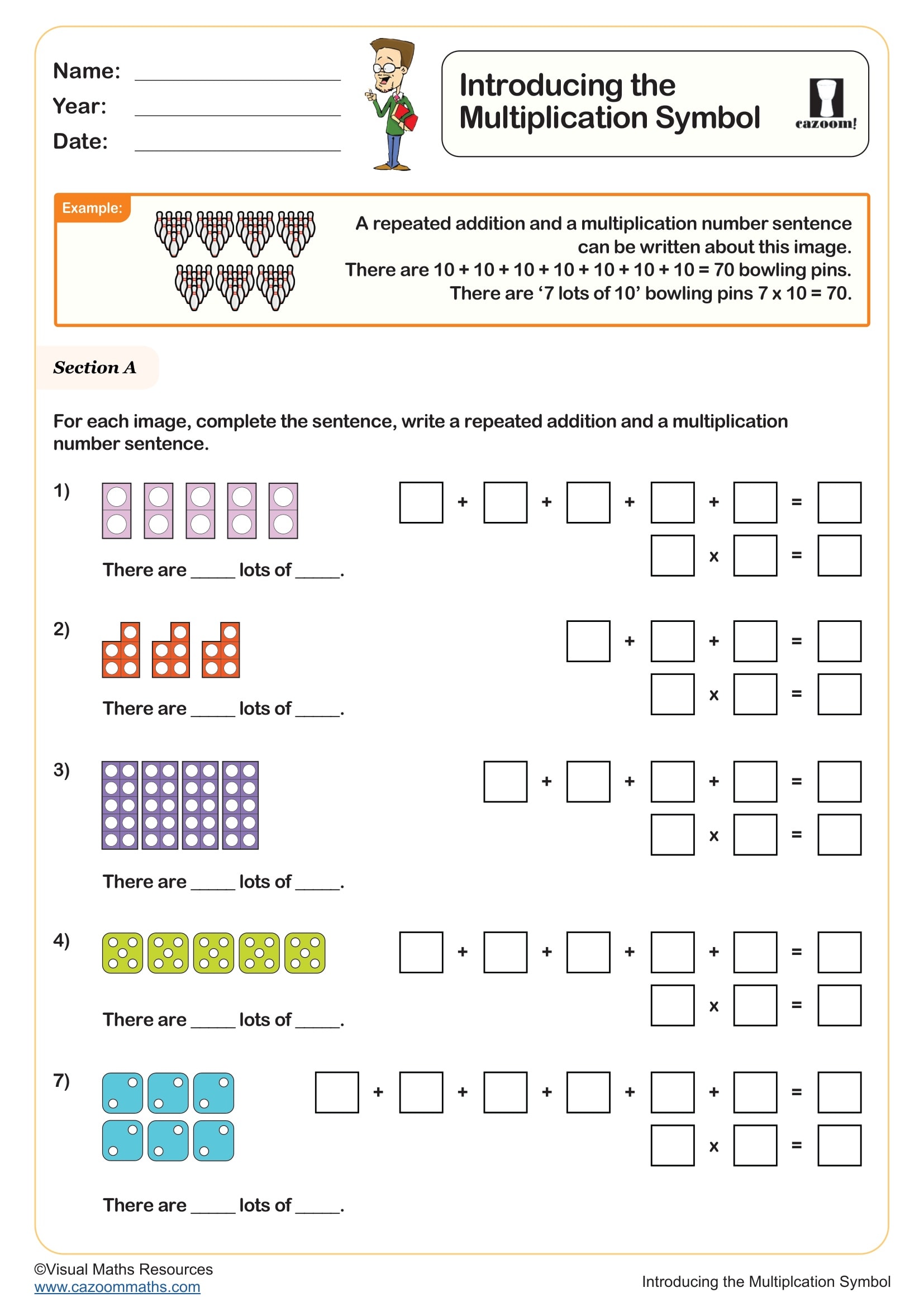
Multiplication and Division Fact Families
Year groups: 2
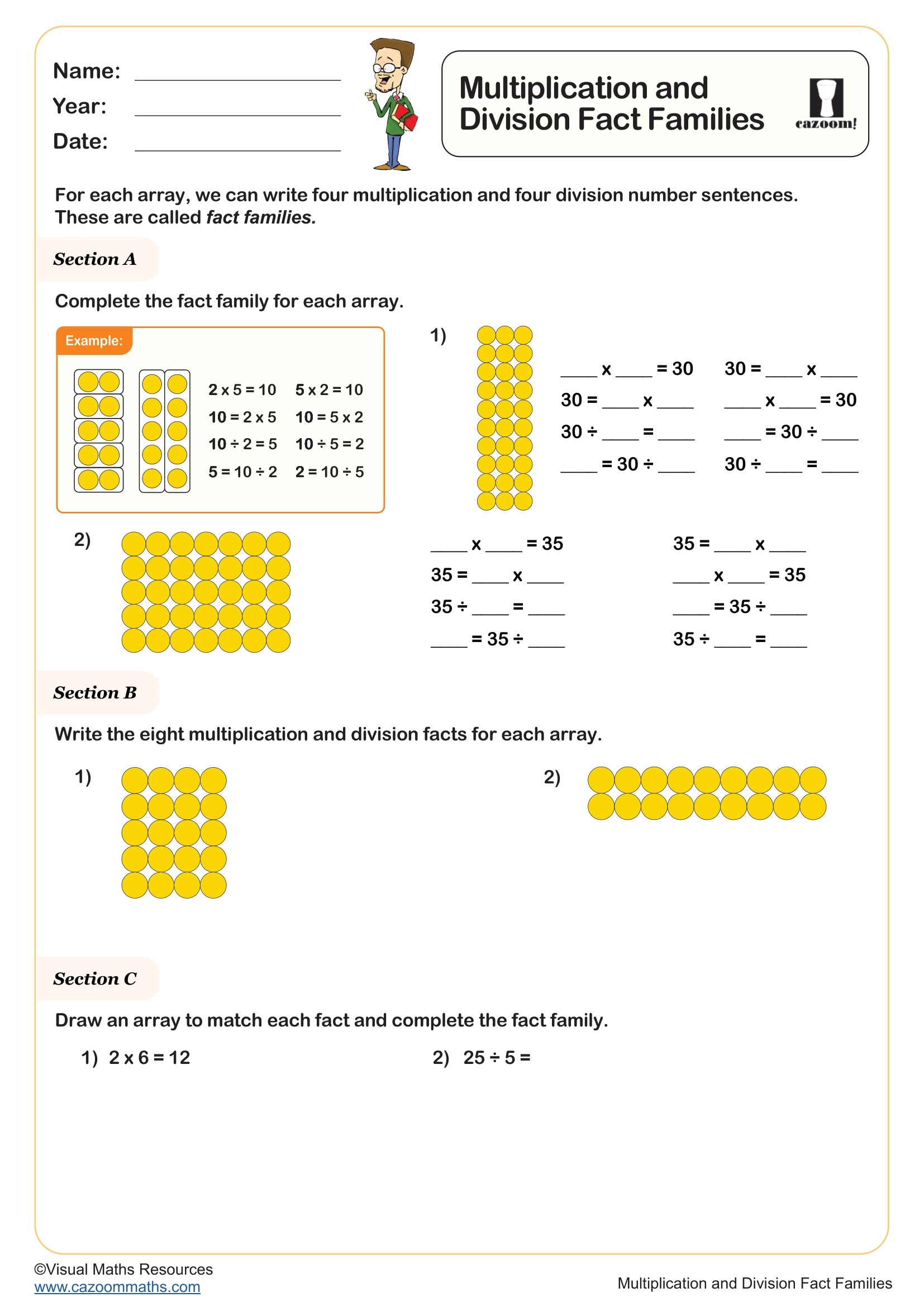
Odd and Even Numbers (A)
Year groups: 2
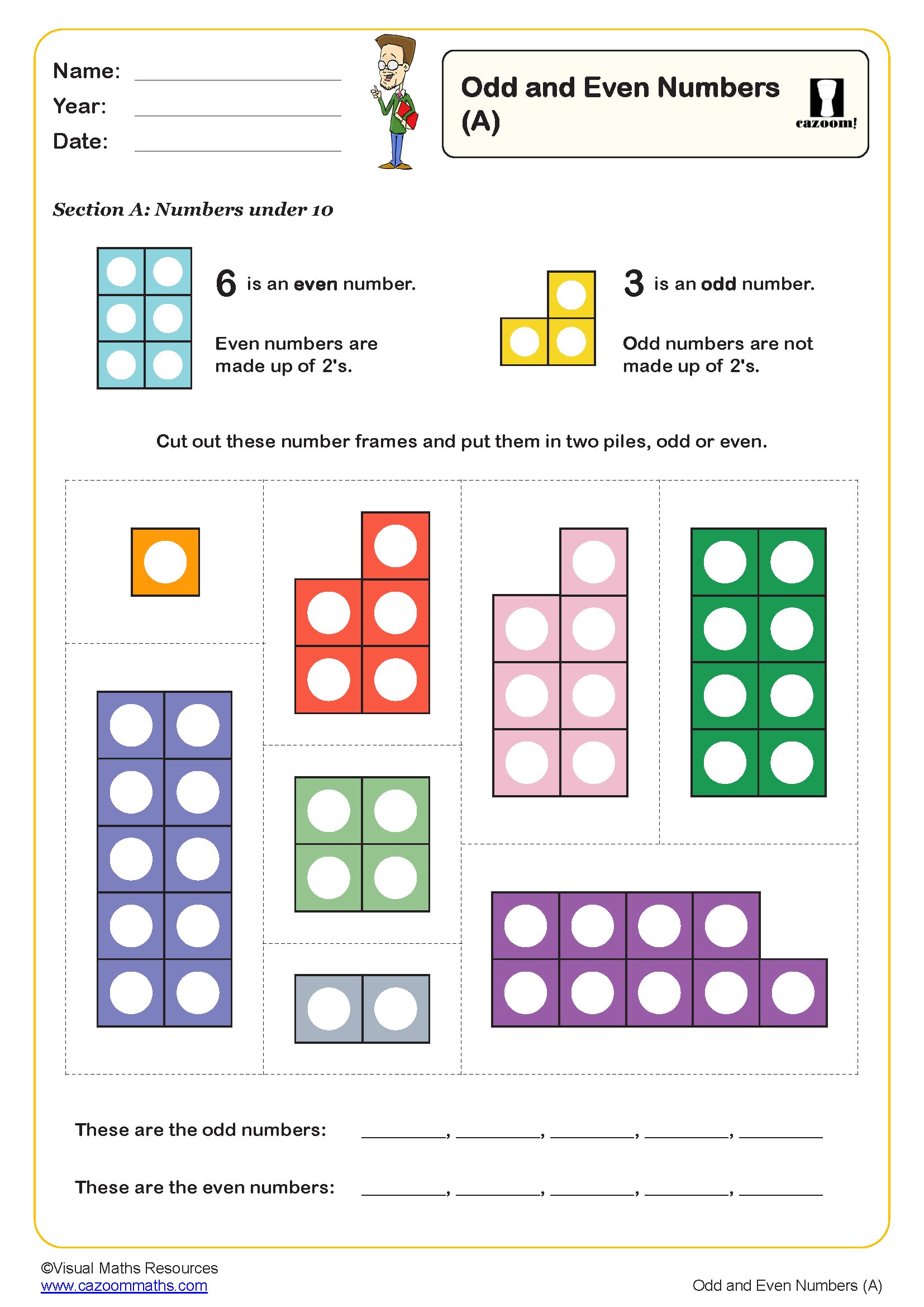
Odd and Even Numbers (B)
Year groups: 2
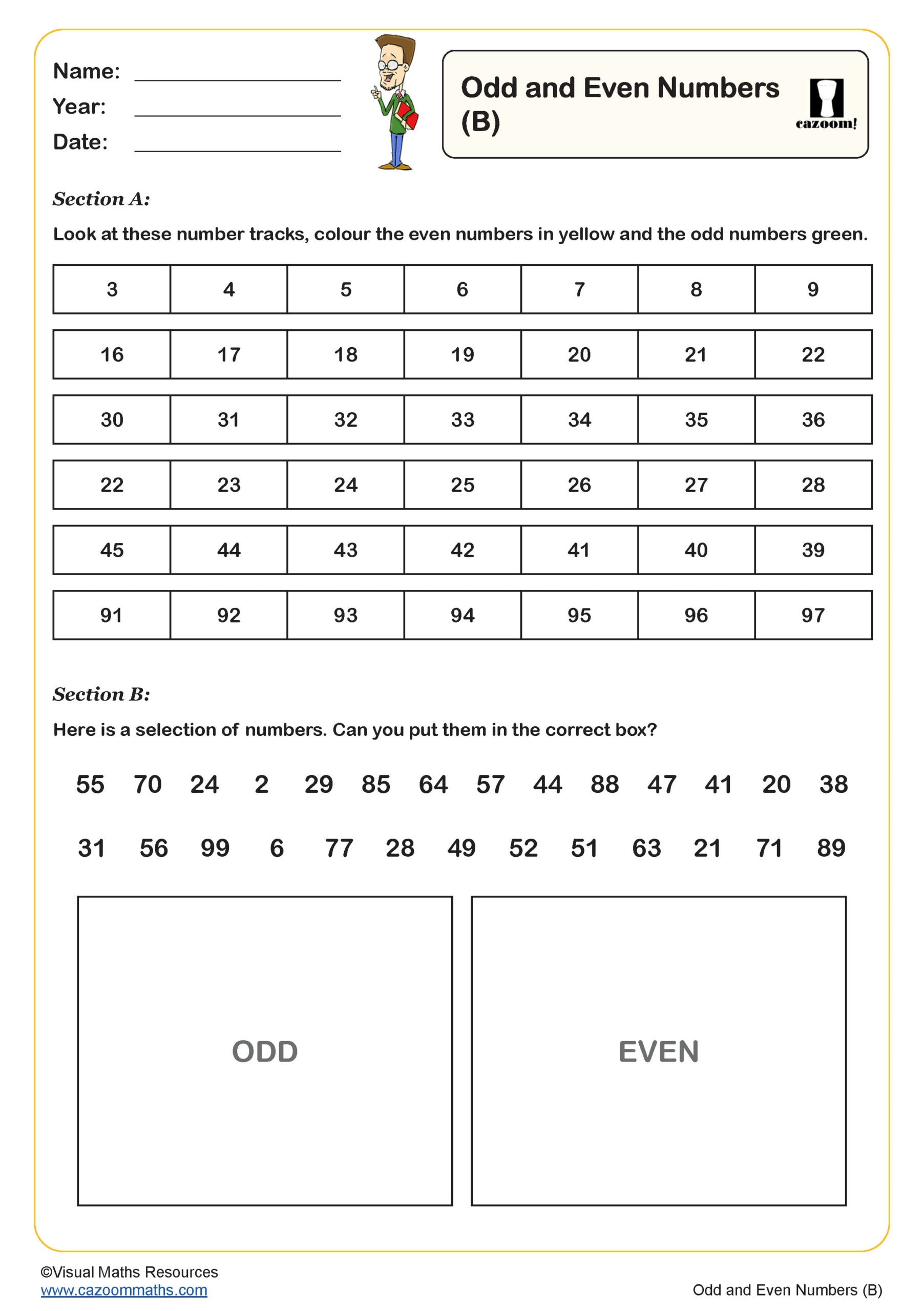
The Eight Times Table
Year groups: 2, 3
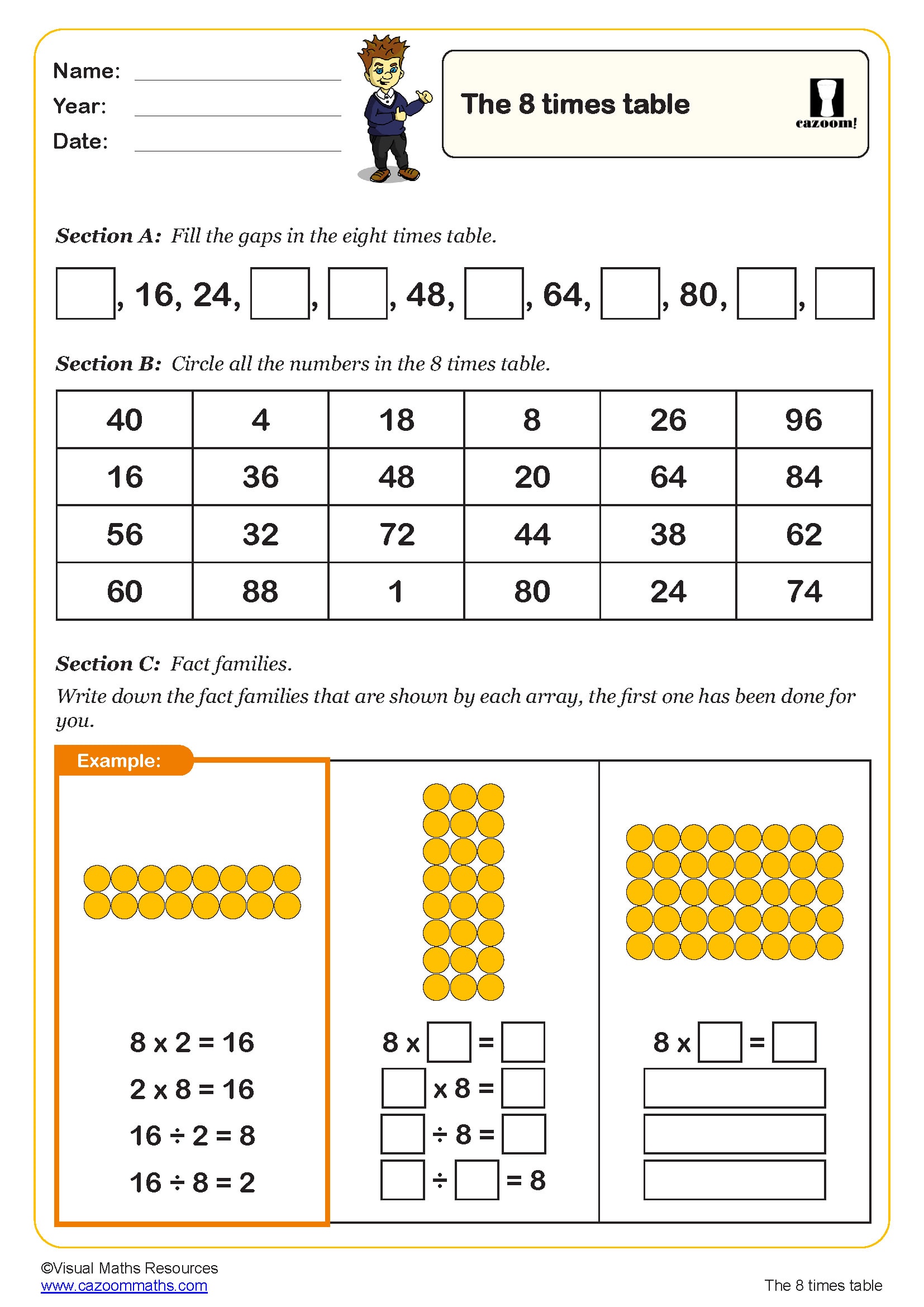
The Five Times Table
Year groups: 2, 3
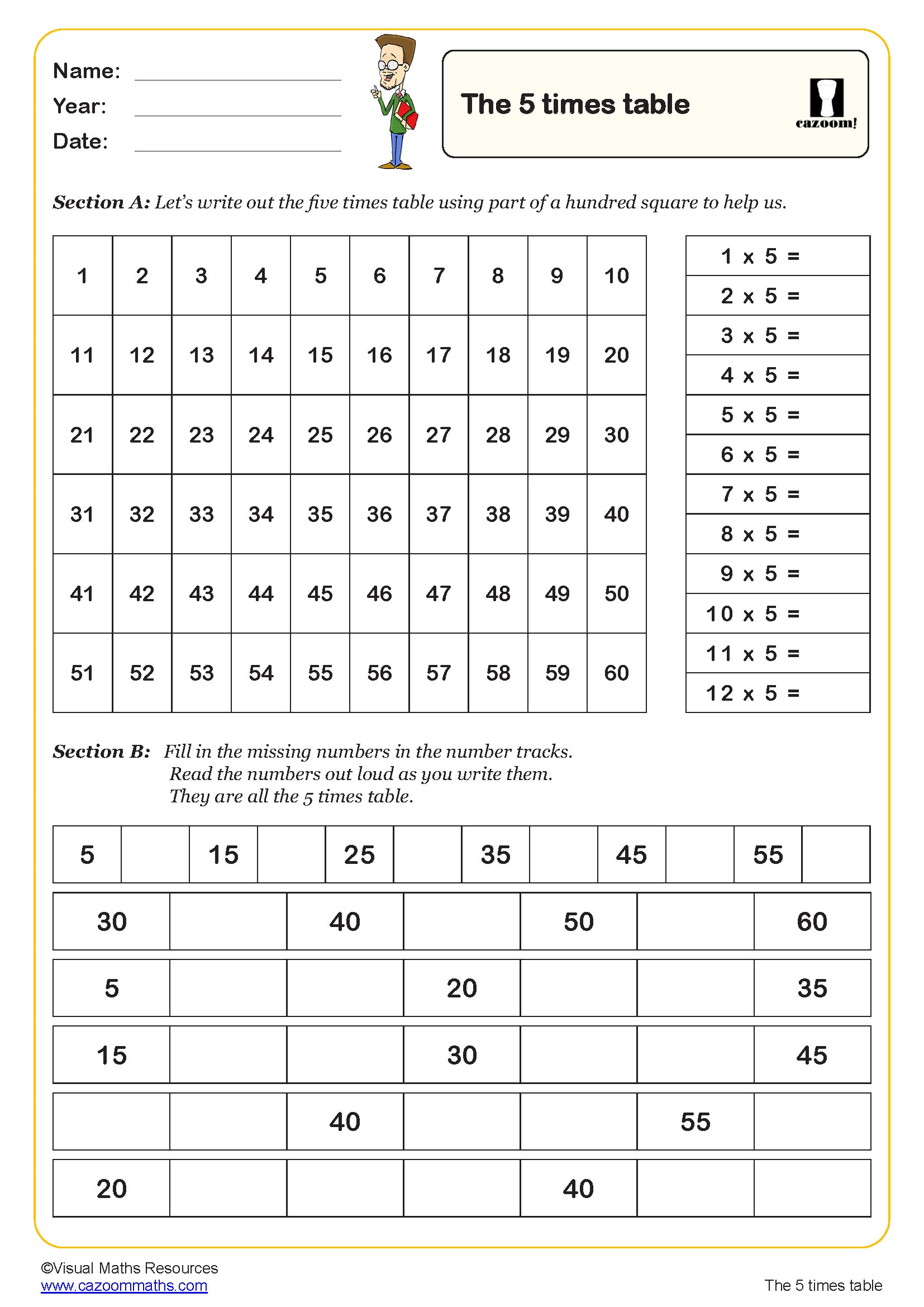
The Four Times Table
Year groups: 2, 3
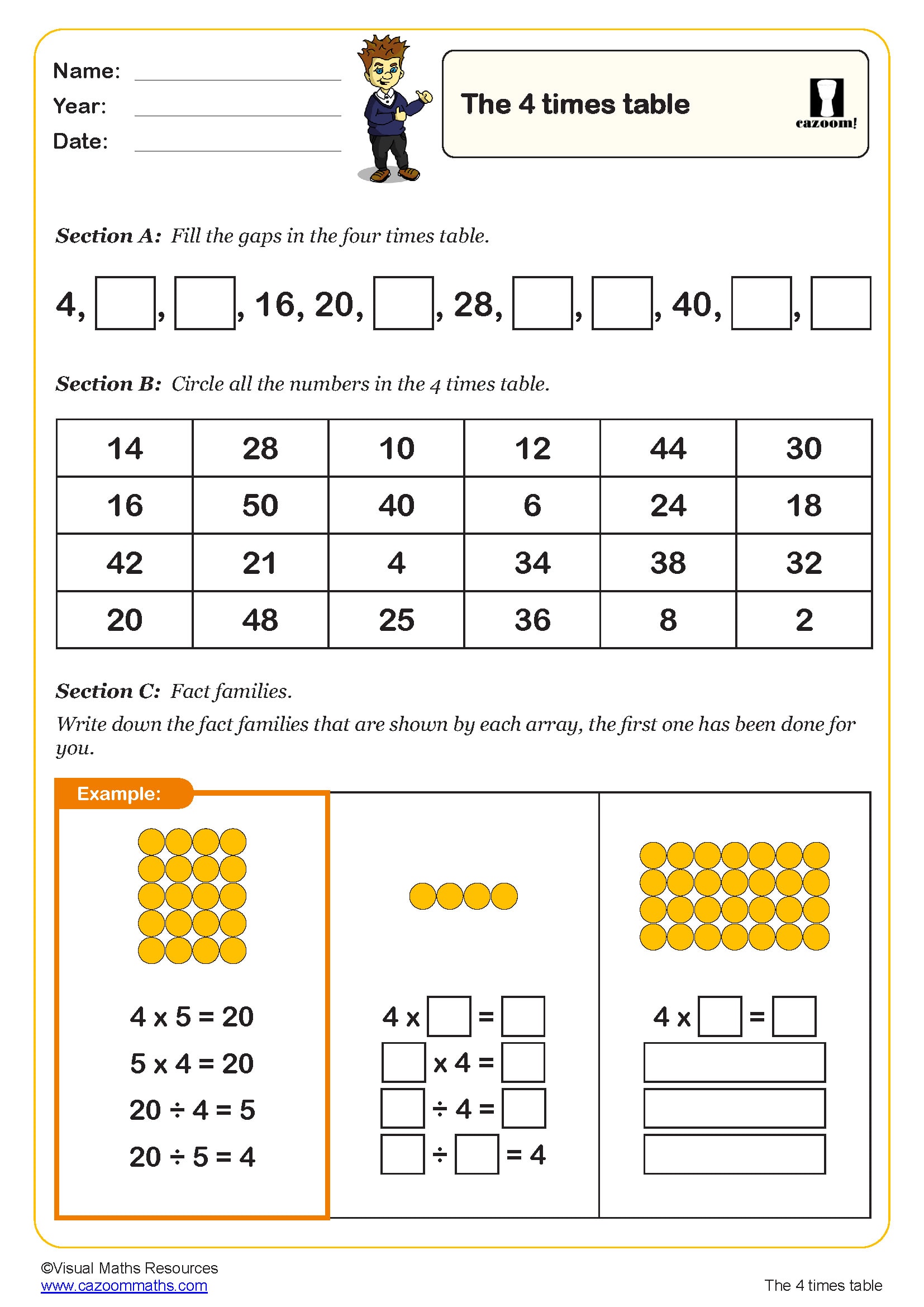
The Ten Times Table
Year groups: 2, 3
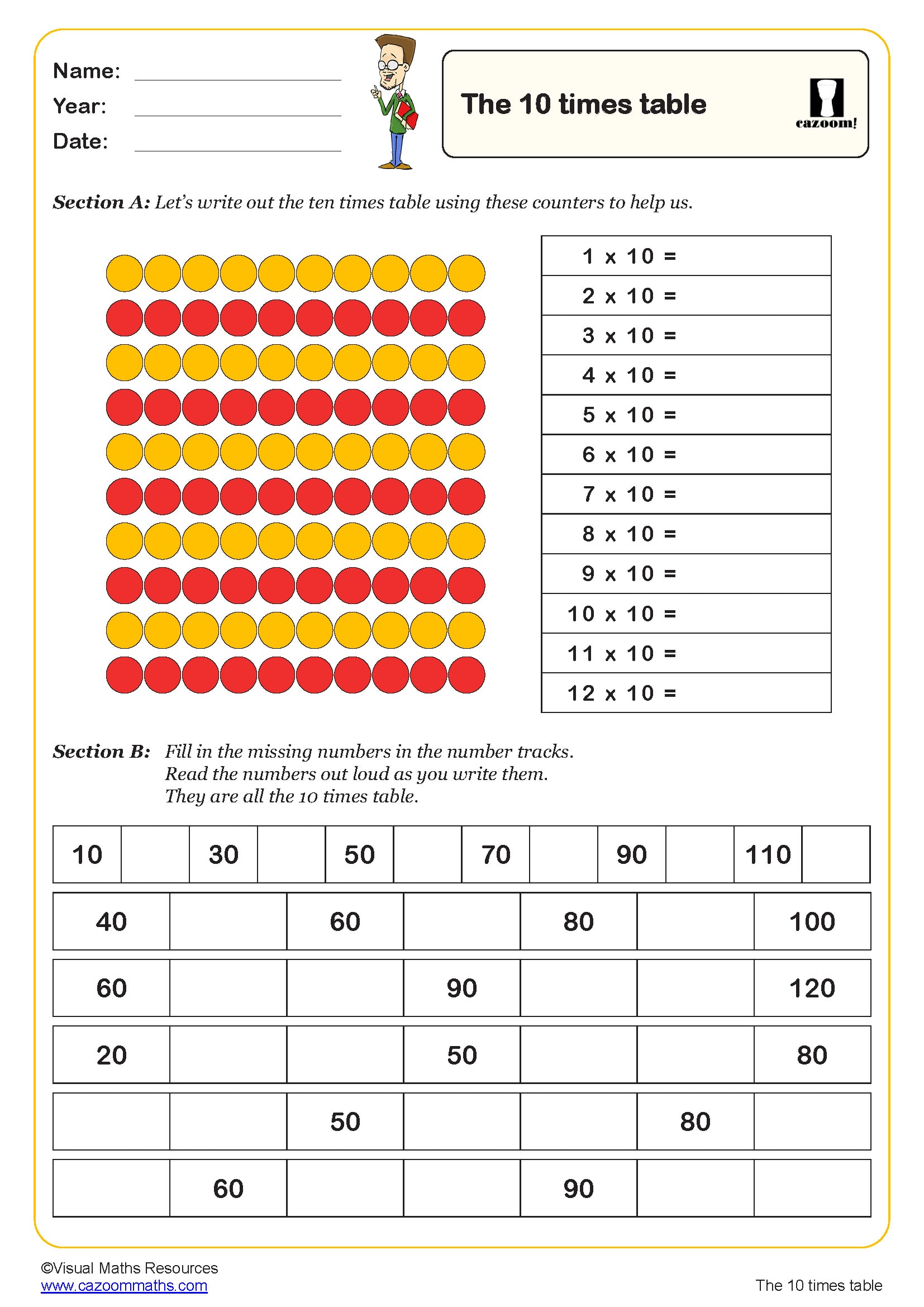
The Three Times Table
Year groups: 2, 3
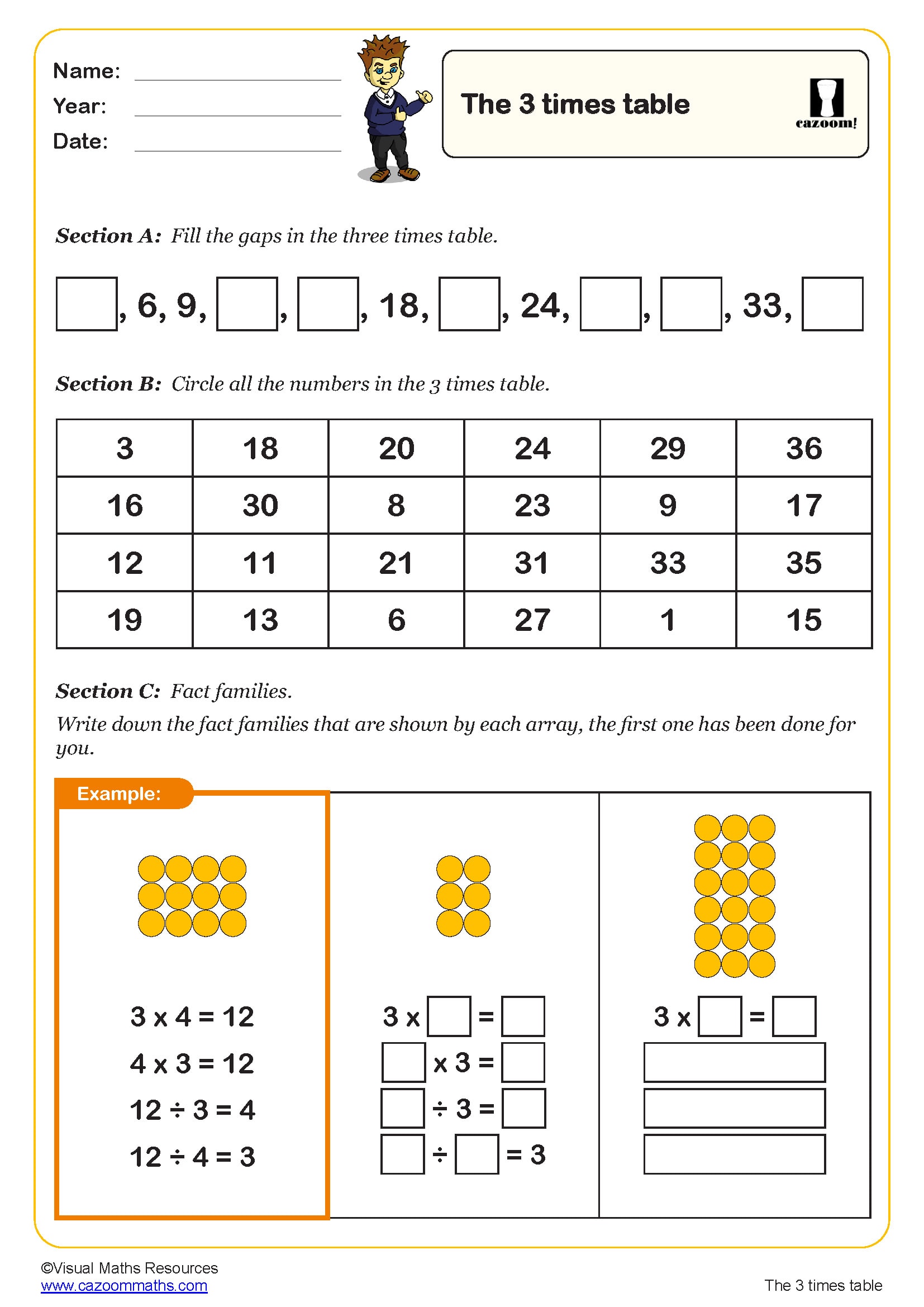
The Two Times Table
Year groups: 2, 3
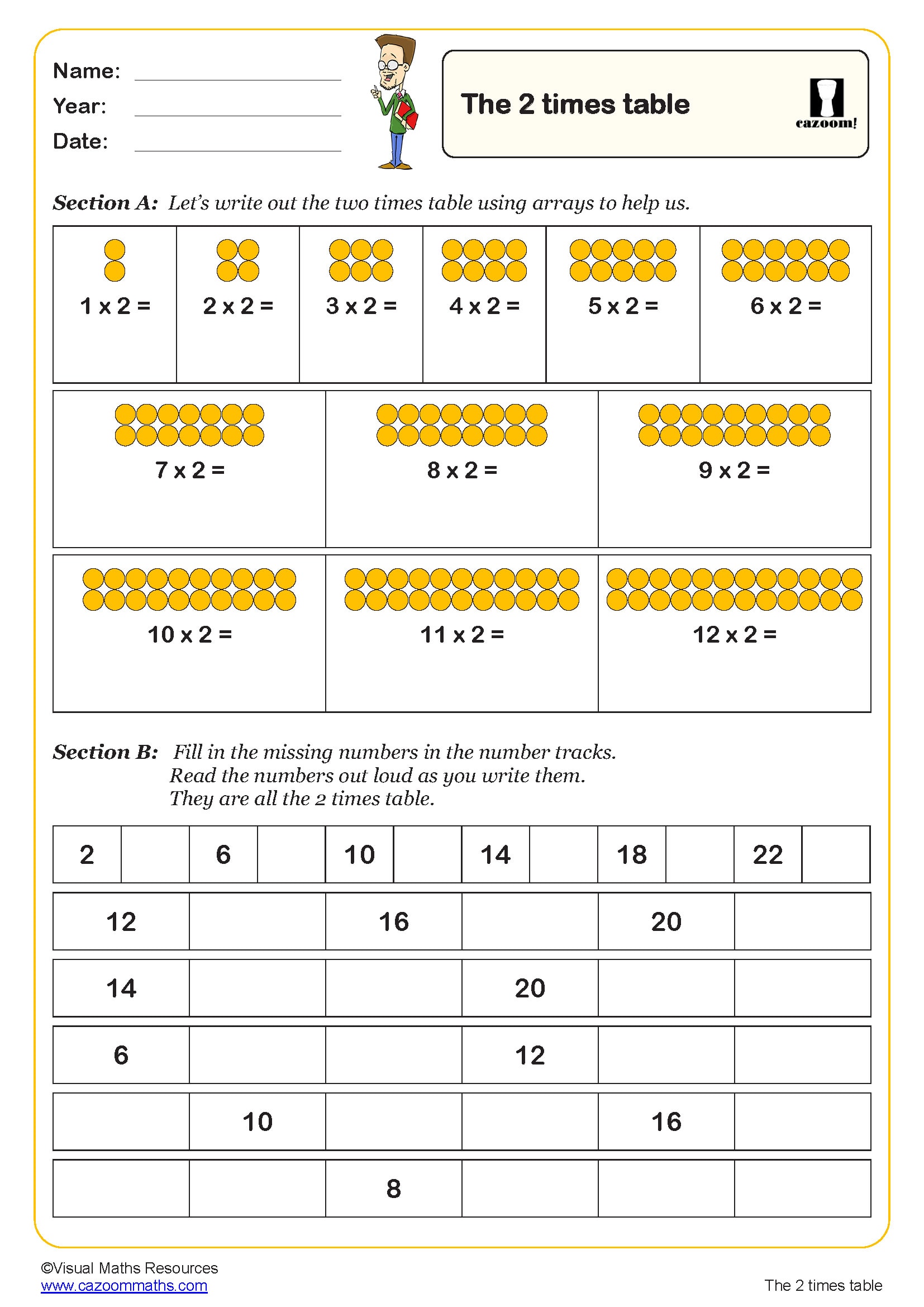
Using Arrays
Year groups: 2
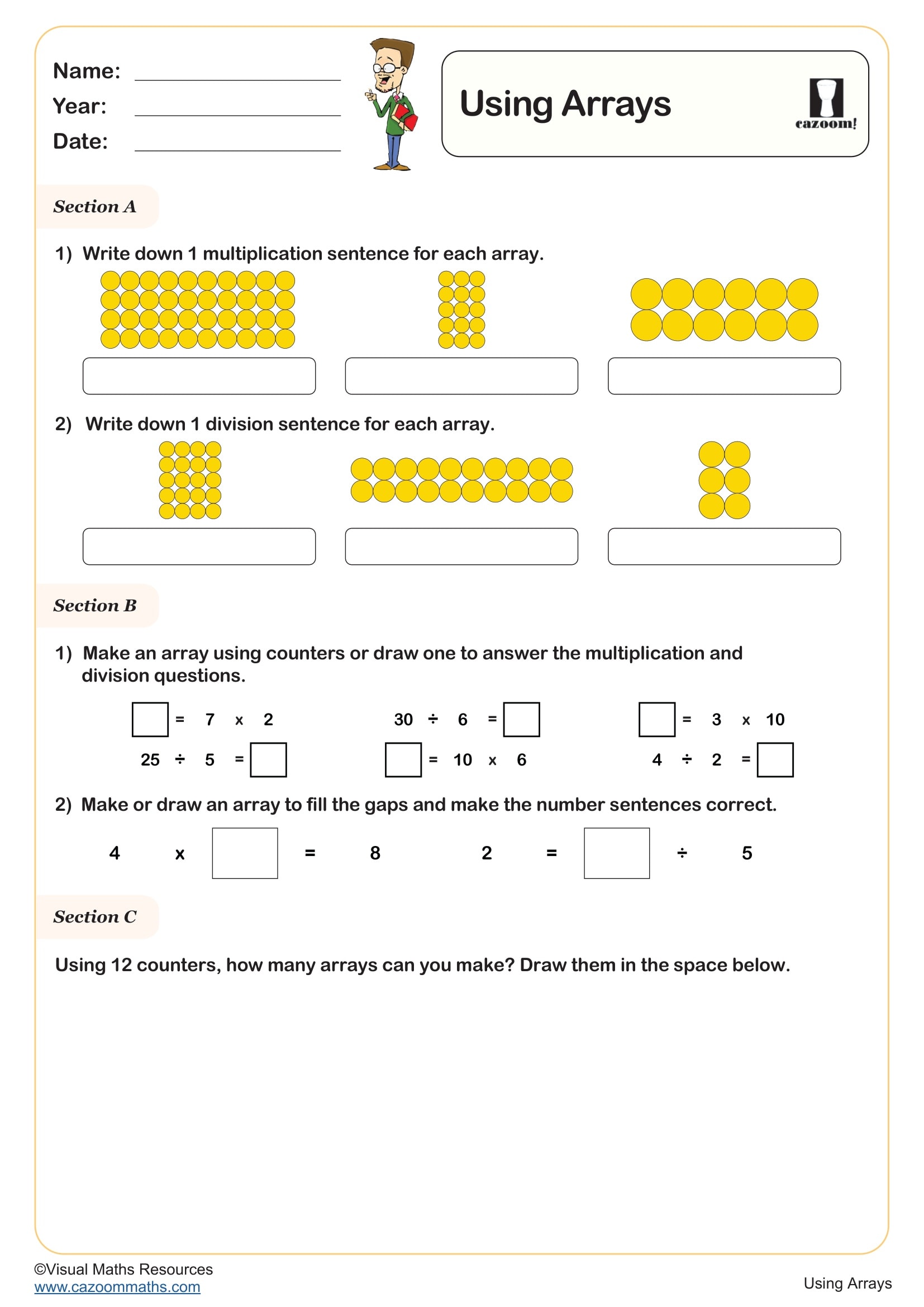
Associative, Commutative and Distributive Properties
Year groups: 3
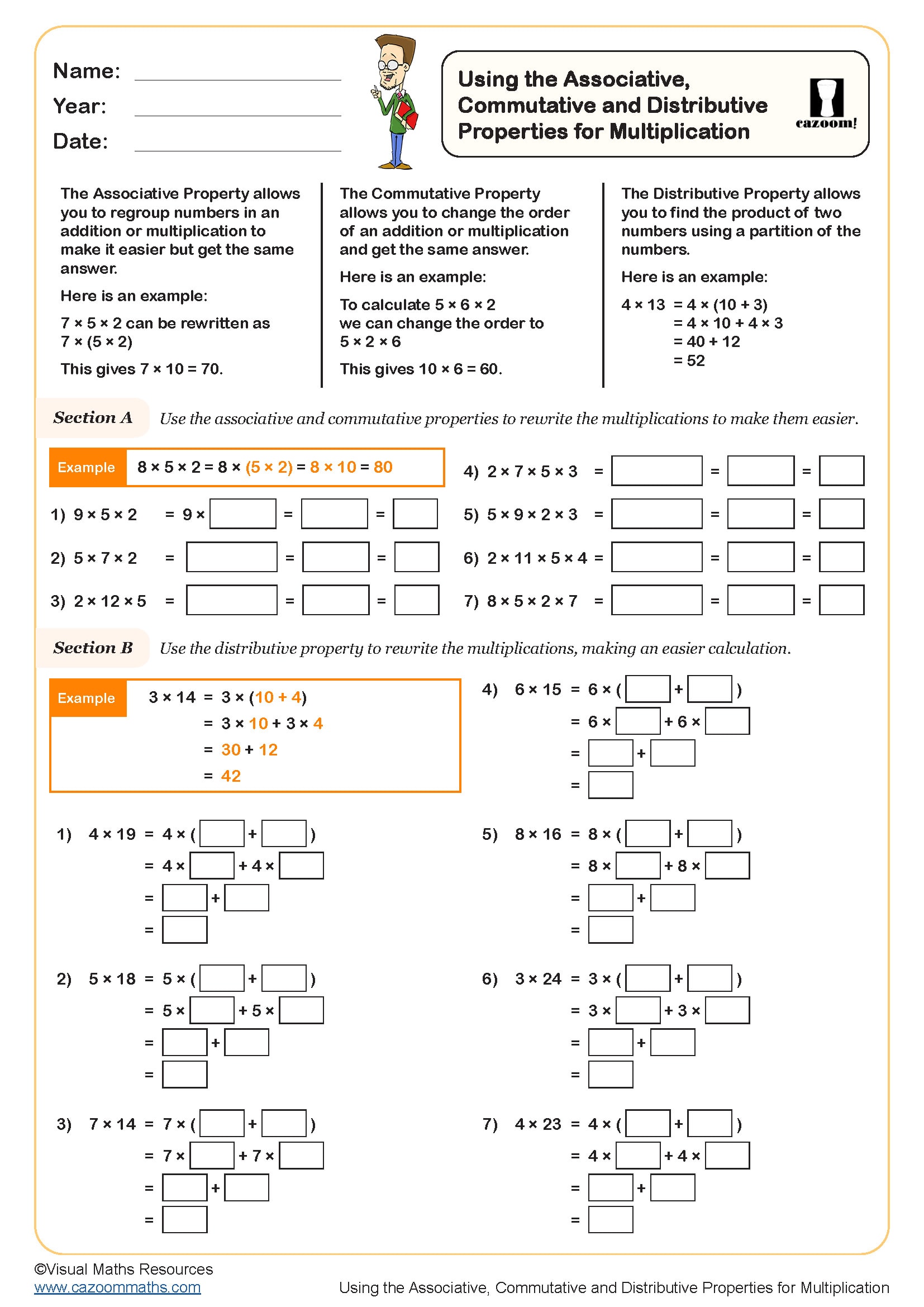
Column Method for Multiplying a 2 Digit Number by a Single Digit
Year groups: 3, 4
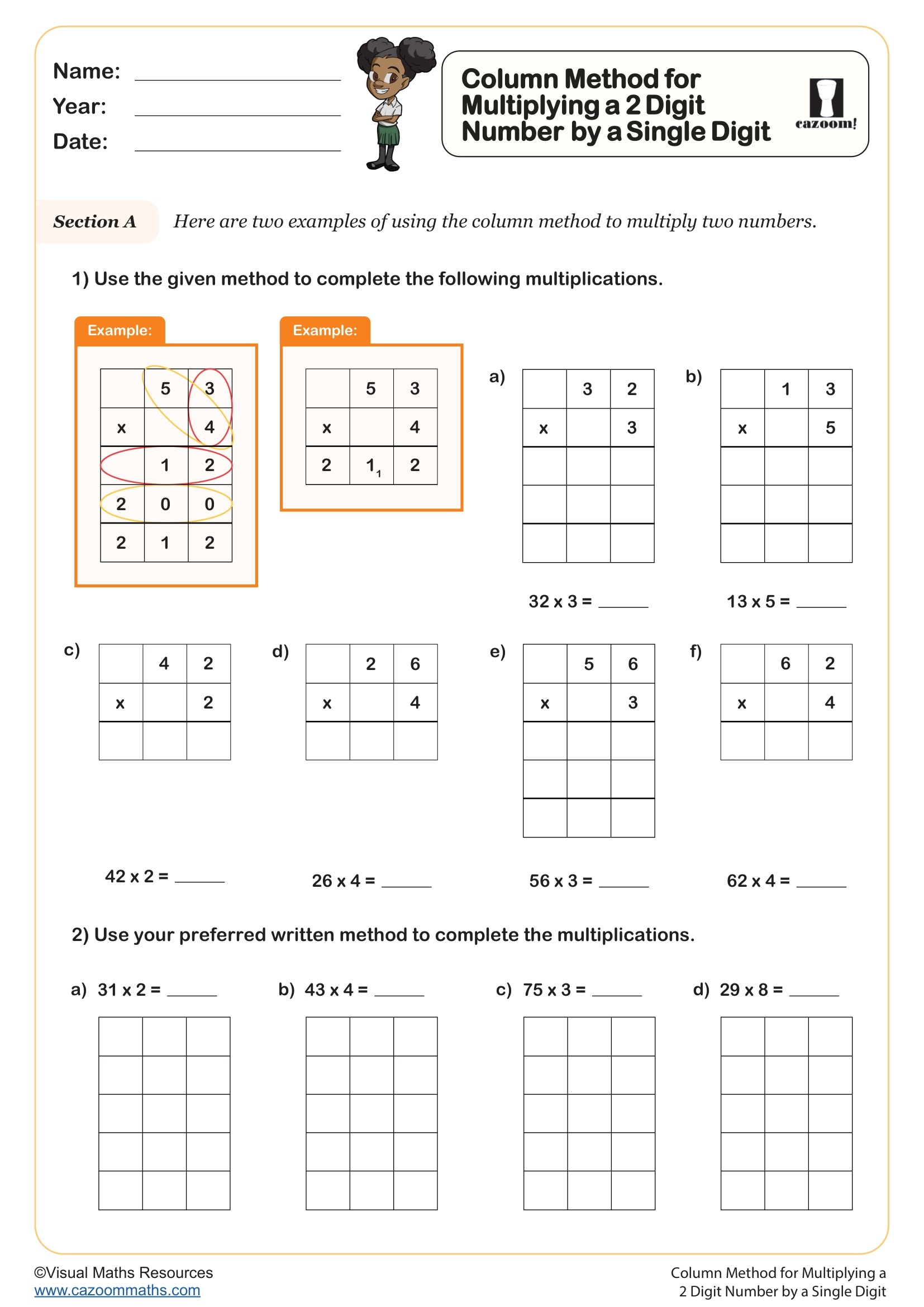
Combinations
Year groups: 3
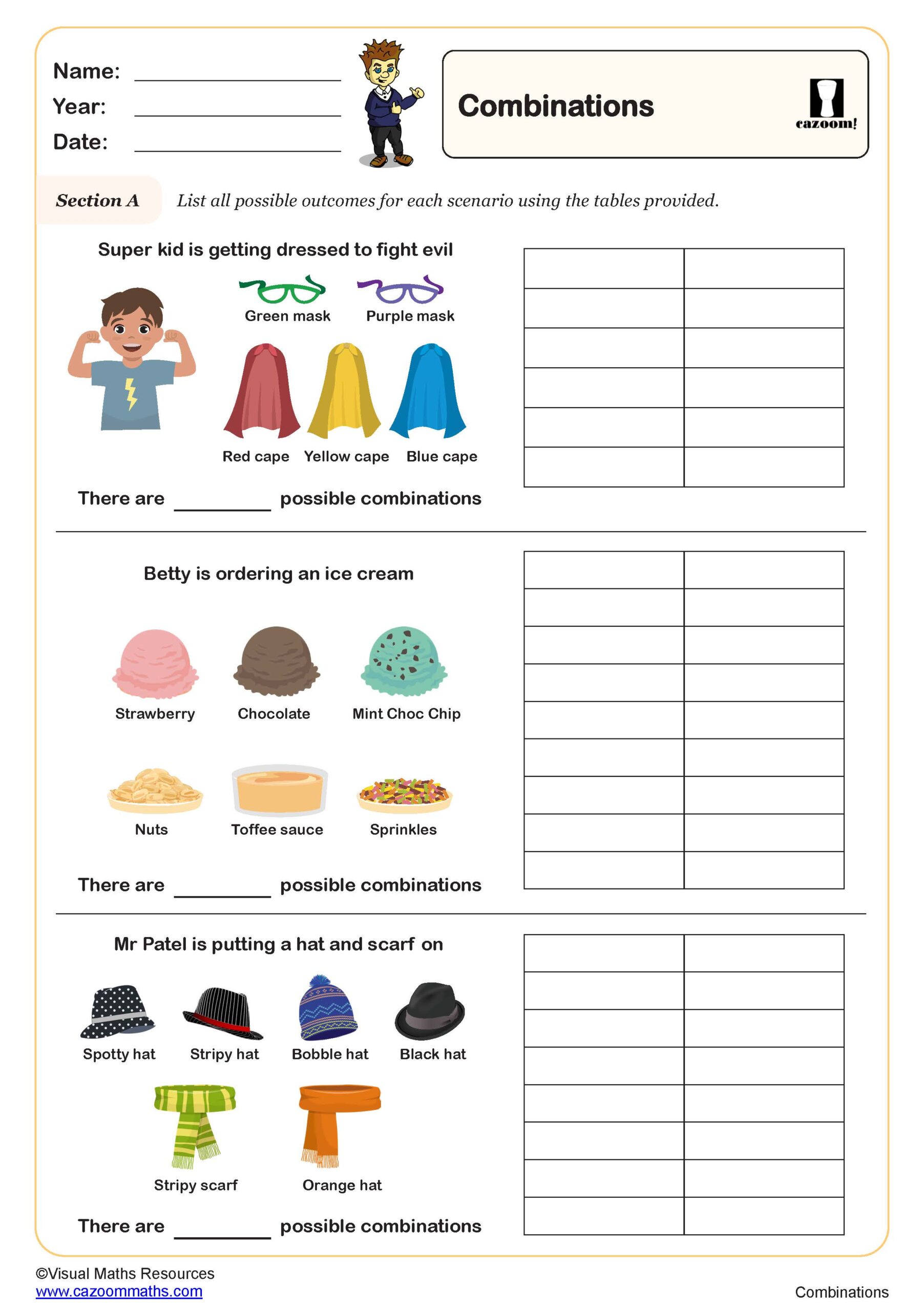
Dividing 2 Digits by 1 Digit - Using Flexible Partitioning
Year groups: 3
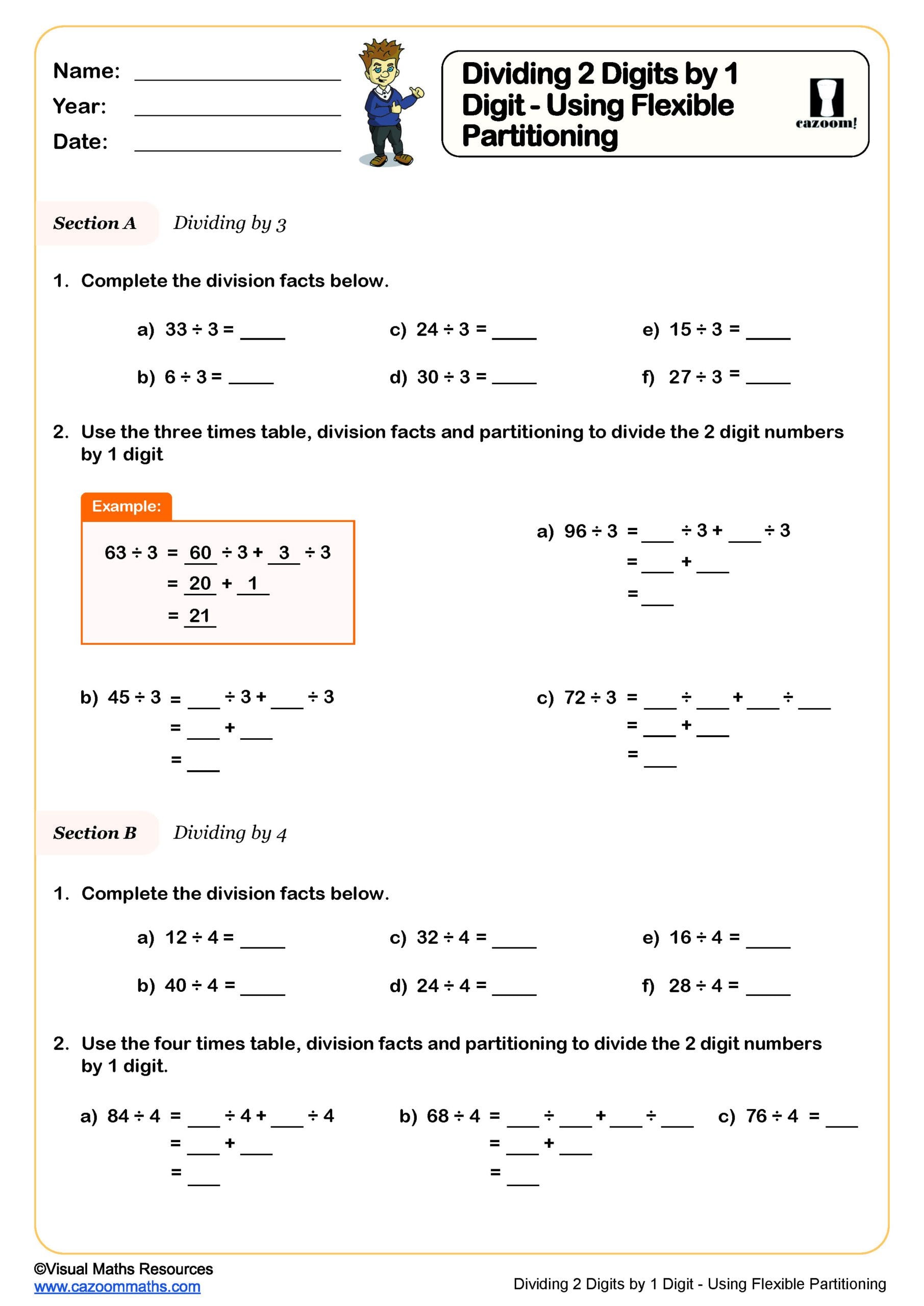
Doubling 2 Digit Numbers
Year groups: 3, 4
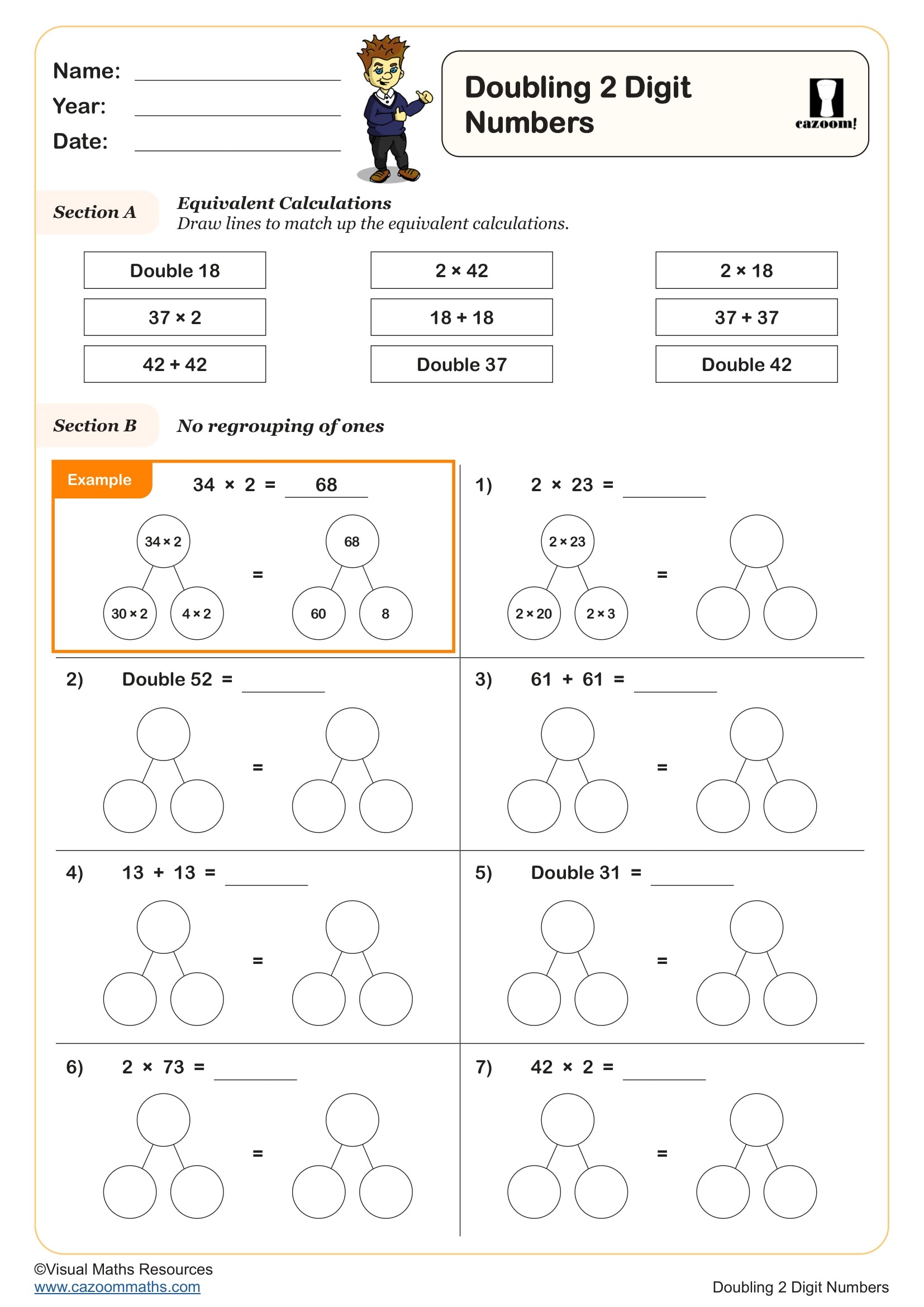
Emoji Colour by Numbers - Multiplication
Year groups: 3
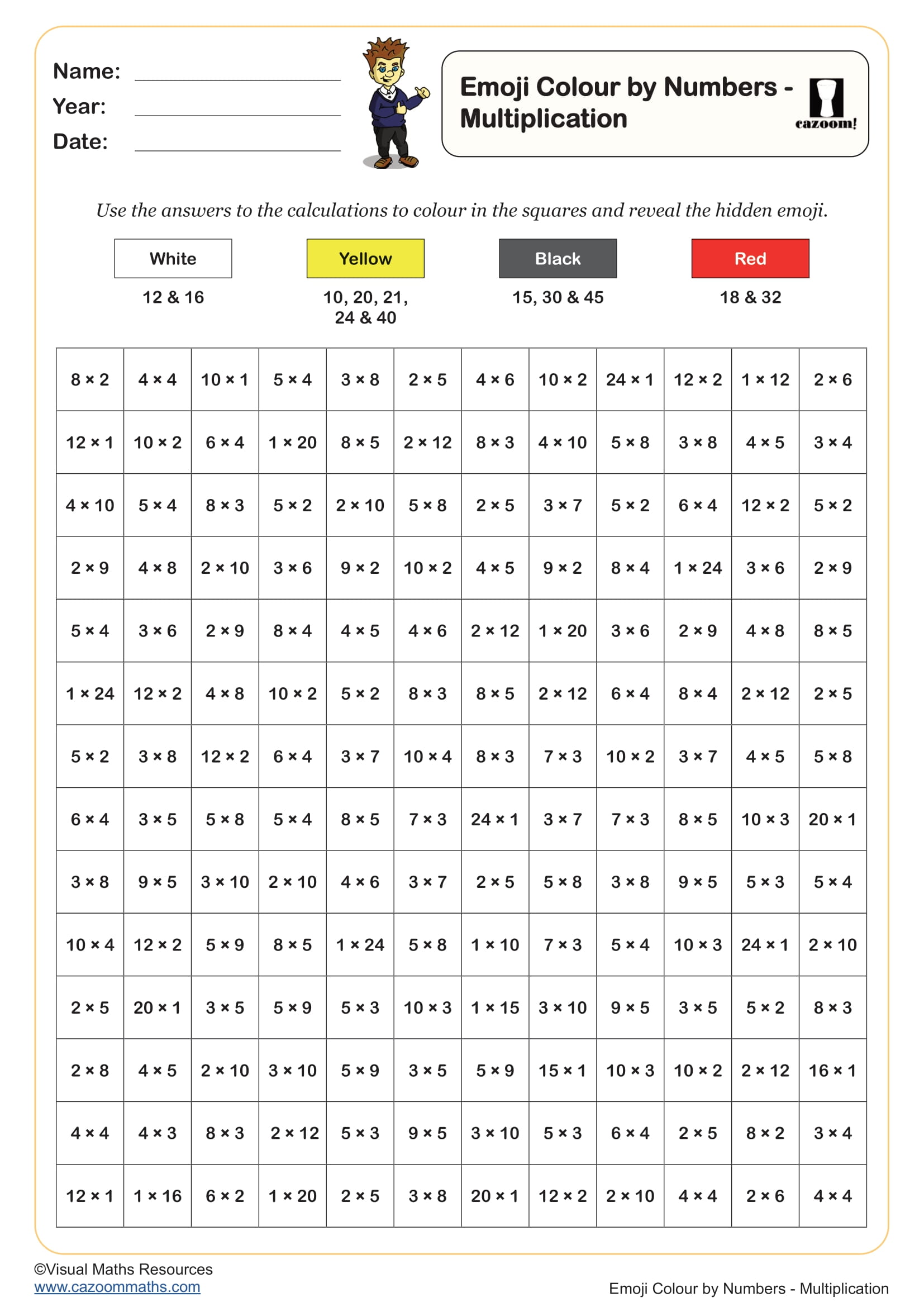
Halving 2 Digit Even Numbers
Year groups: 3, 4
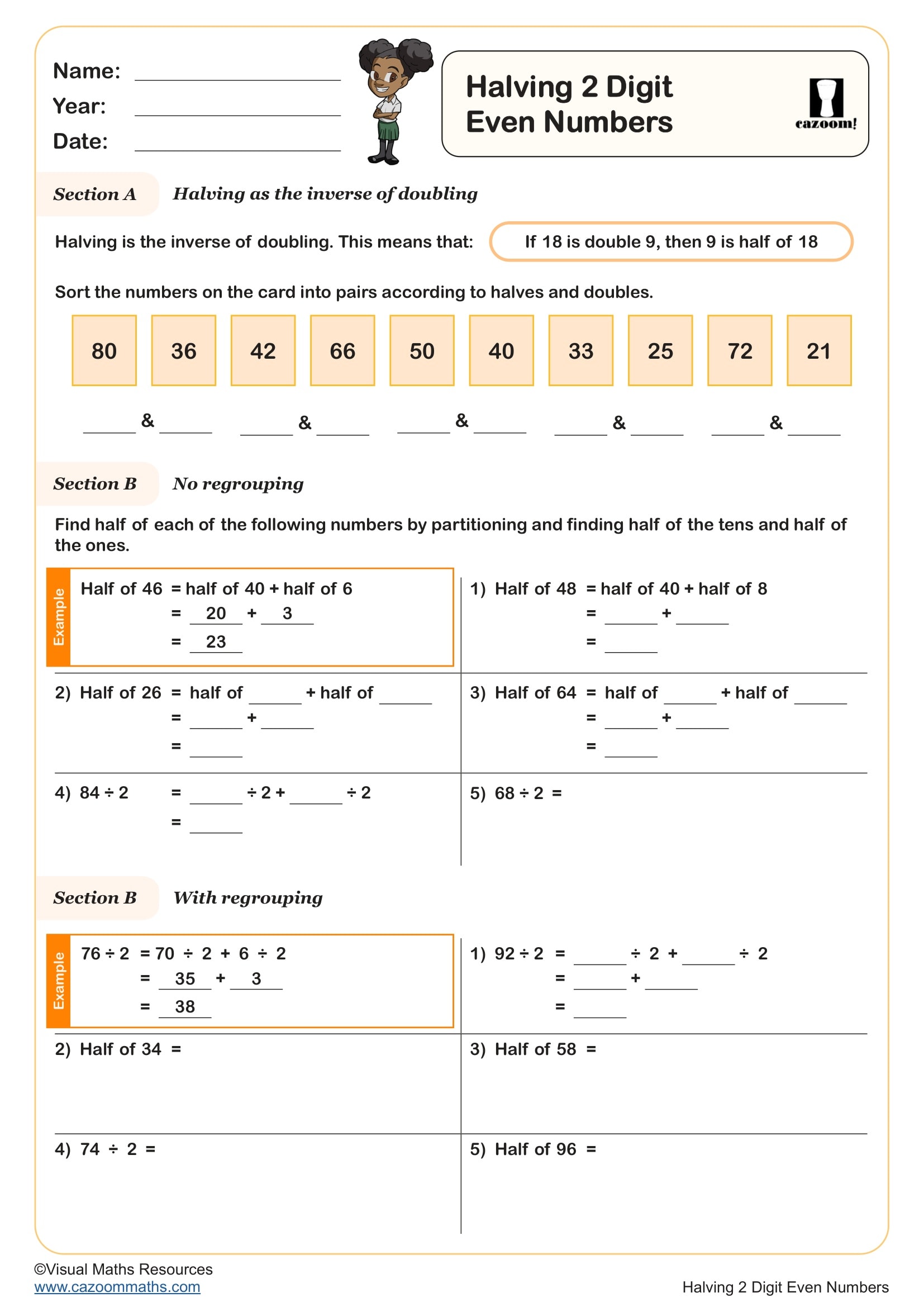
Halving and Doubling to Aid Multiplication of Two 2 Digit Numbers
Year groups: 3, 4
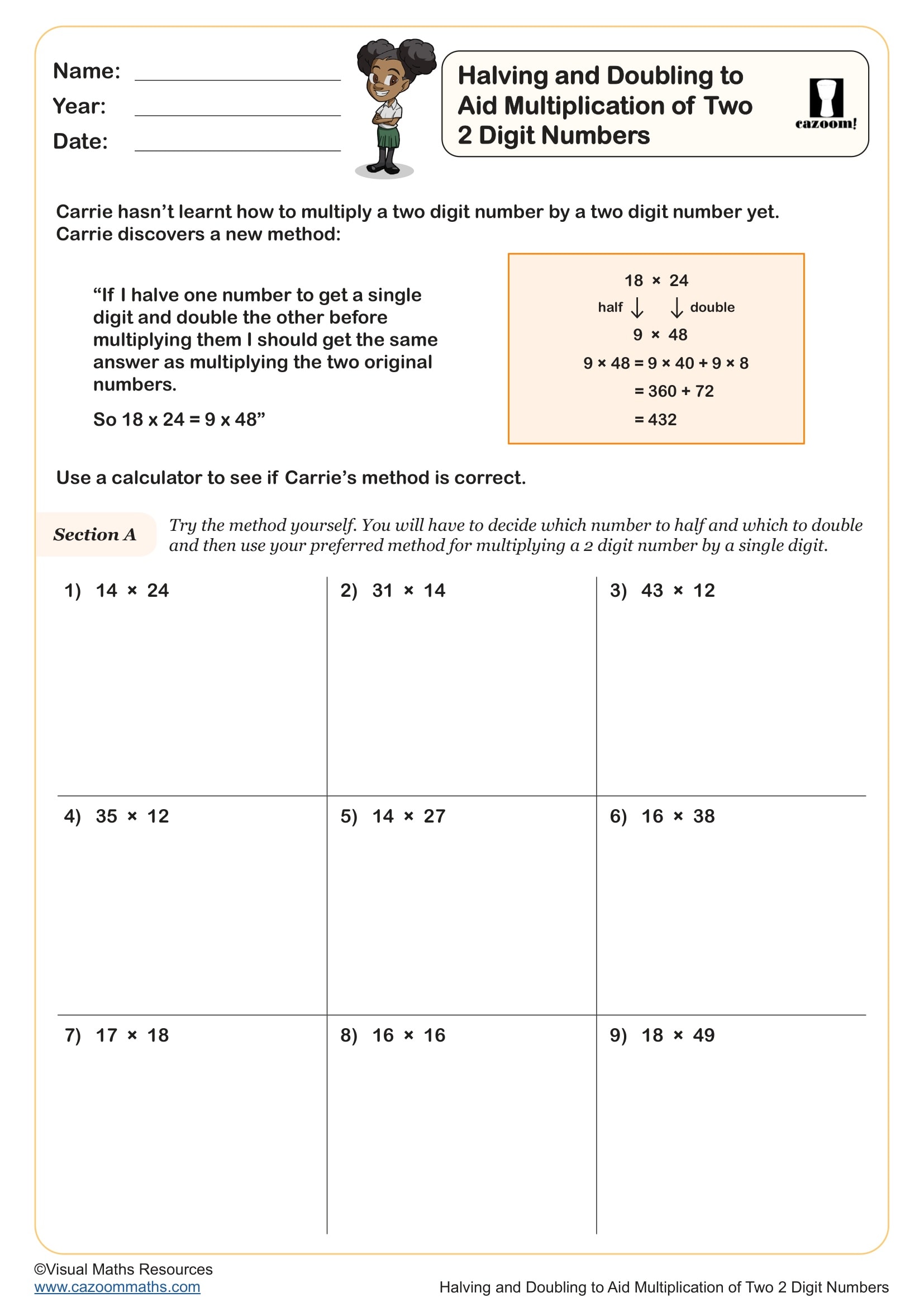
Multiplication Wheels (2,3,4,5,8,&10 Times Tables)
Year groups: 3
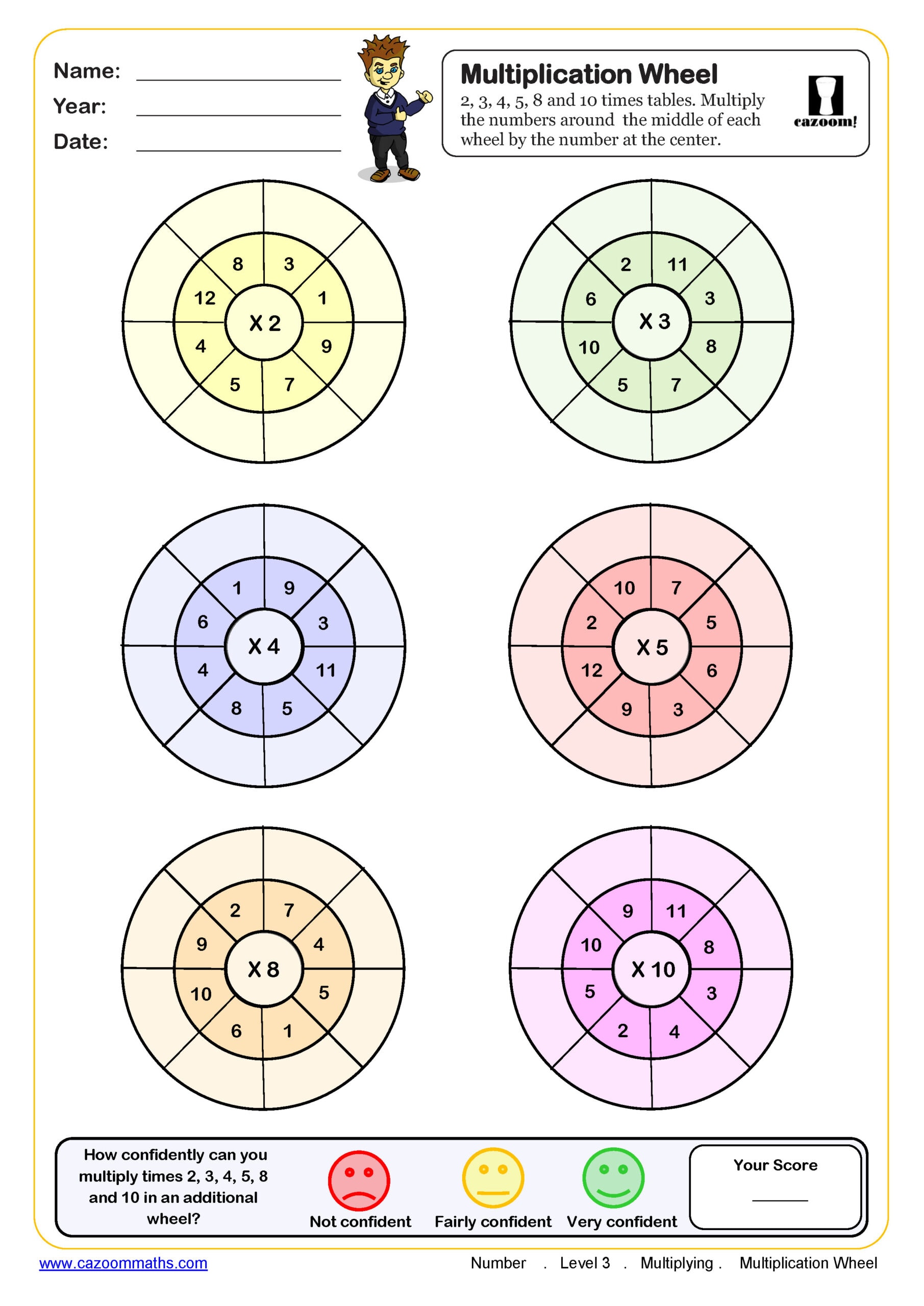
Multiply 2 Digits by 1 Digit
Year groups: 3
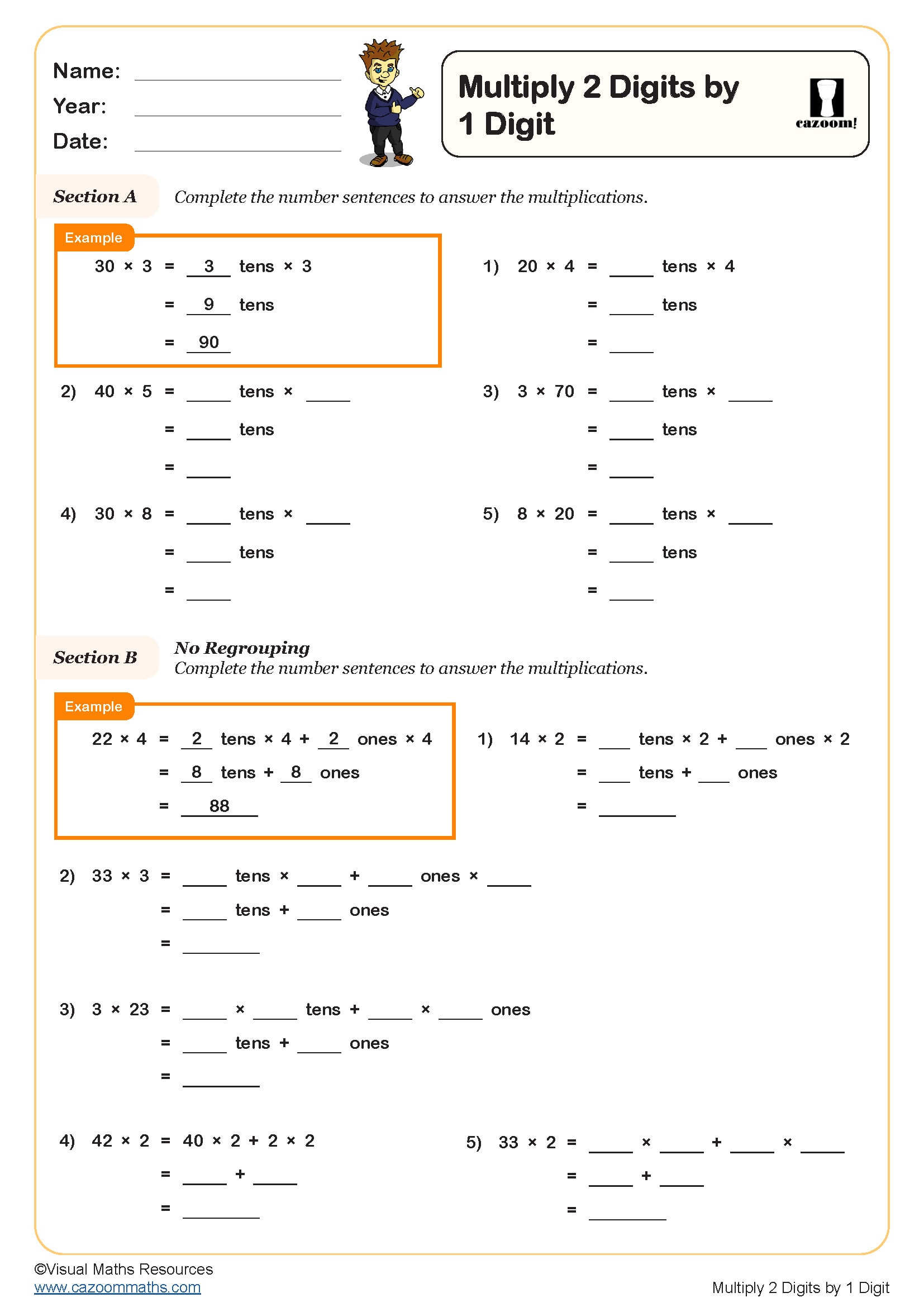
Column Method for Multiplying a 3 Digit Number by a Single Digit
Year groups: 4, 5
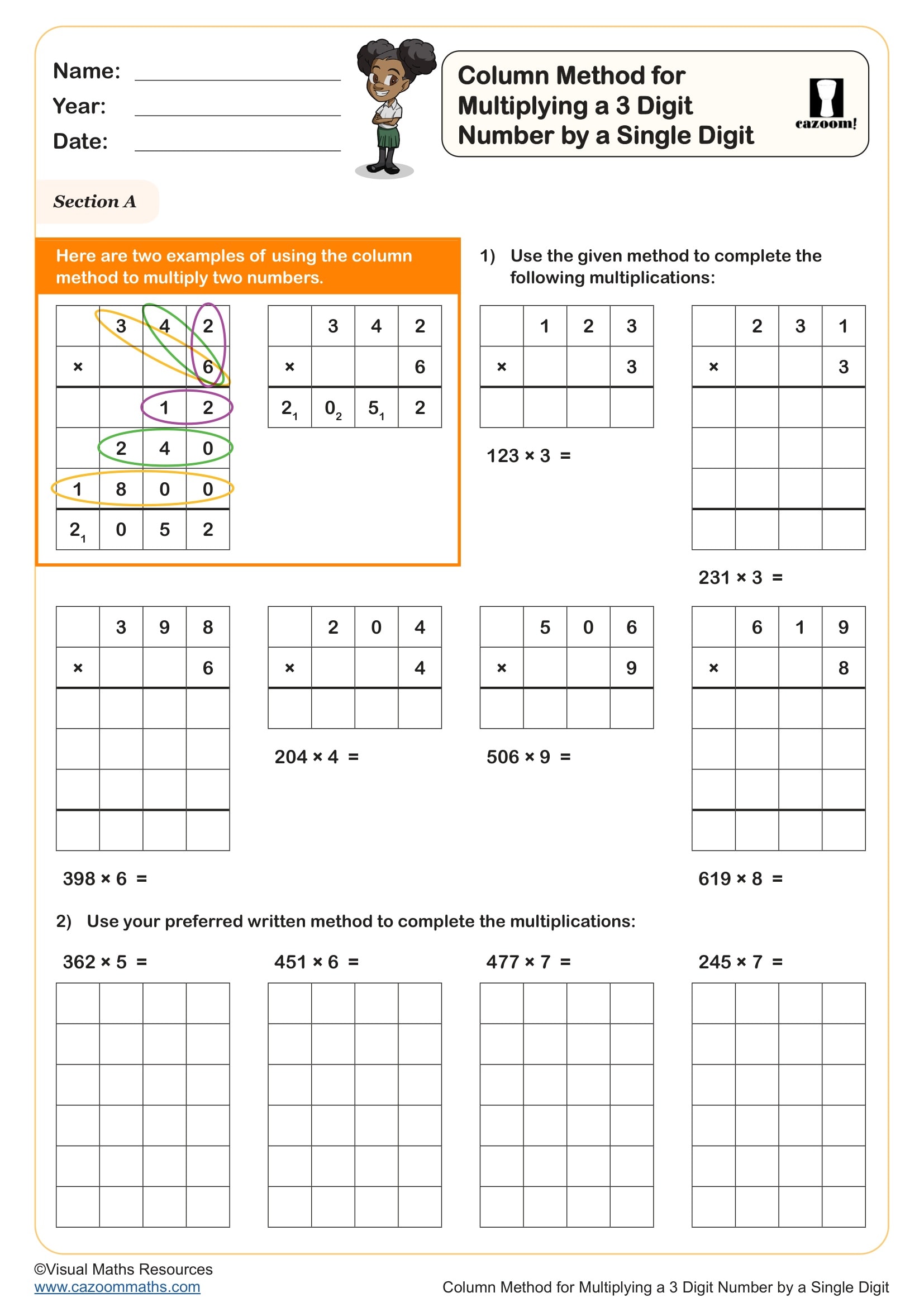
Dividing a Number by 1 and Itself
Year groups: 4
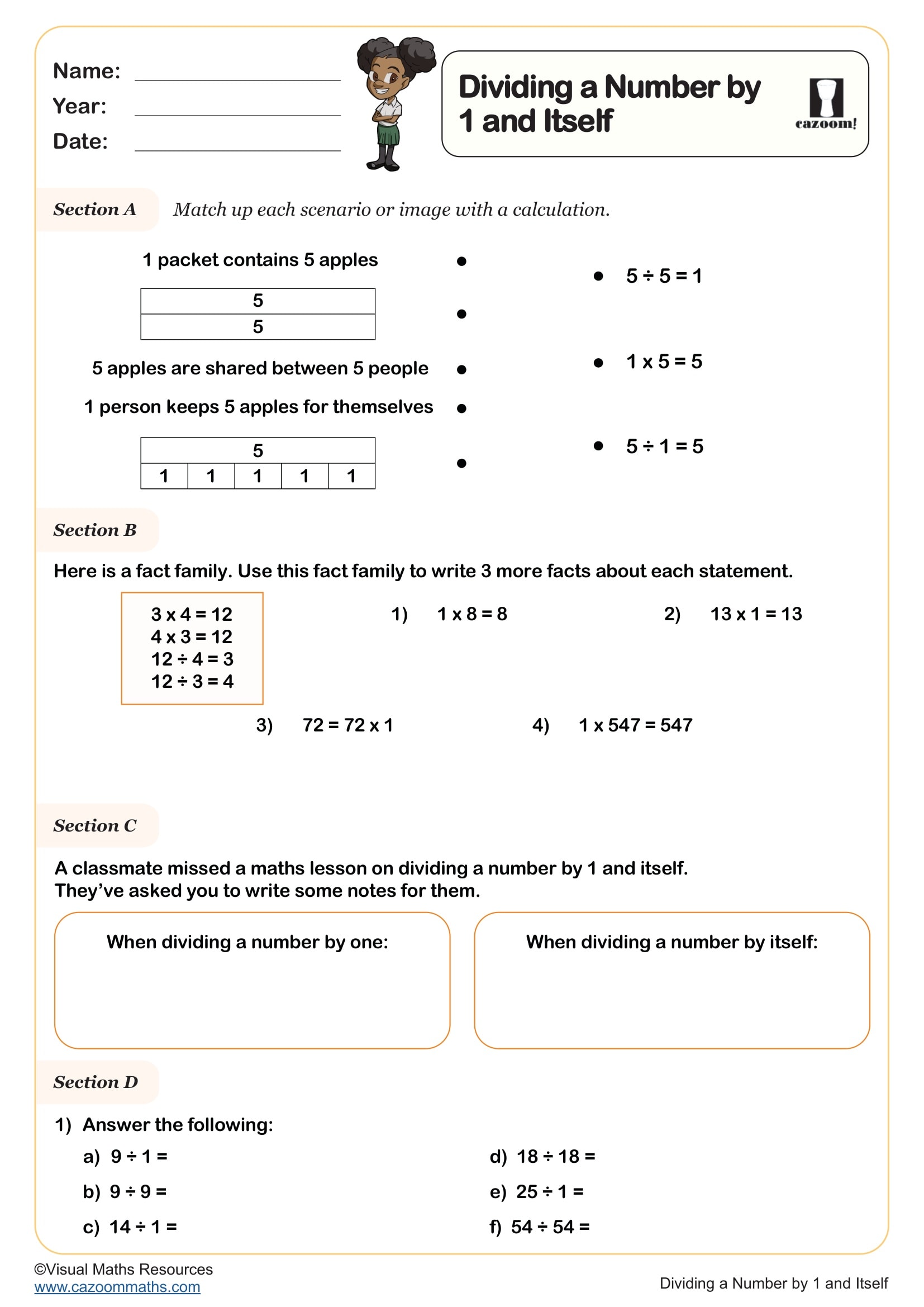
Division Facts
Year groups: 4
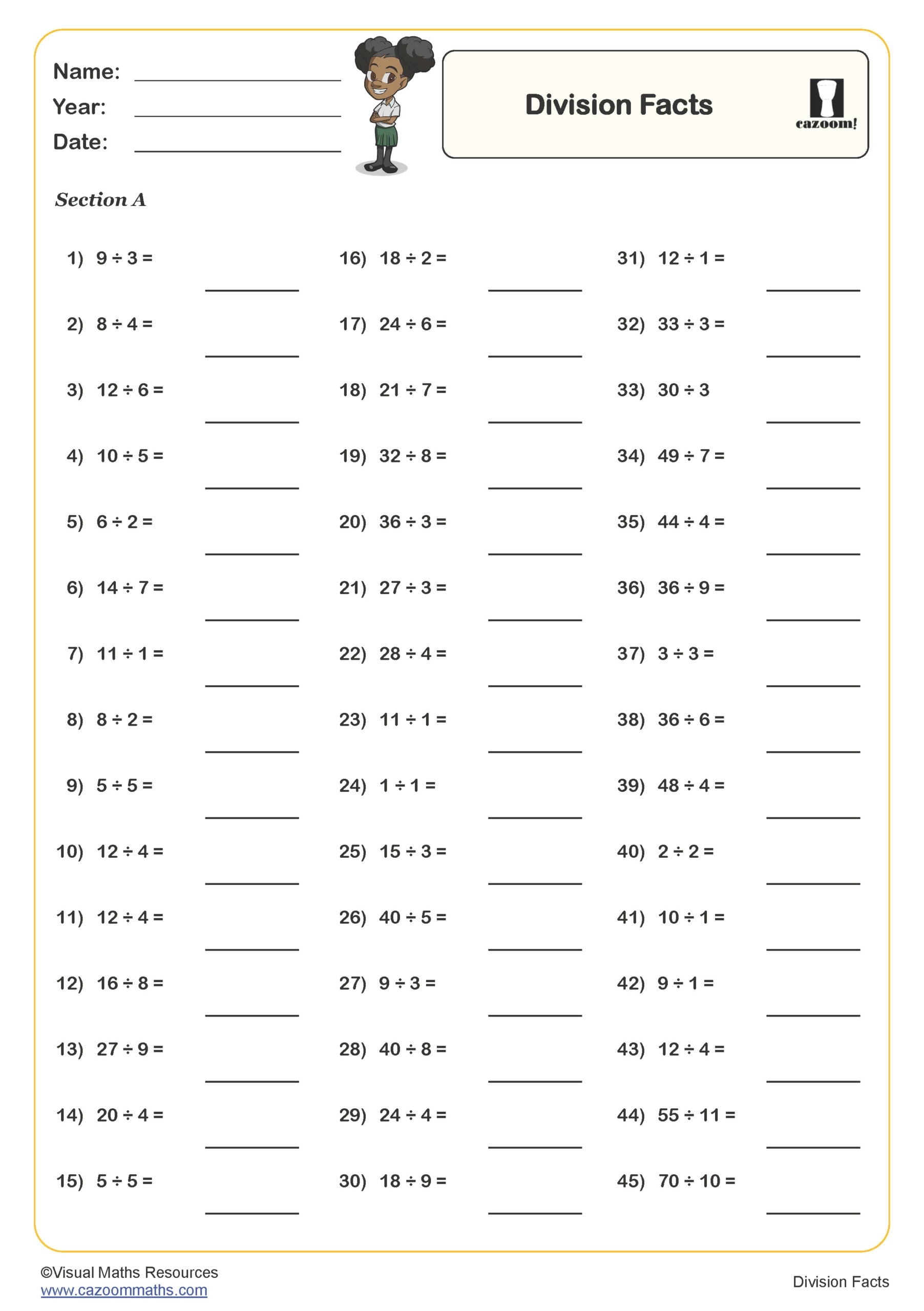
Factor Pair Puzzle
Year groups: 4
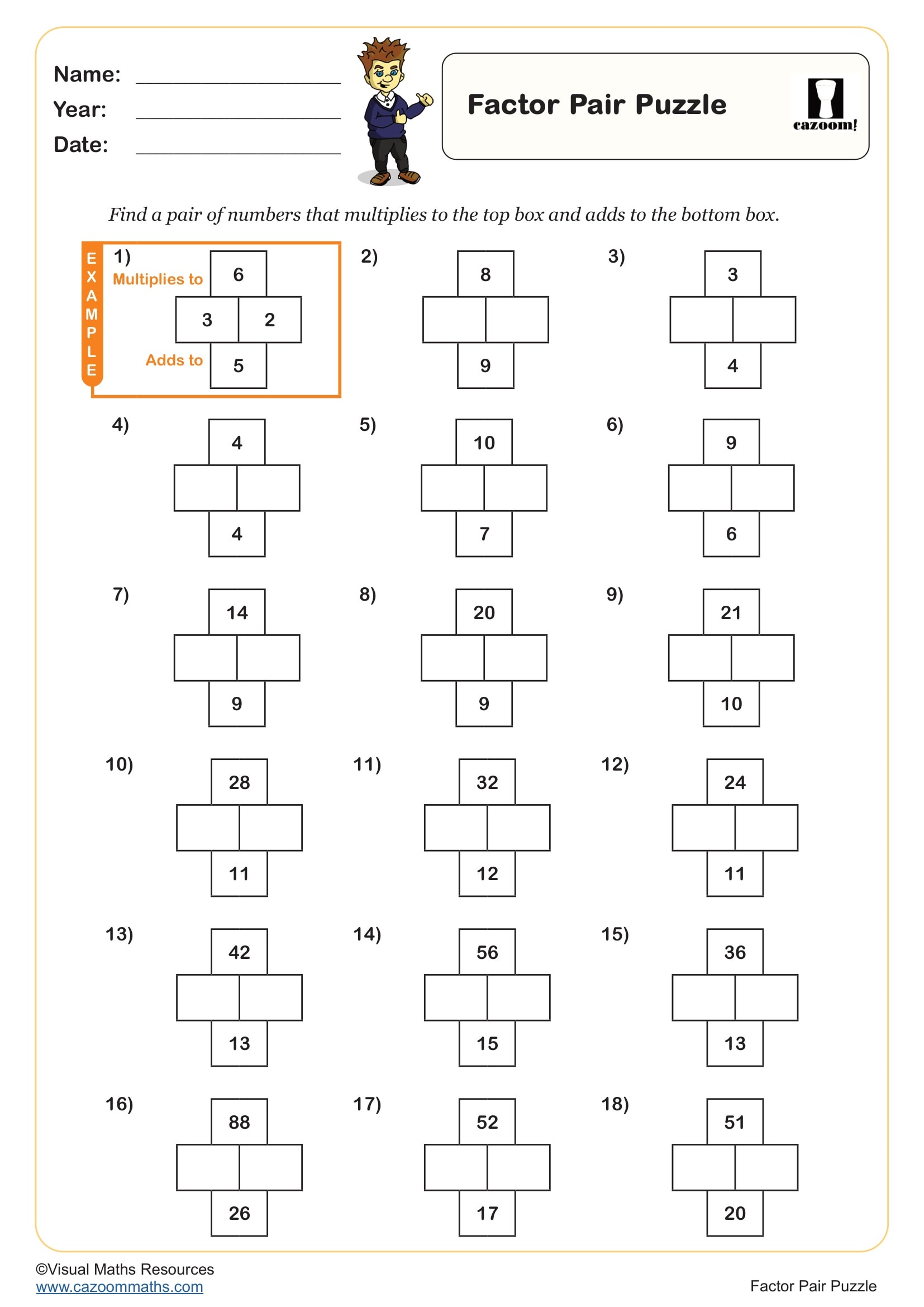
Grid Multiplication
Year groups: 4
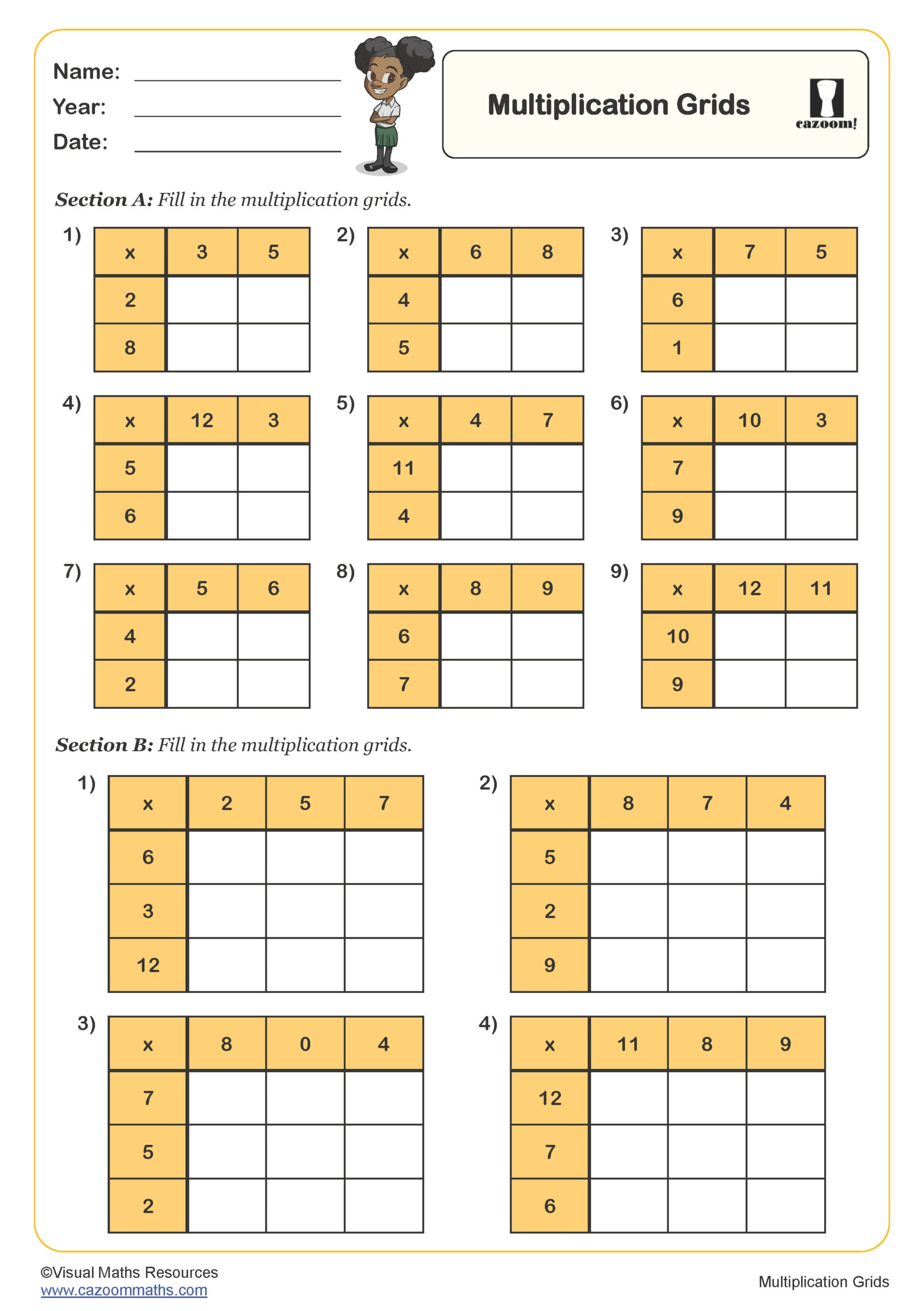
Halving Odd Numbers by Halving One Less
Year groups: 4
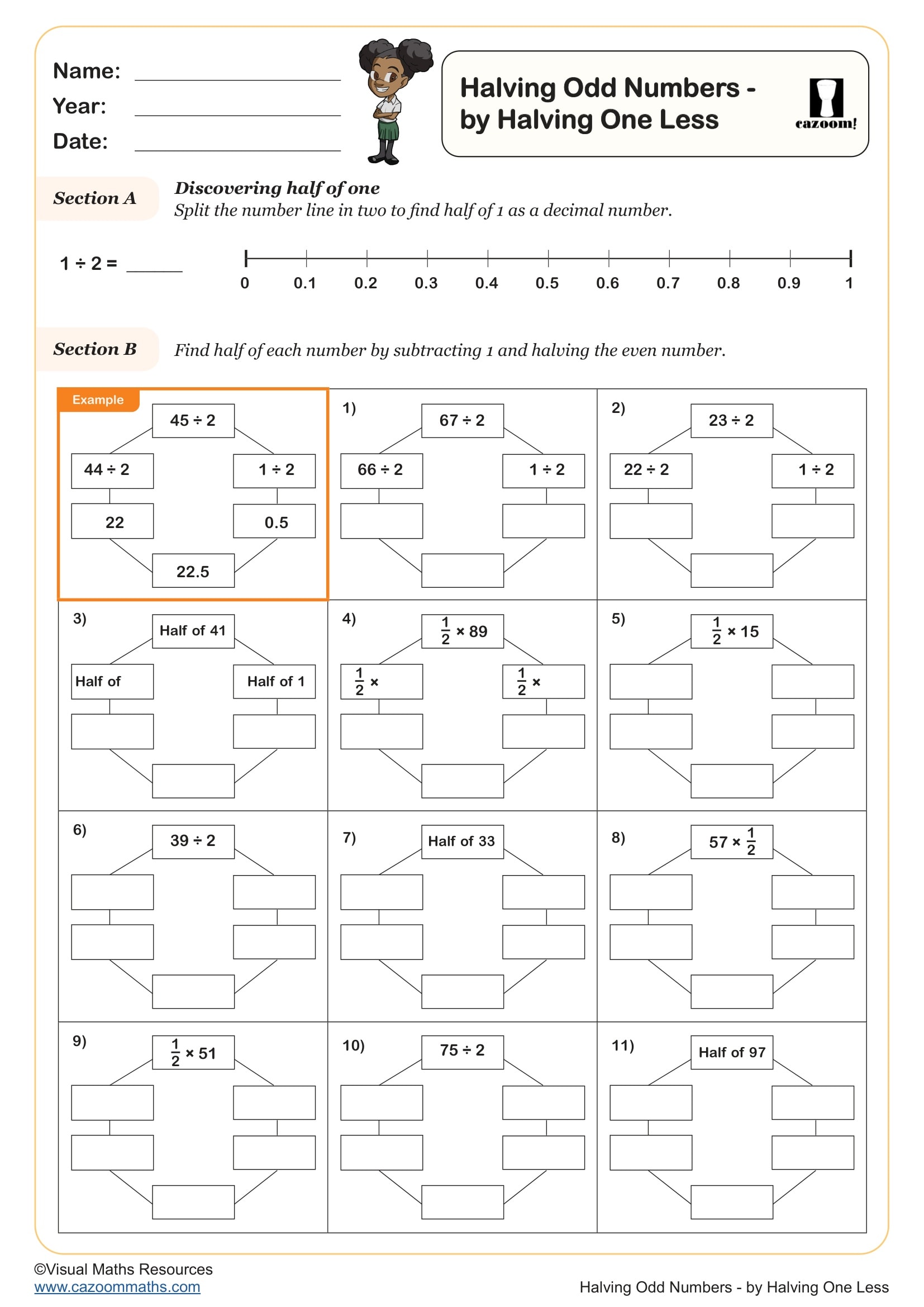
Halving Odd Numbers Partition Tens and Ones
Year groups: 4
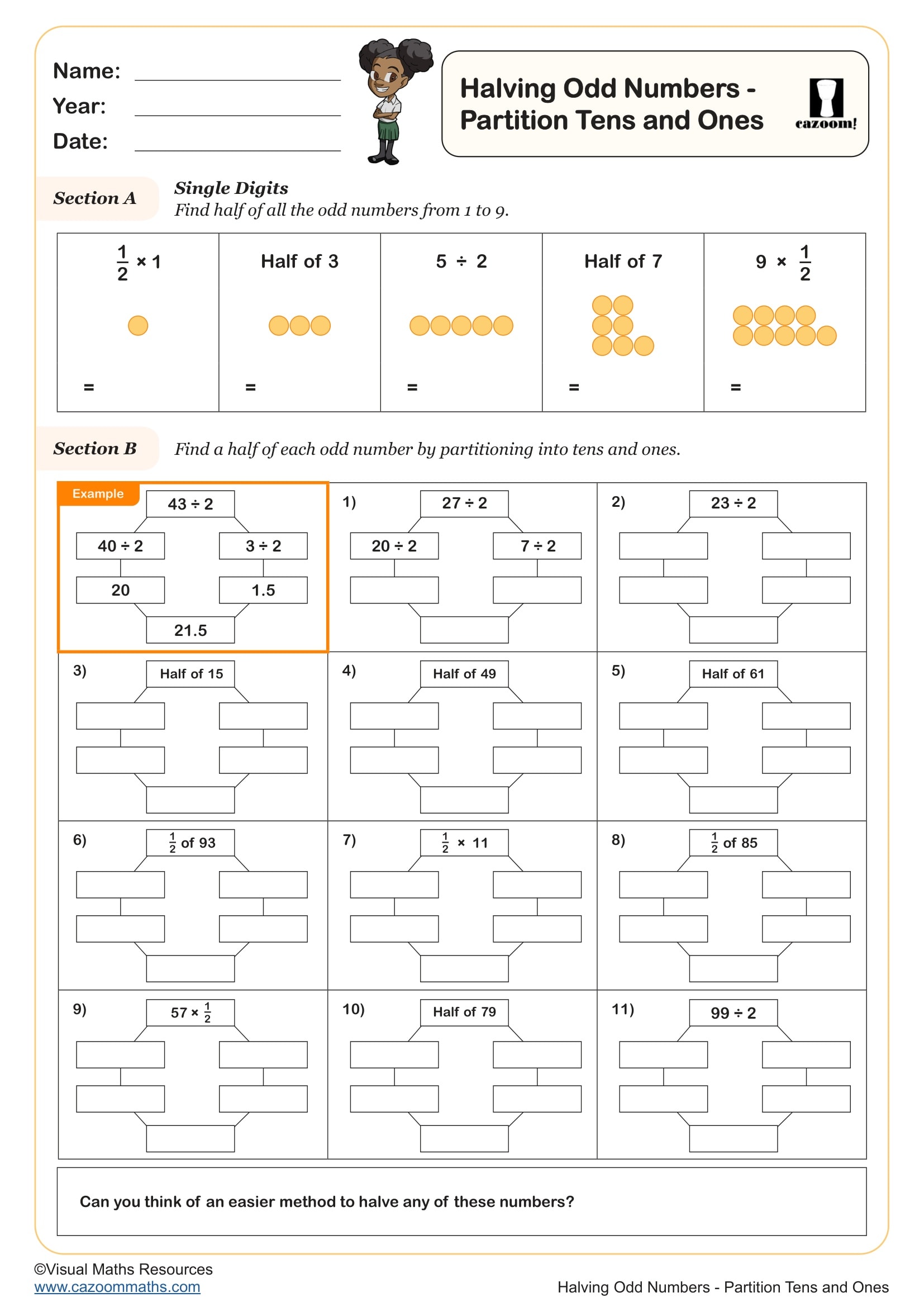
Multiplication Arthimagons
Year groups: 4
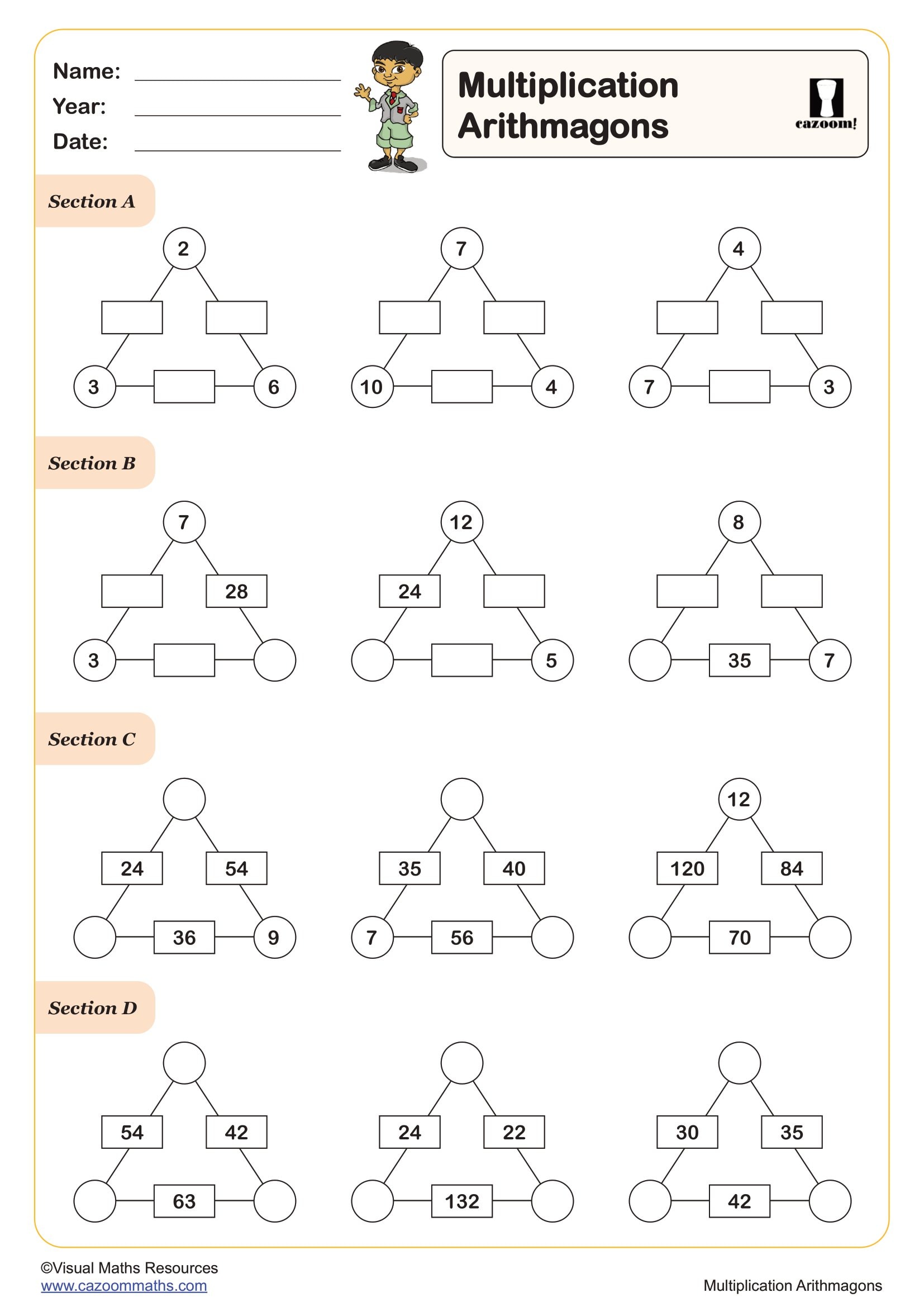
Multiply Mania: 25 Questions Challenge
Year groups: 4
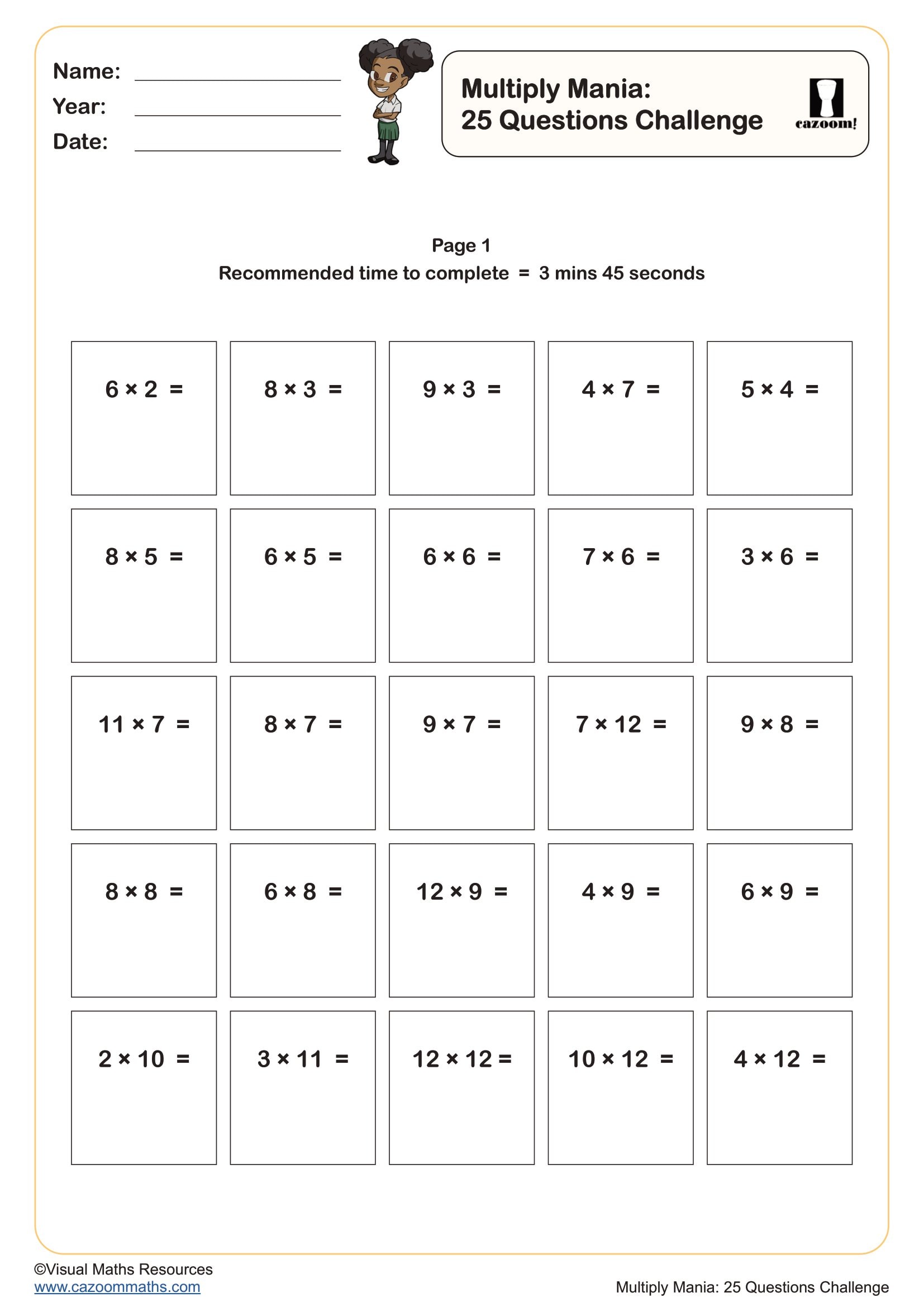
Multiplying 3 digits by 1 digit
Year groups: 4, 5
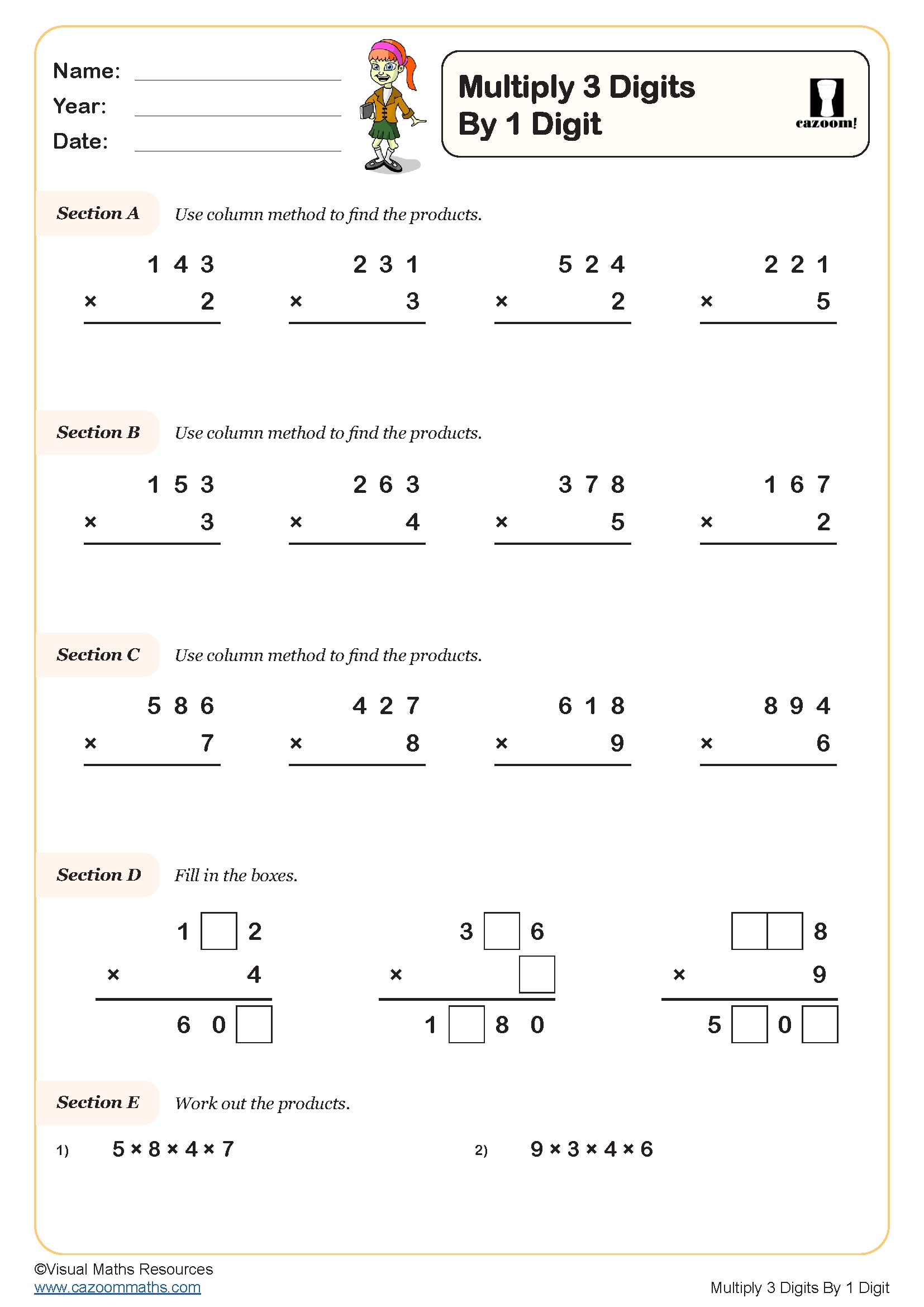
Multiplying by 1 and 0 (A)
Year groups: 4
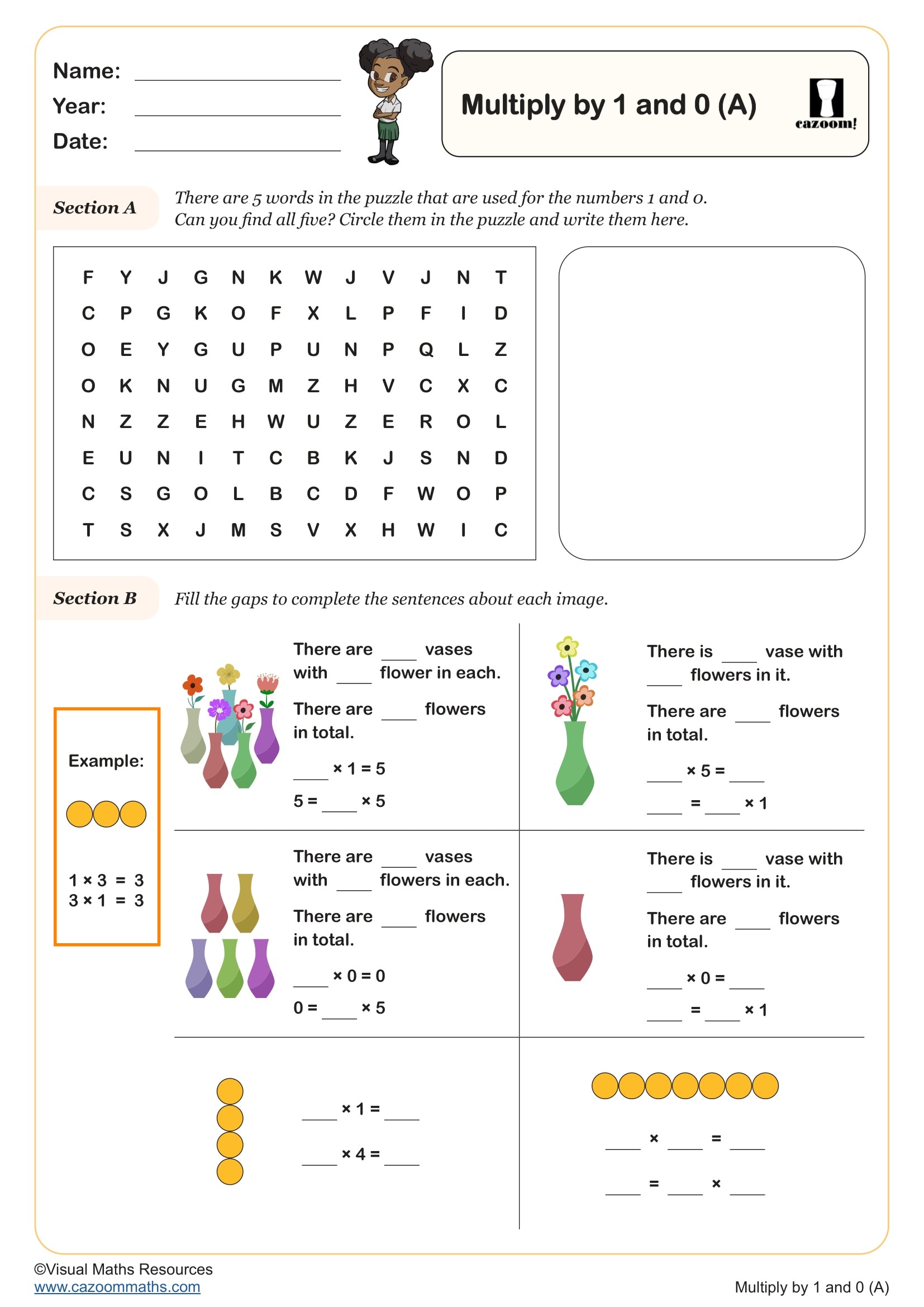
Multiplying by 1 and 0 (B)
Year groups: 4
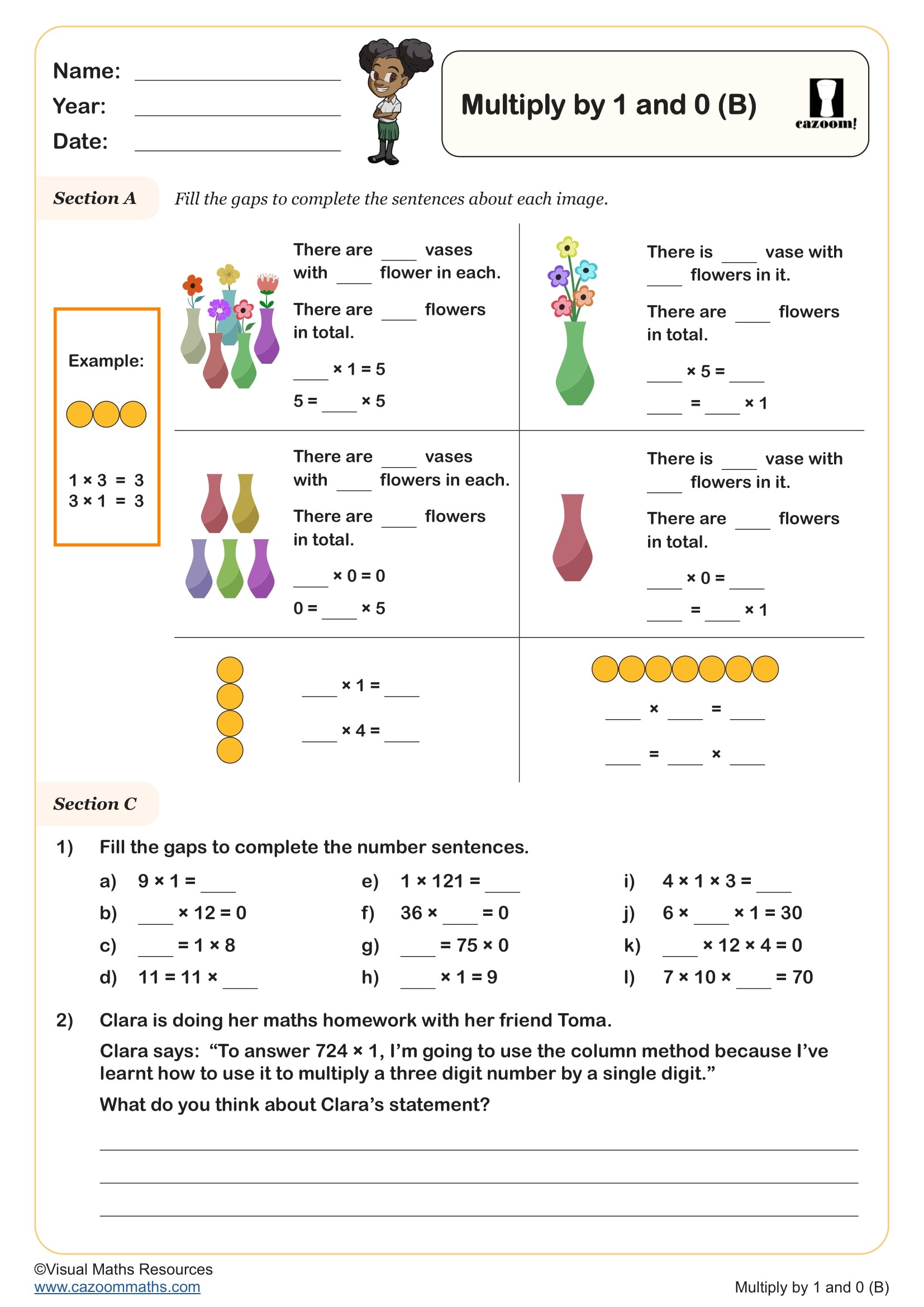
Multiplying Three Numbers Together
Year groups: 4
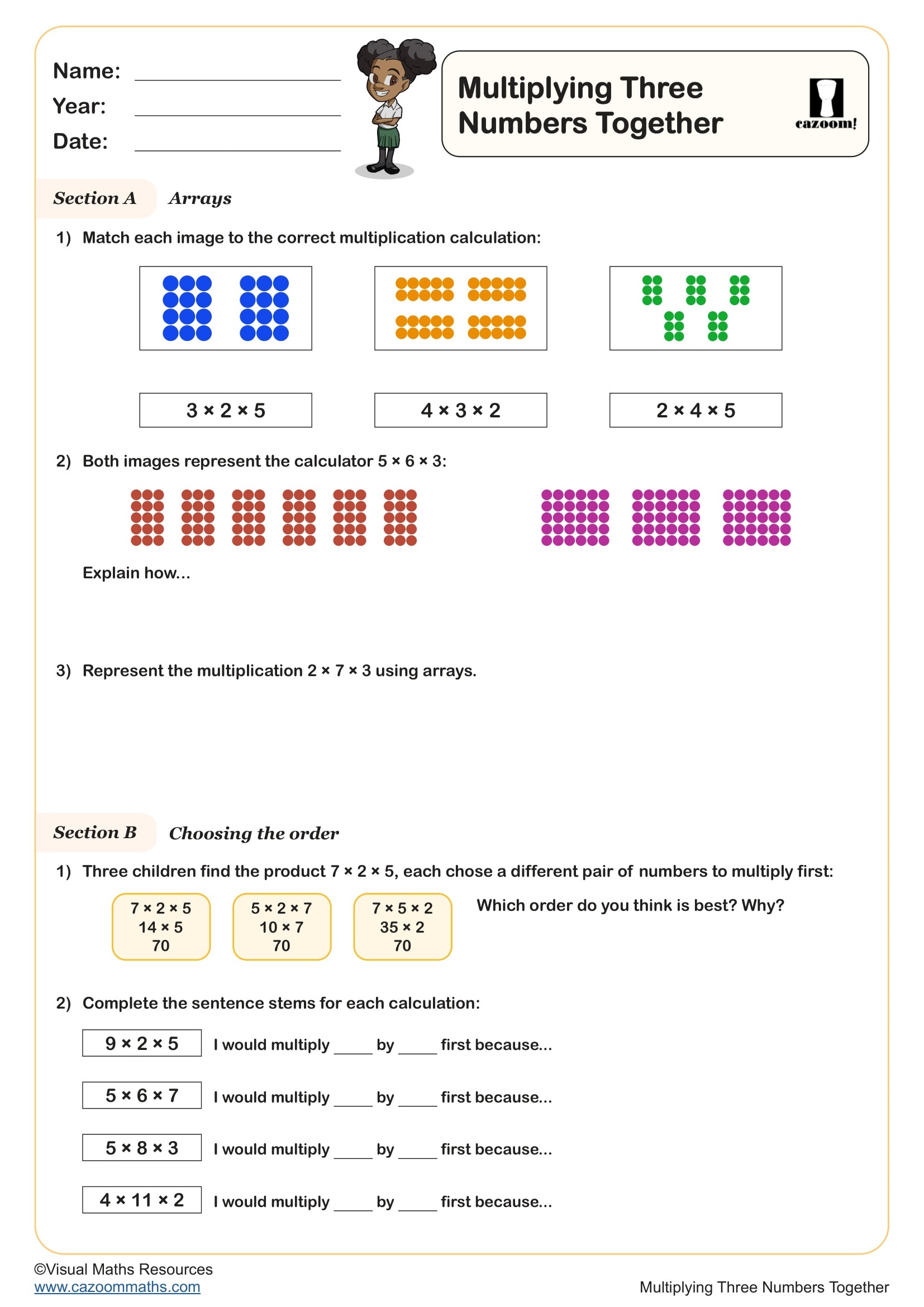
Practising the Column Method for Short Multiplication
Year groups: 4
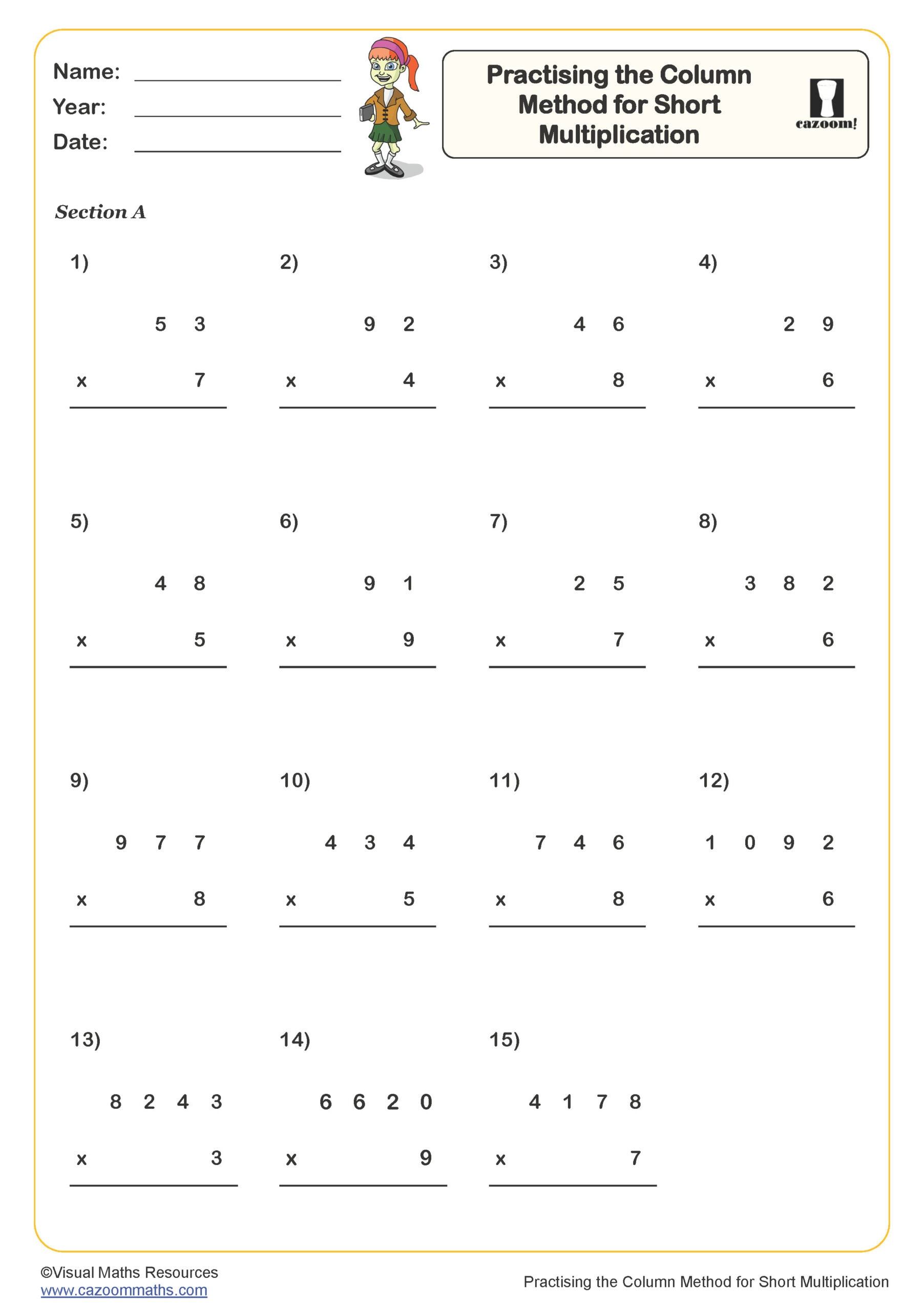
Selecting the Correct Inverse
Year groups: 4
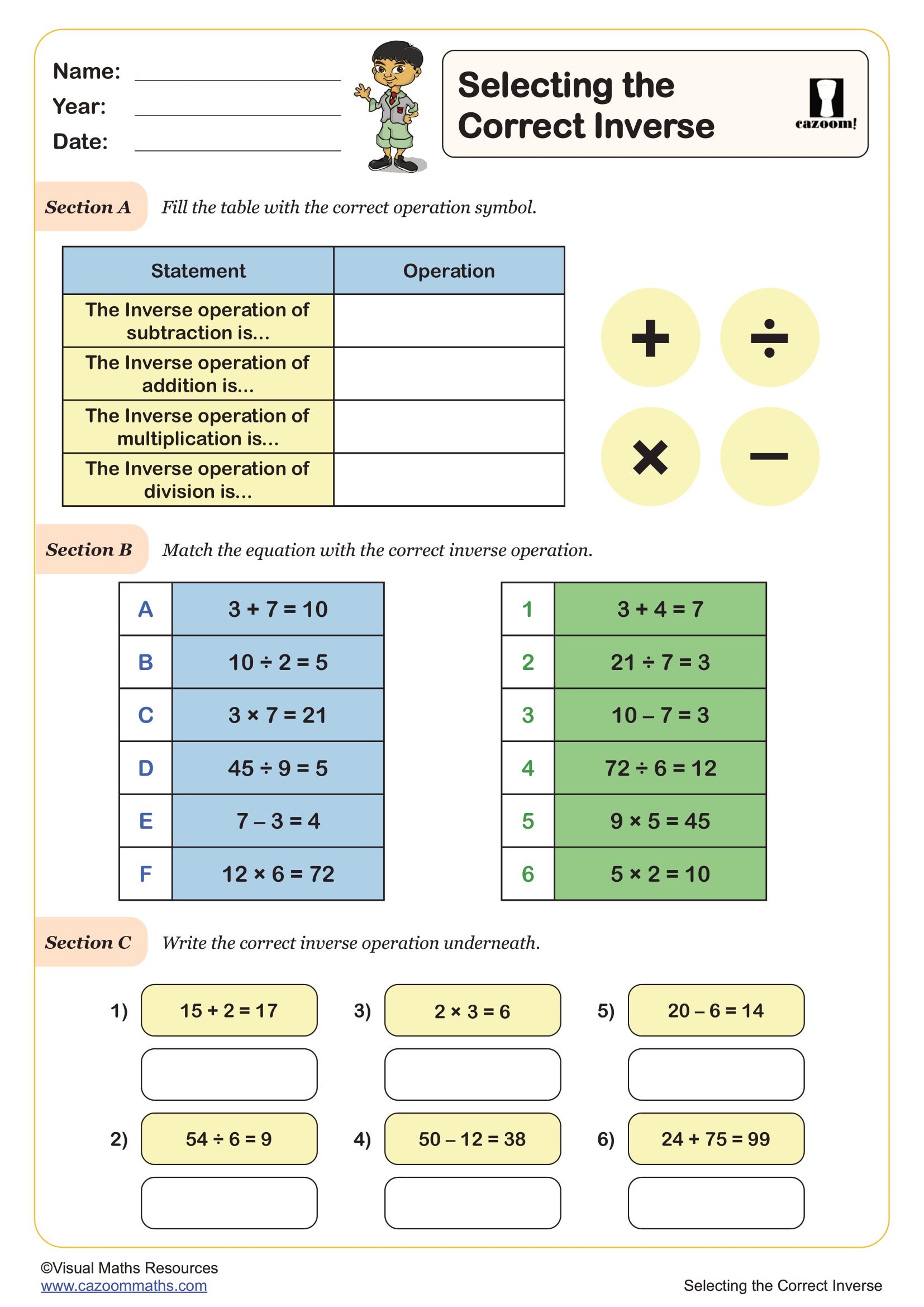
The 11 Times Table
Year groups: 4
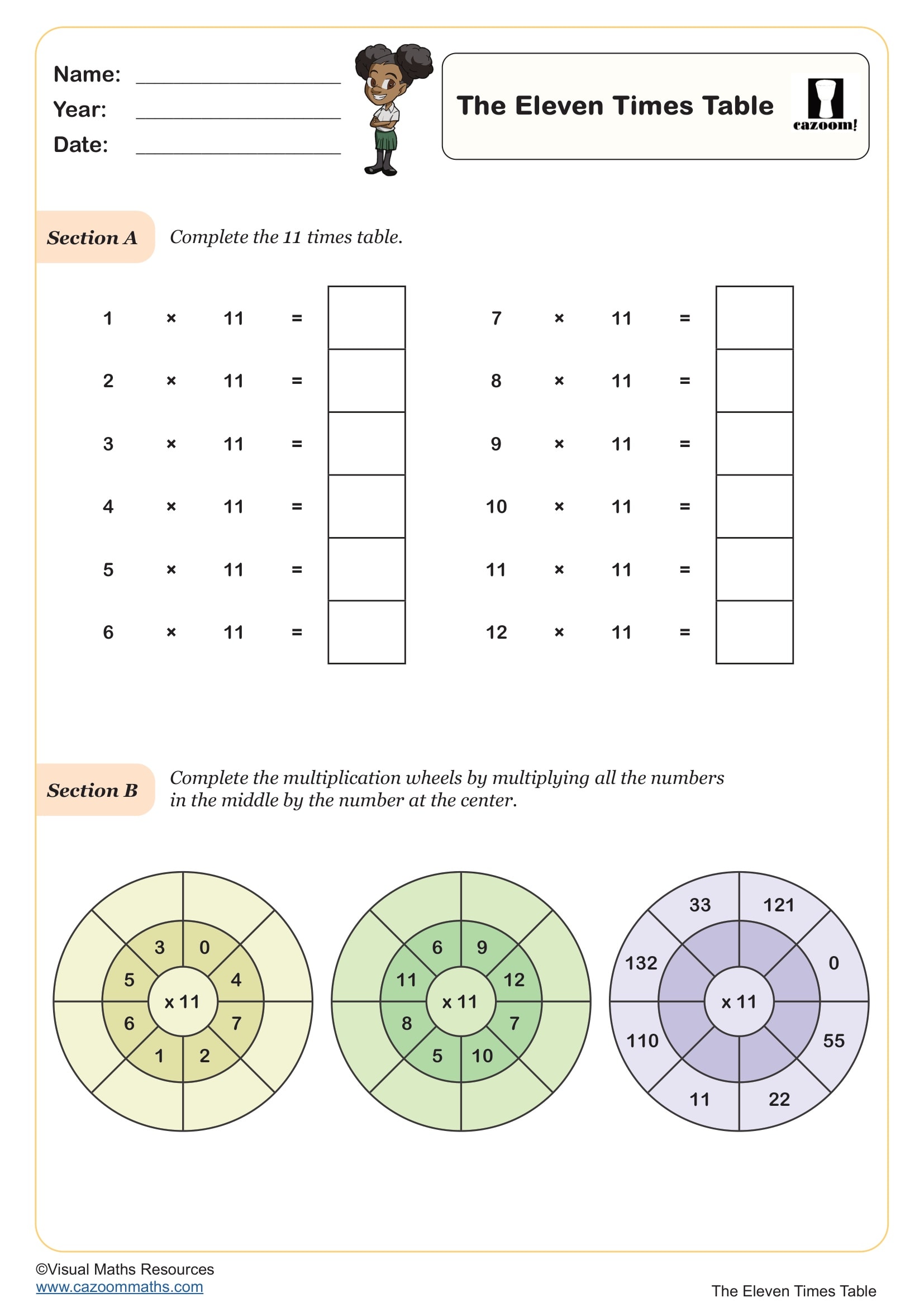
The 12 Times Table
Year groups: 4
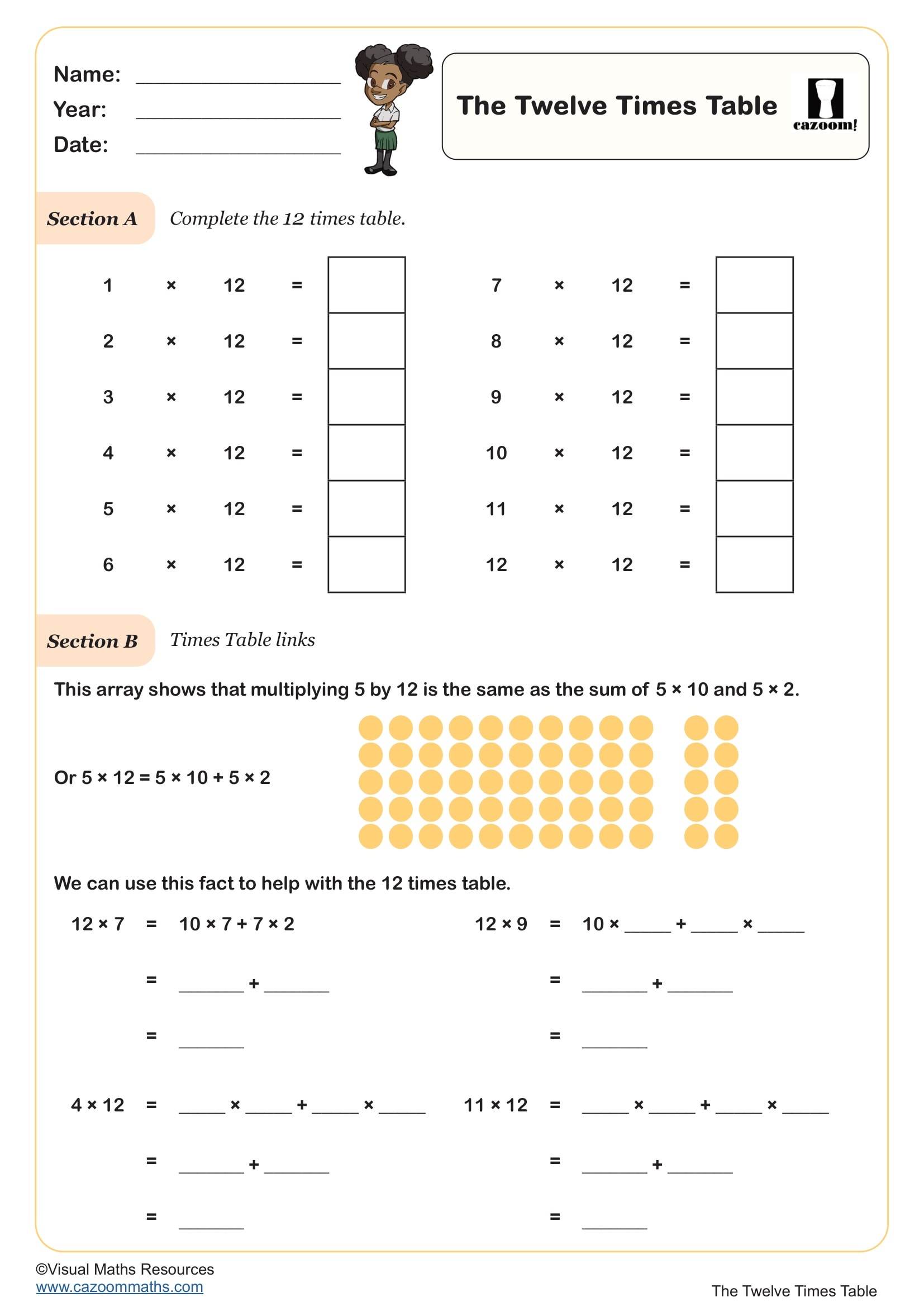
The 9 Times Table
Year groups: 4
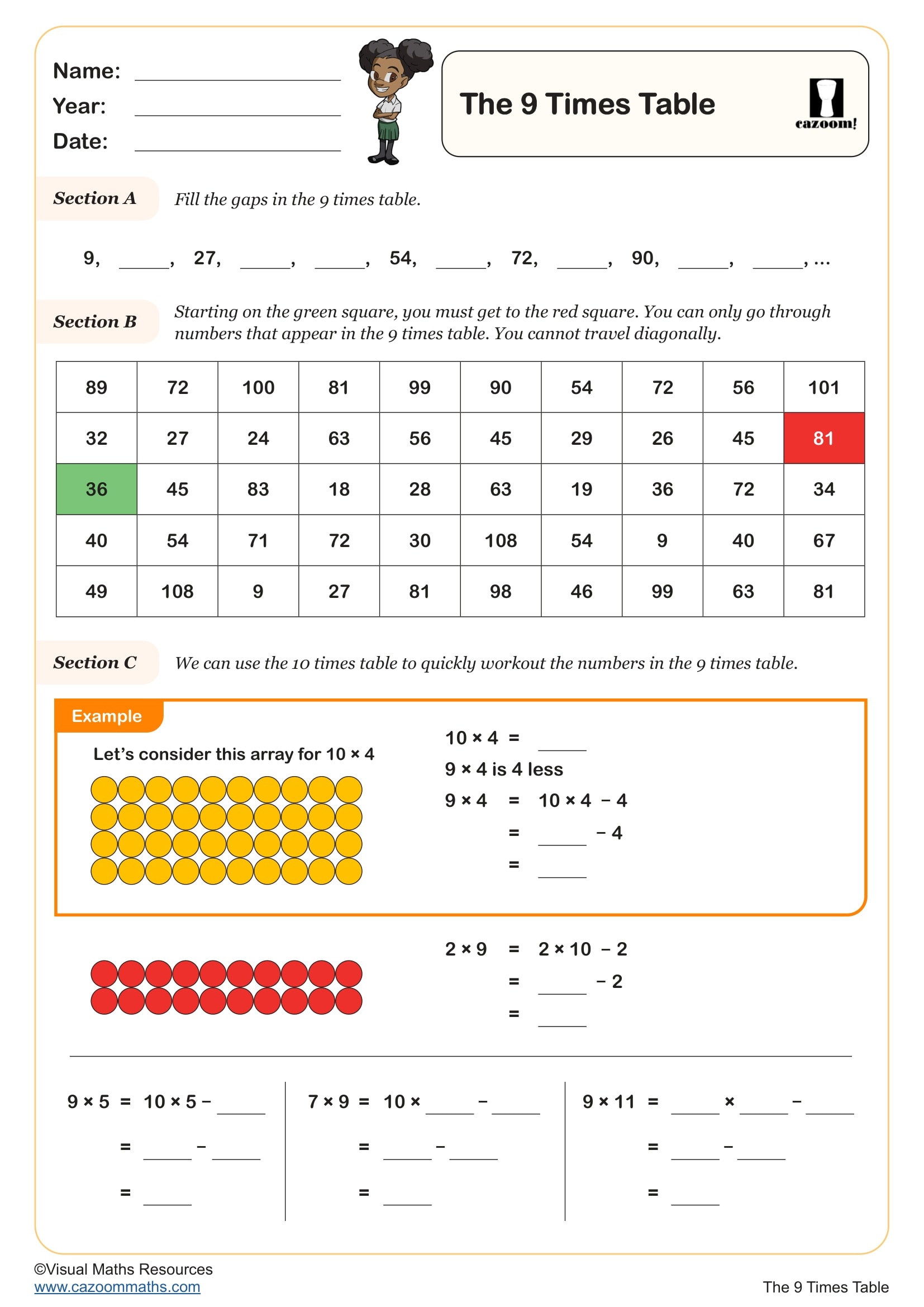
The Seven Times Table
Year groups: 4
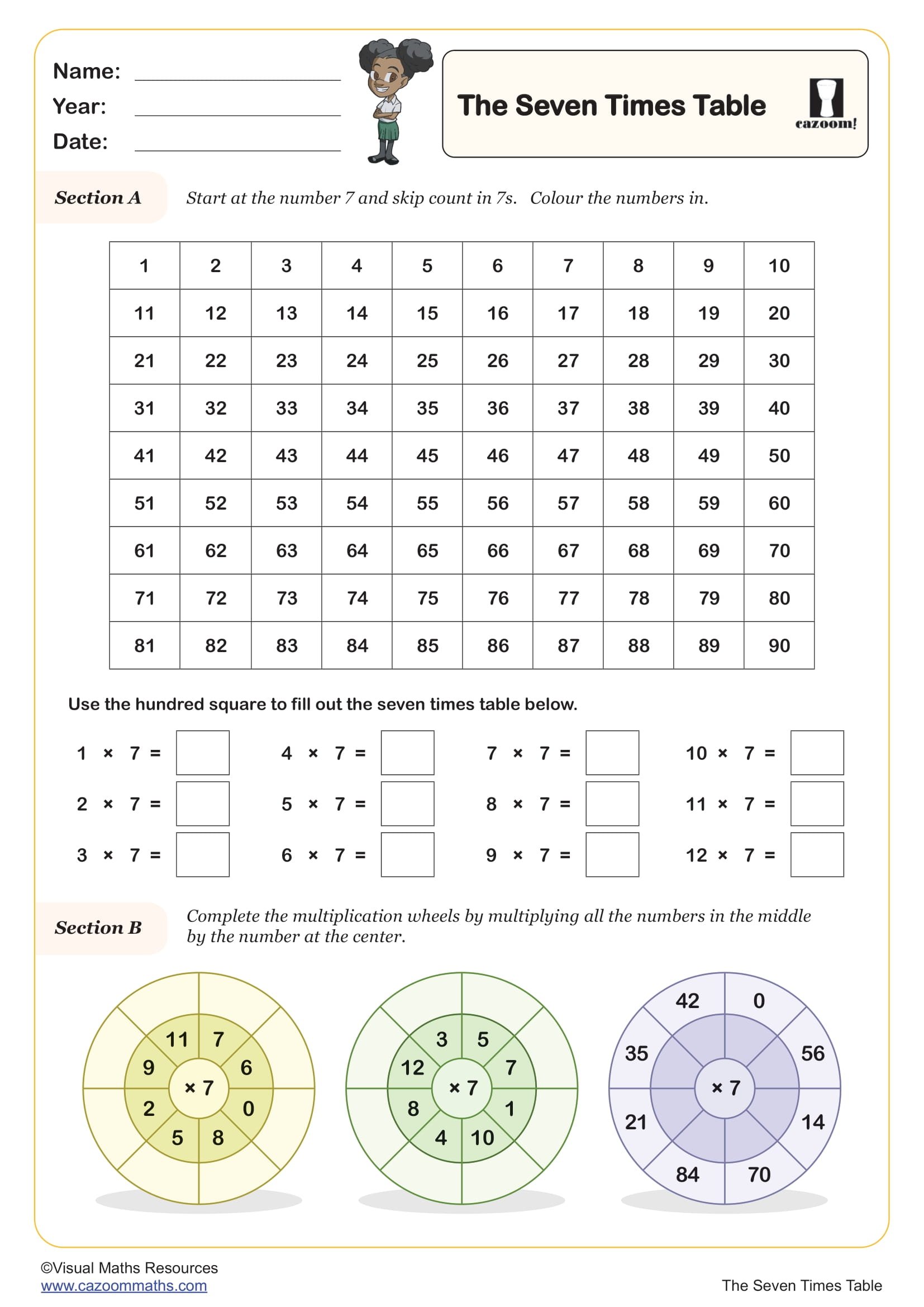
The Six Times Table
Year groups: 4
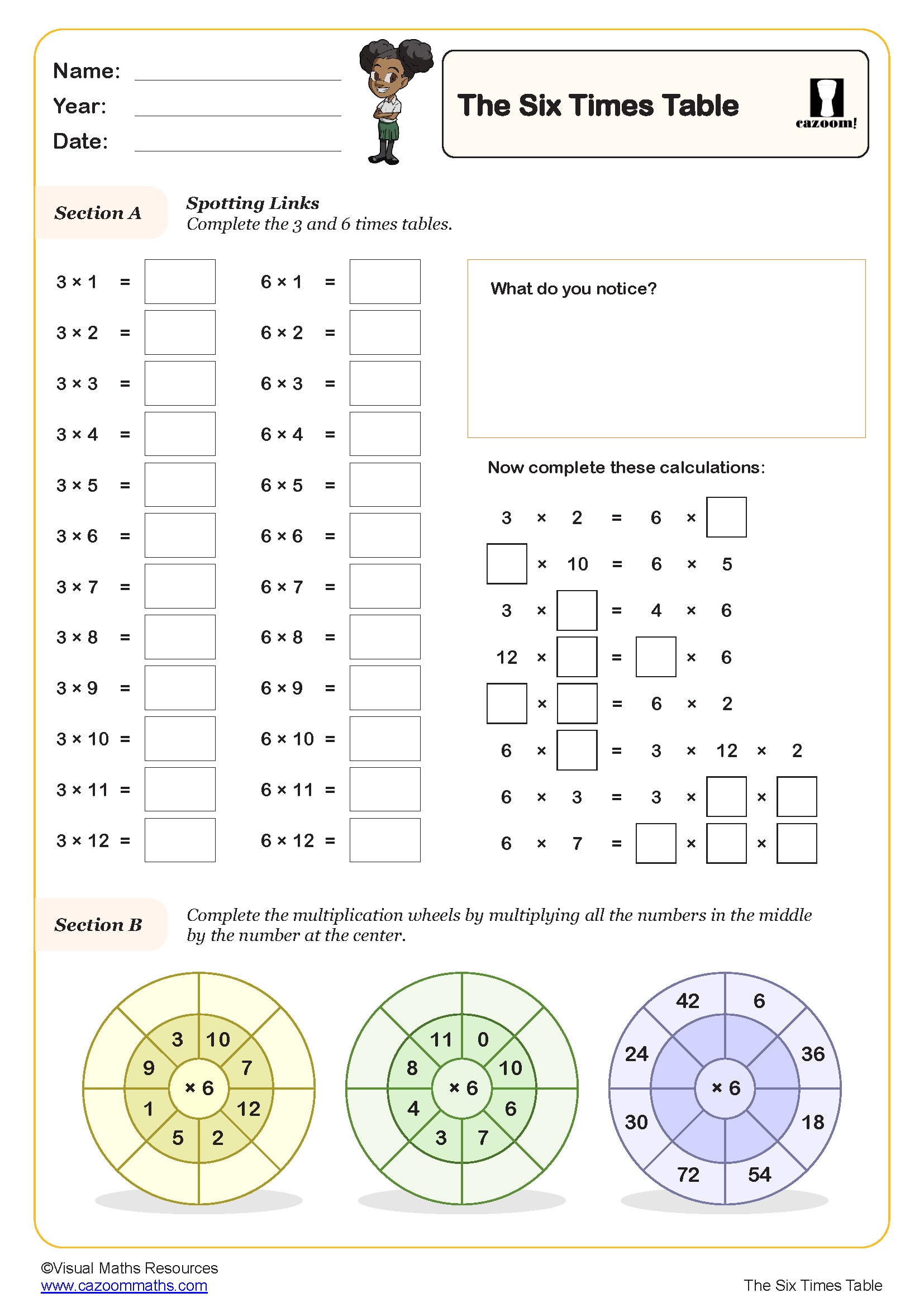
Times Tables 10 minute Challenge
Year groups: 4
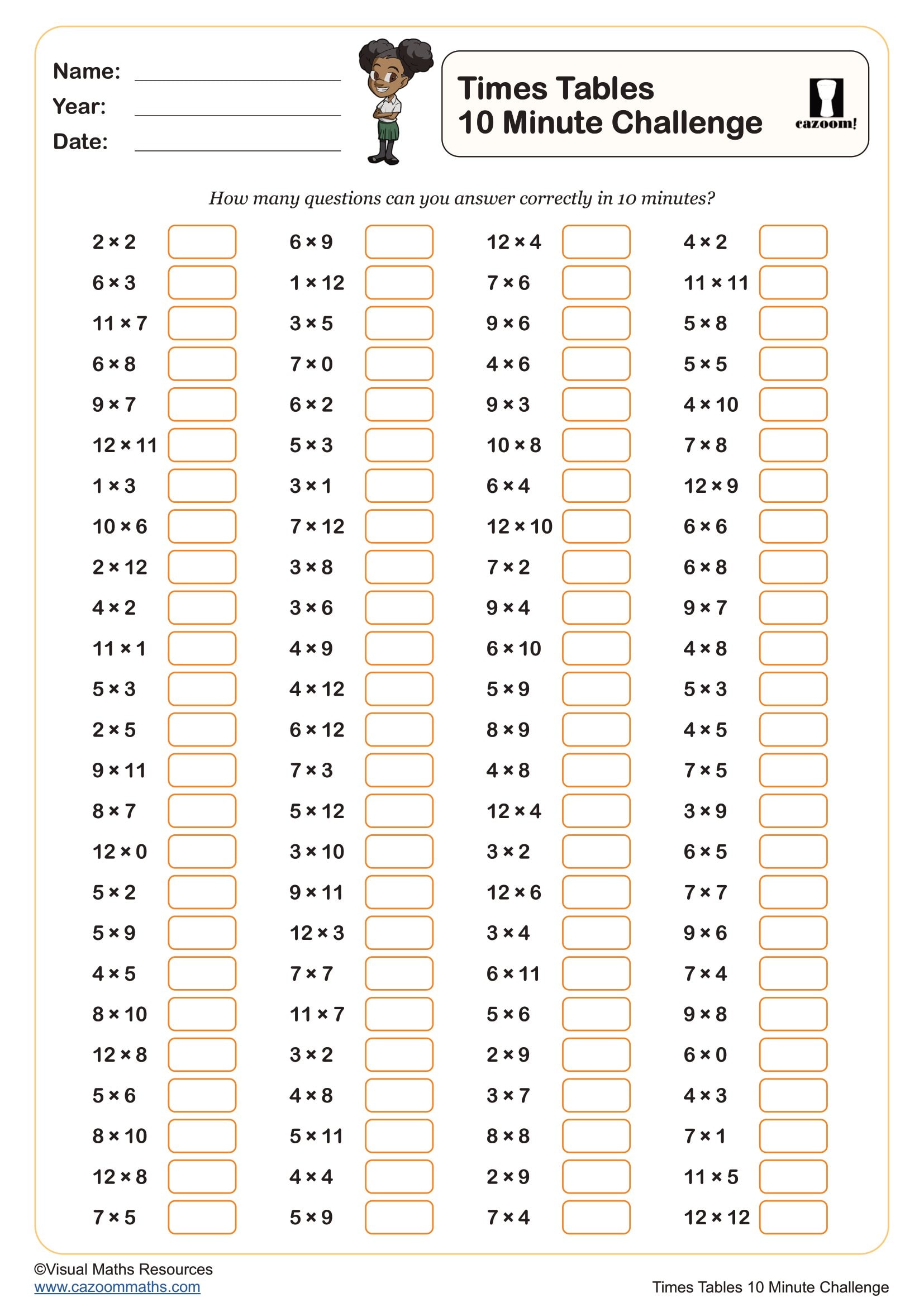
Using Inverses to Check Answers - Multiplication and Division
Year groups: 4, 5
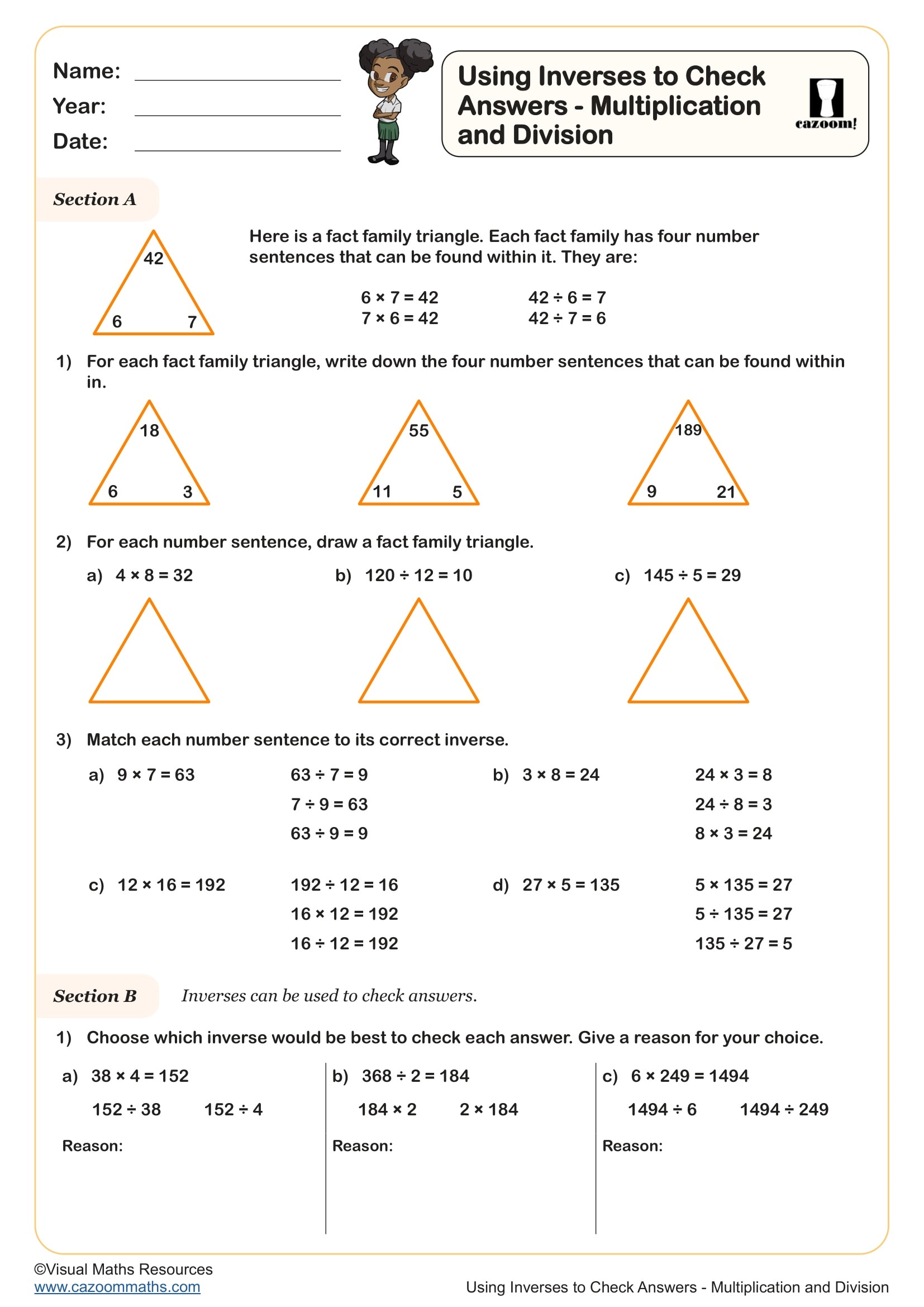
Using Times Tables and Place Value to Multiply Mentally
Year groups: 4
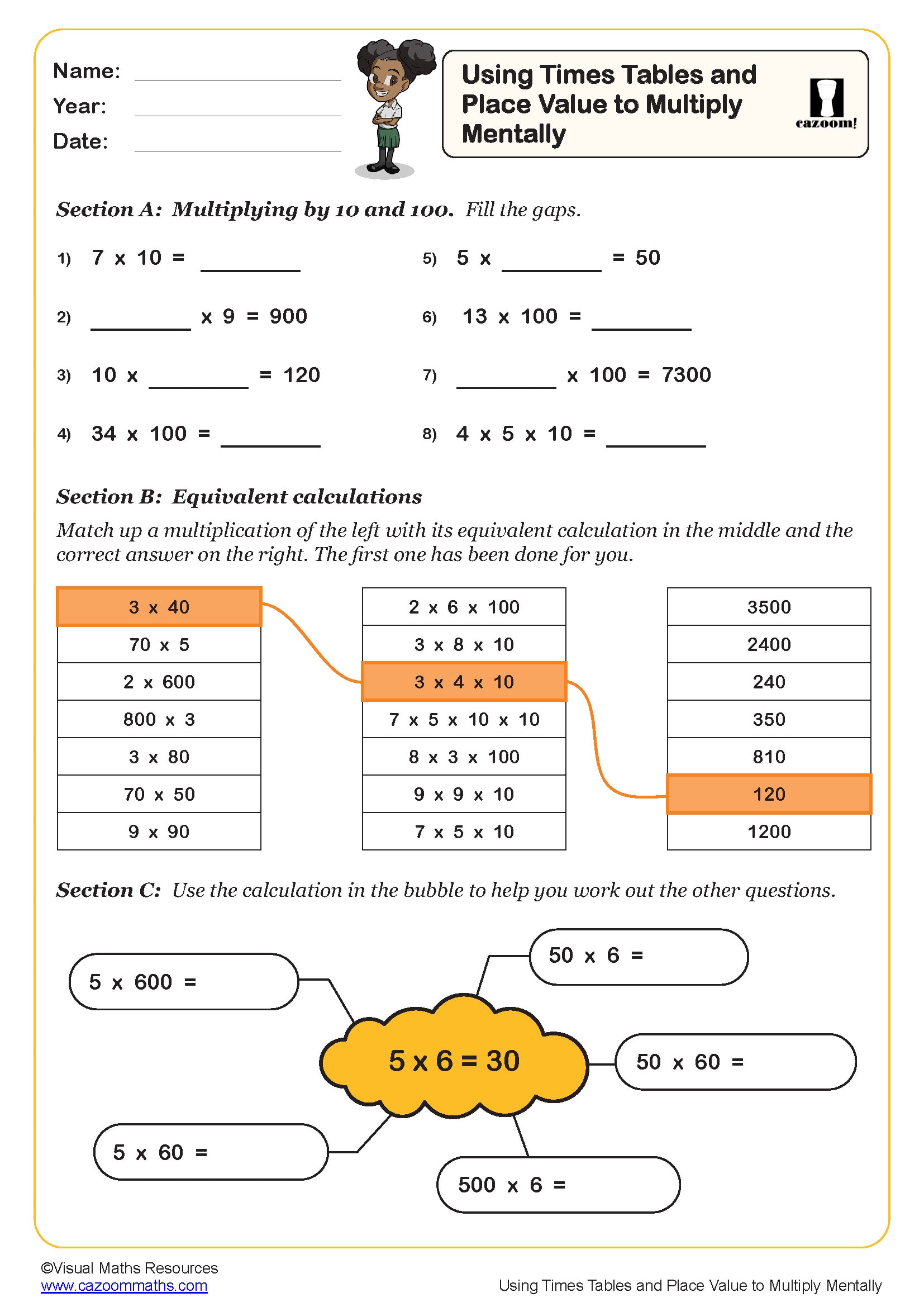
Cube Numbers
Year groups: 5, 6
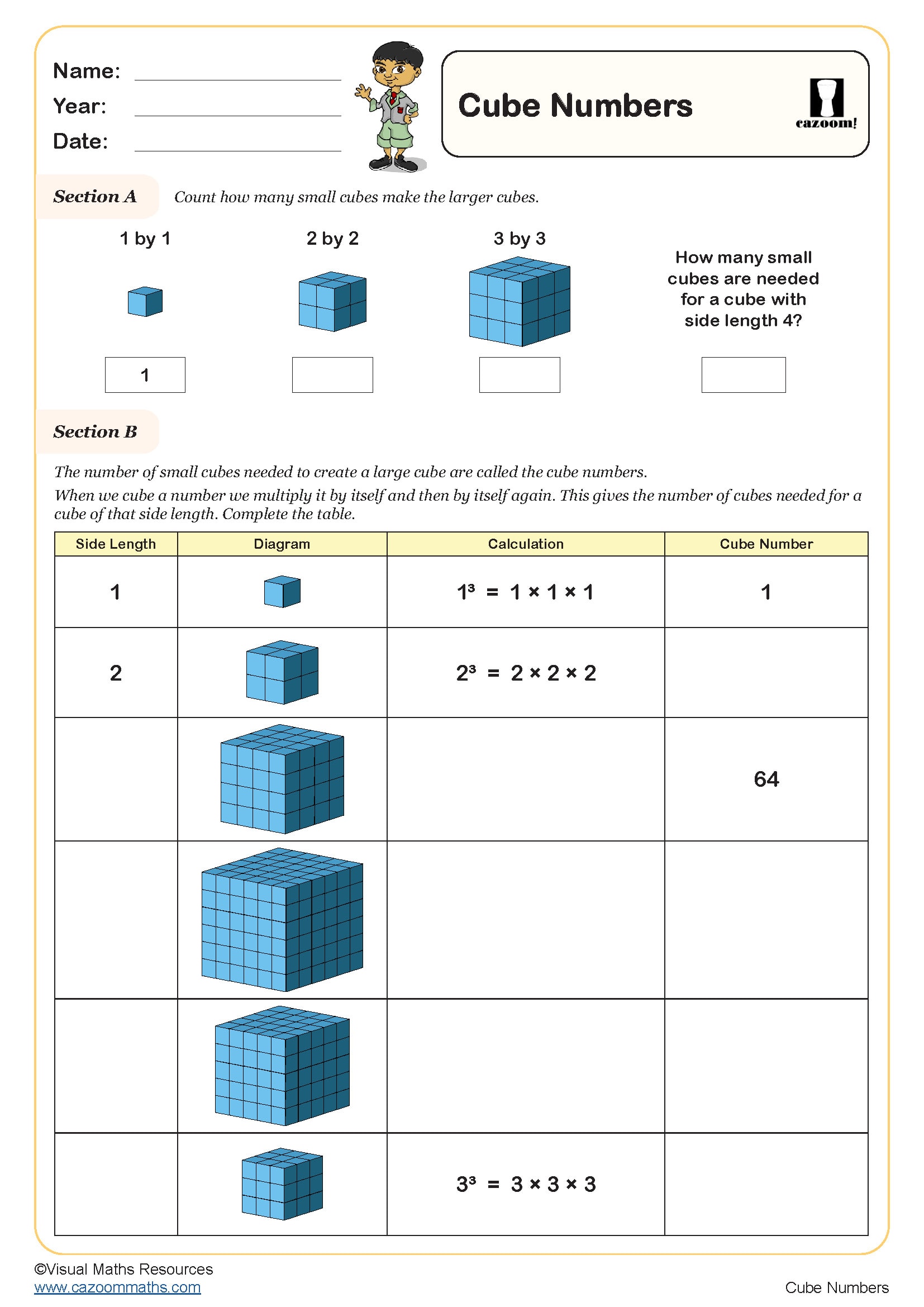
Divide Decimals by Integers (A)
Year groups: 5, 6
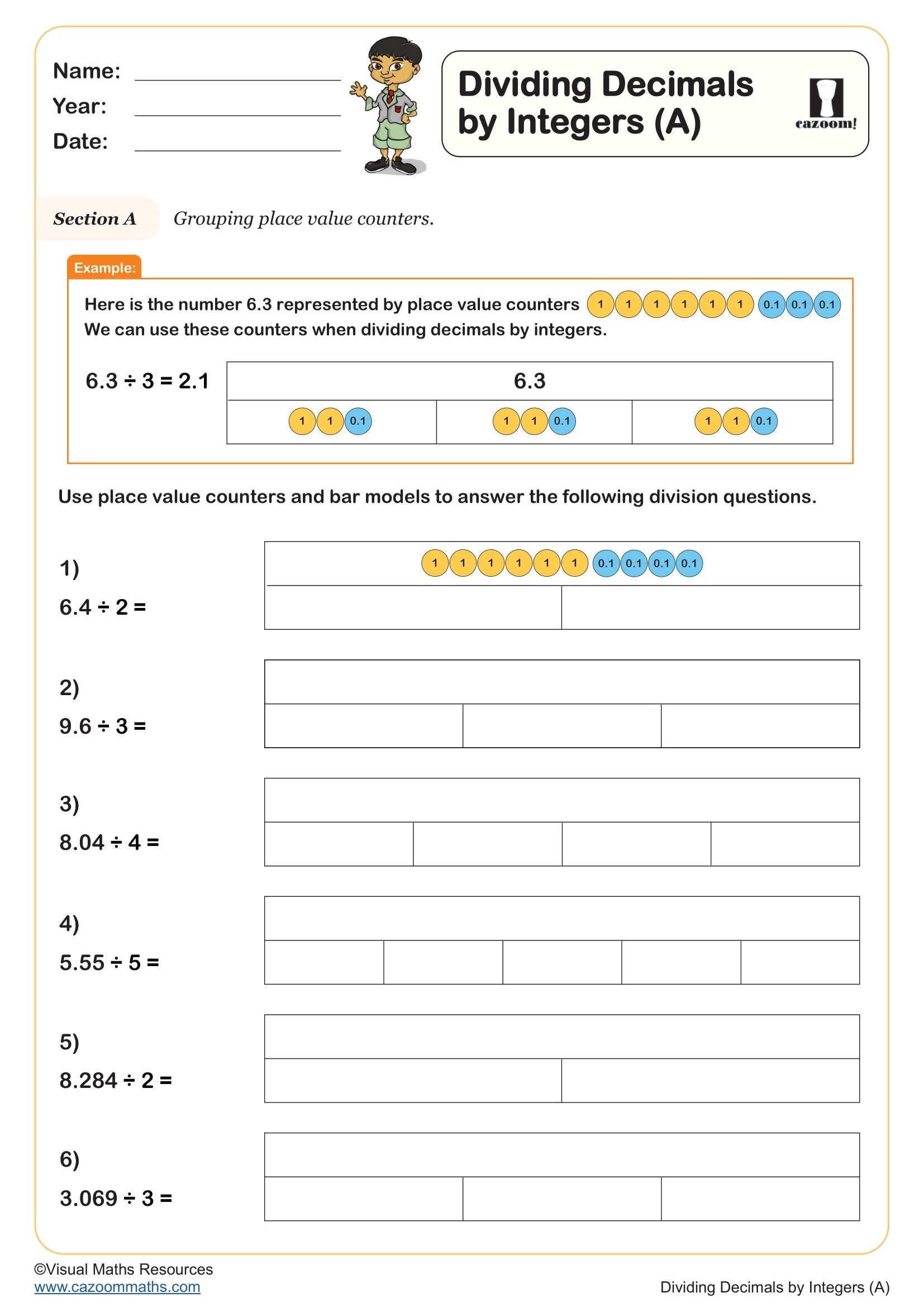
Divide Decimals by Integers (B)
Year groups: 5, 6
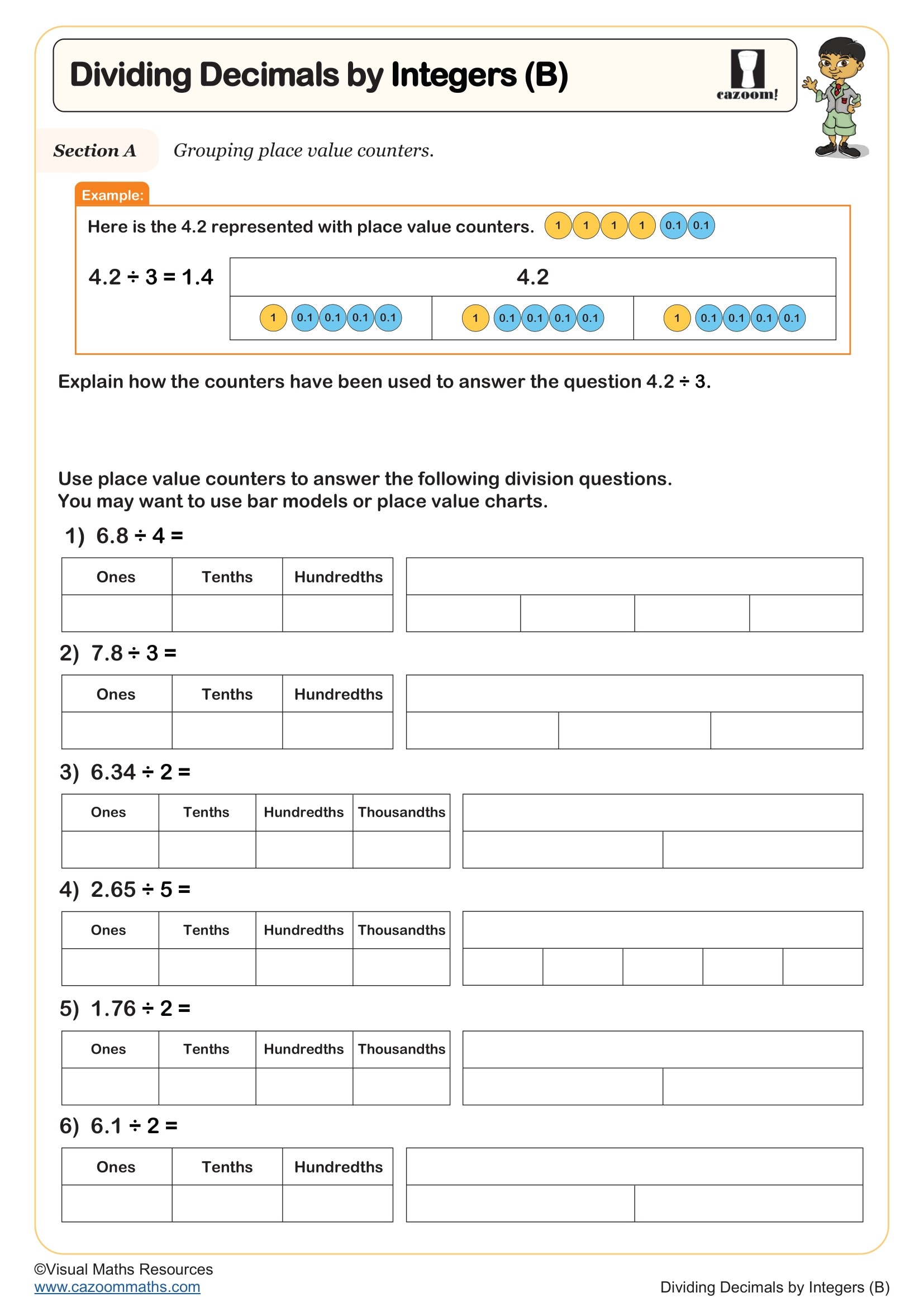
Factors (A)
Year groups: 5
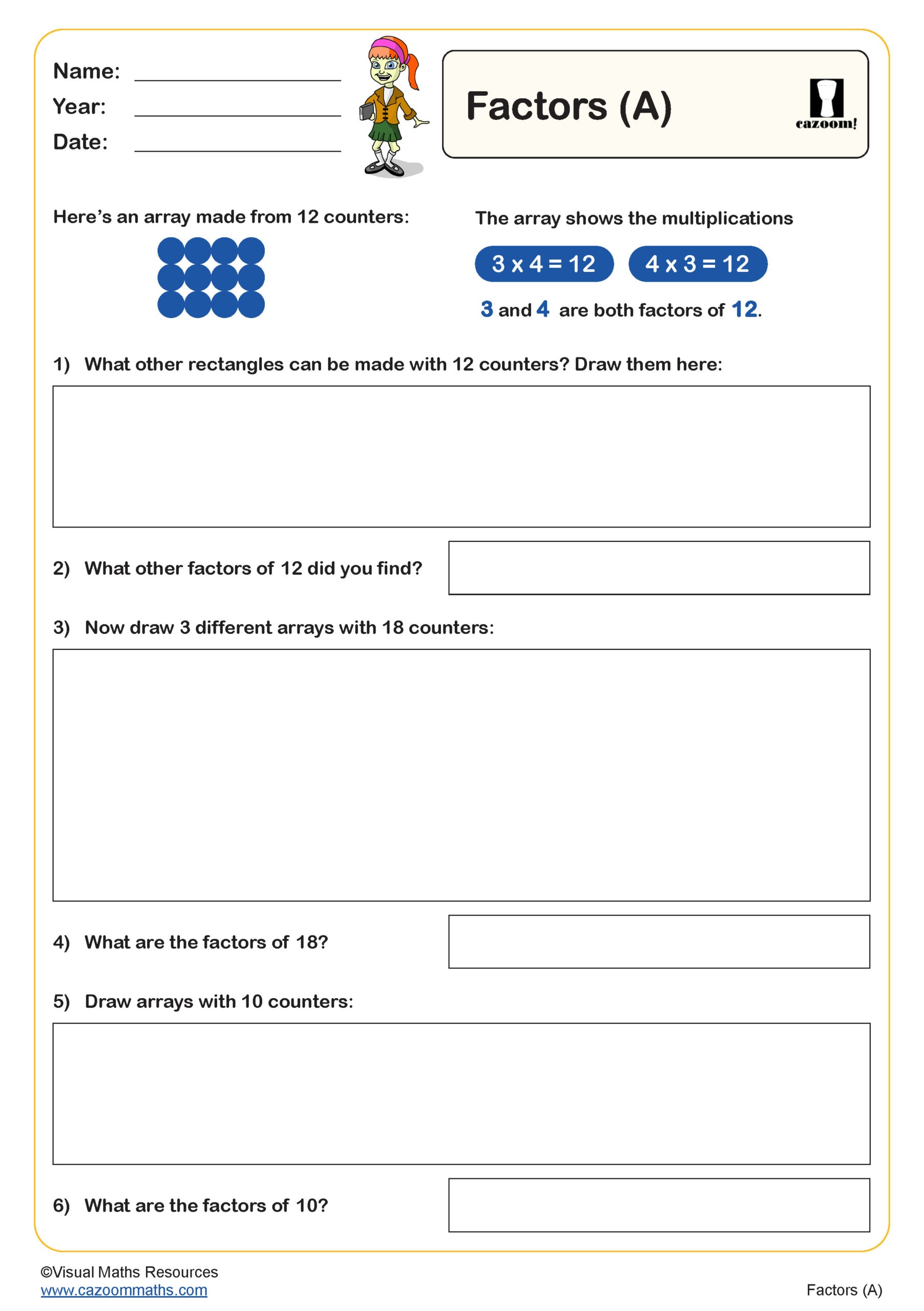
Factors (B)
Year groups: 5
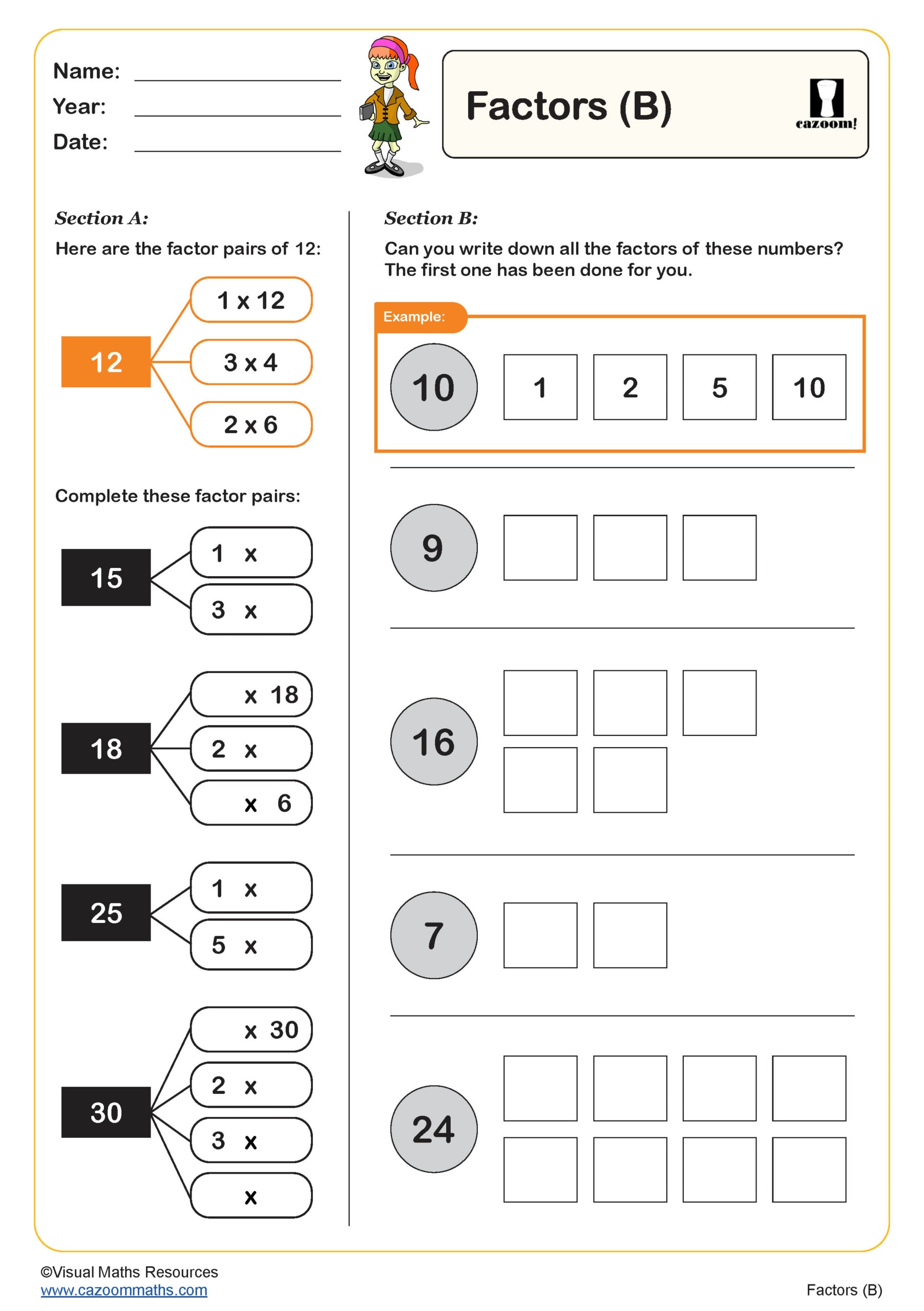
Factors and Multiples
Year groups: 5
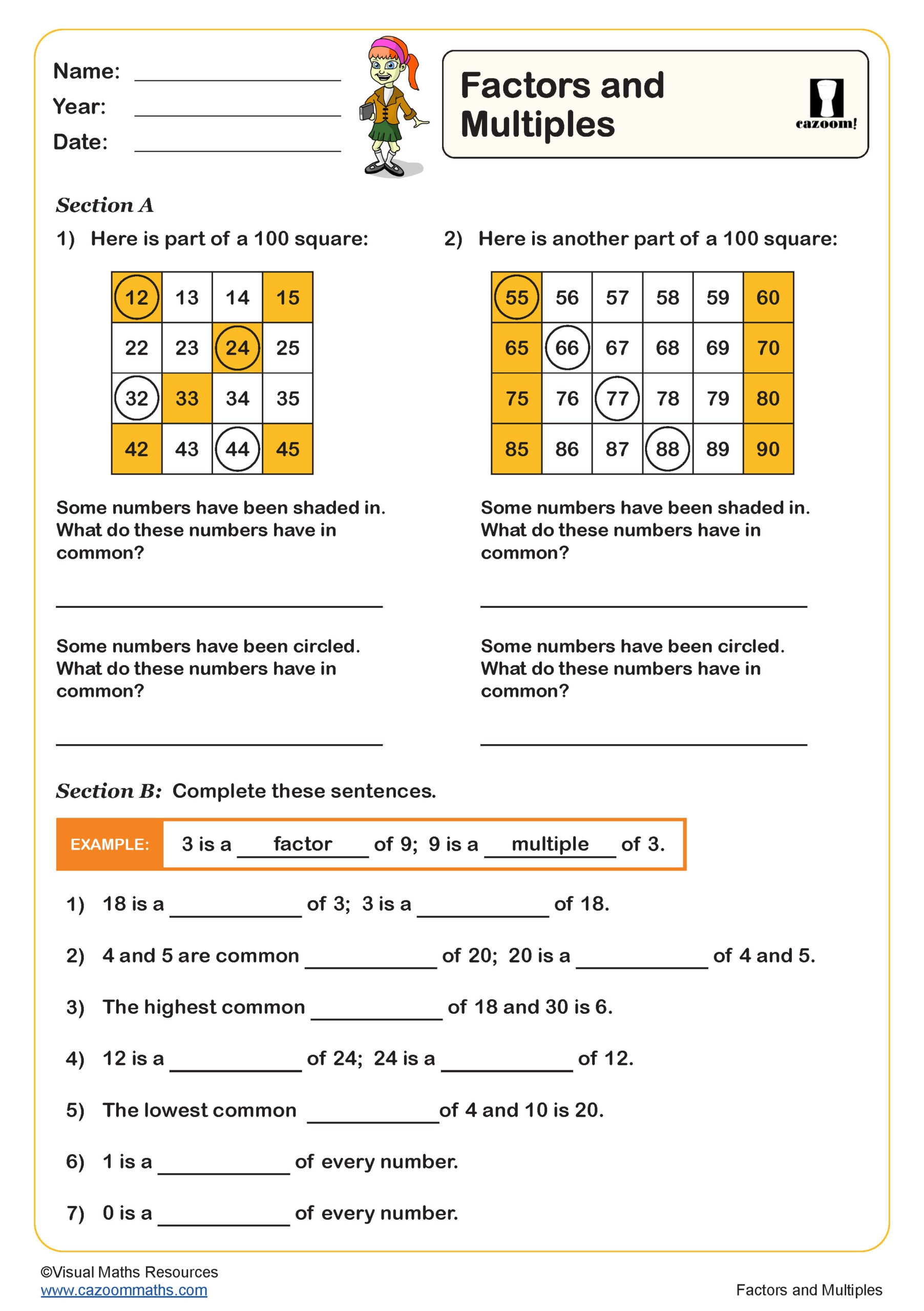
Four Operation Word Problems (A)
Year groups: 5
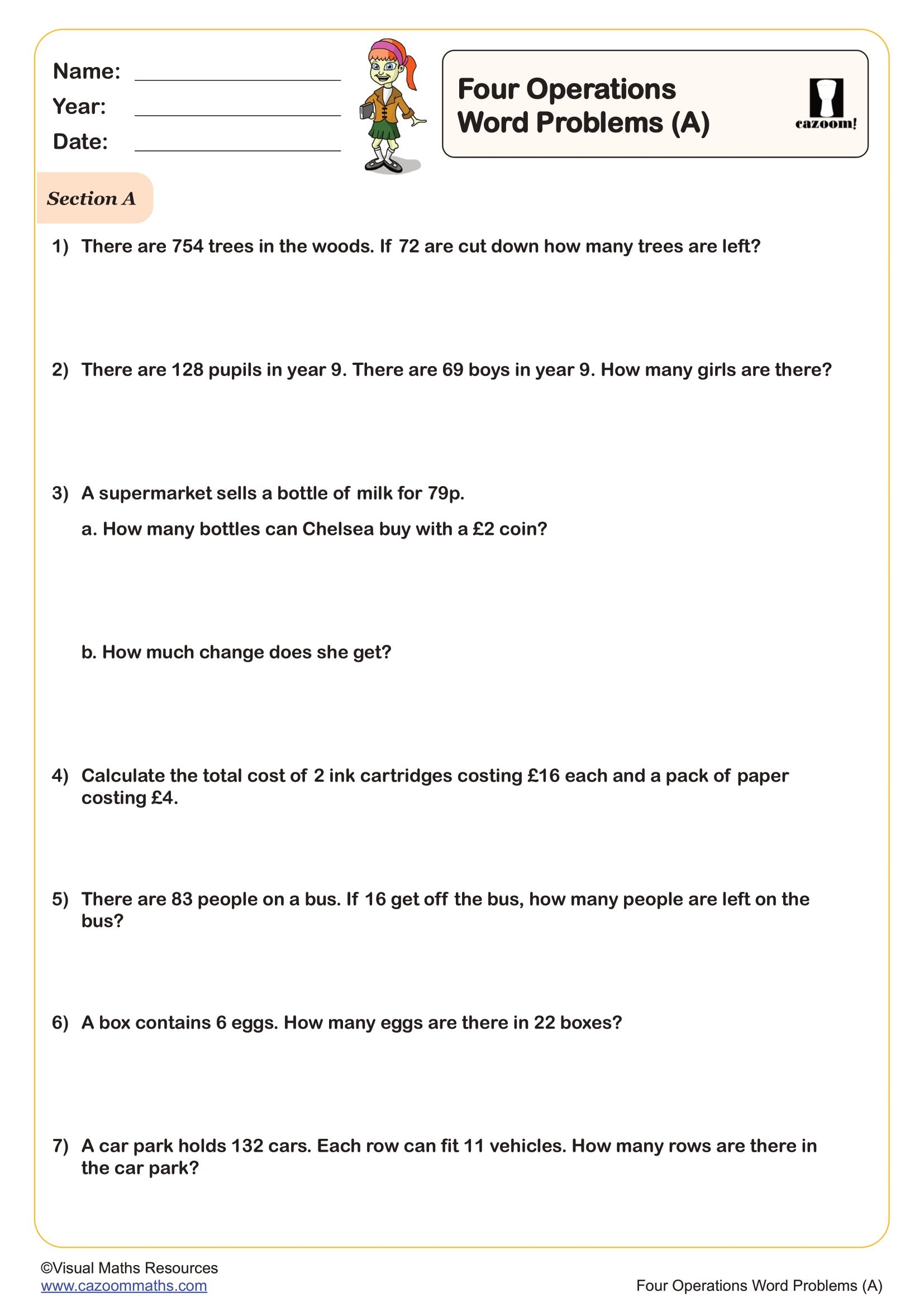
Four Operation Word Problems (A) with clues
Year groups: 5
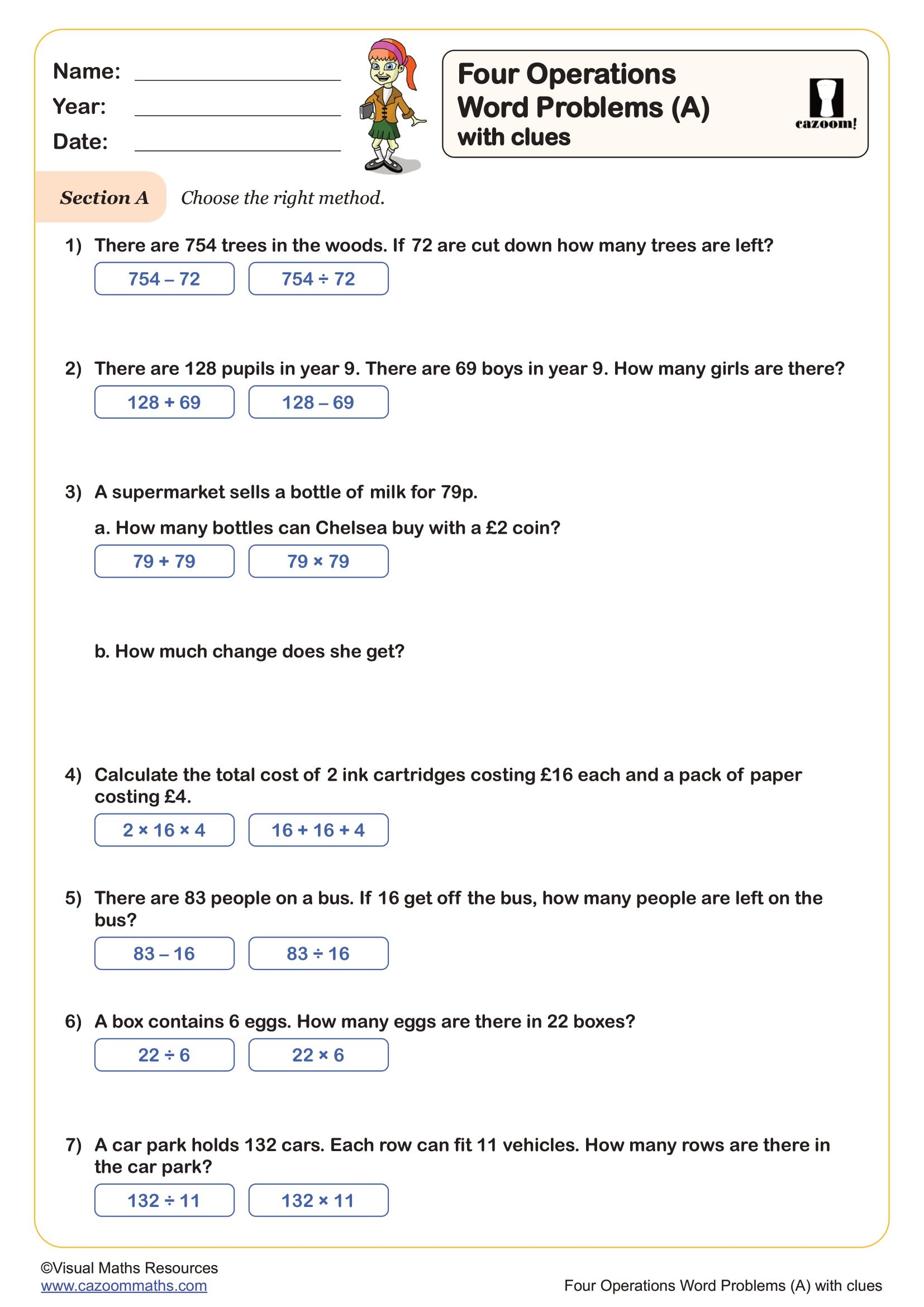
Identifying Prime Numbers
Year groups: 5
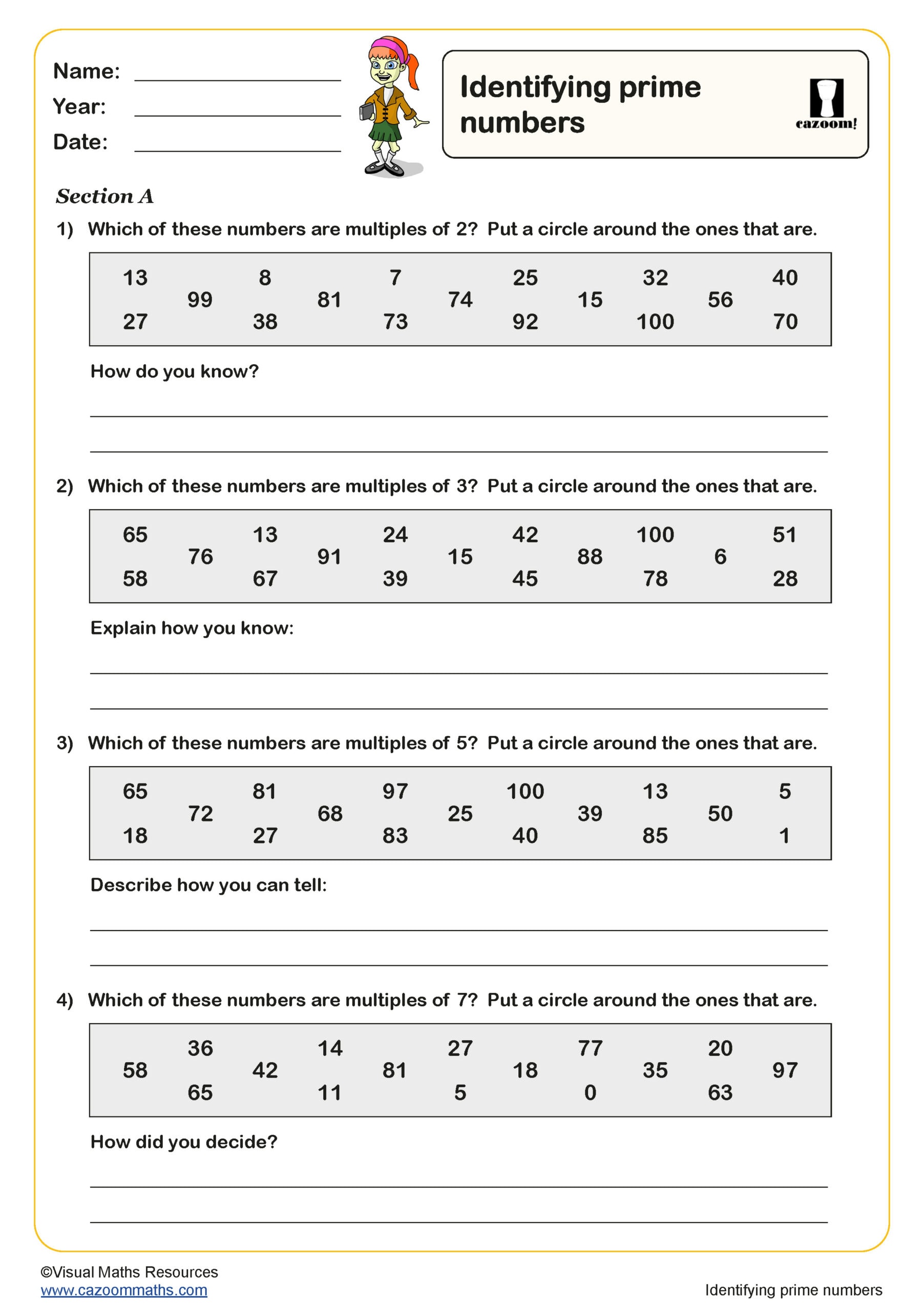
Money Problems (A)
Year groups: 5
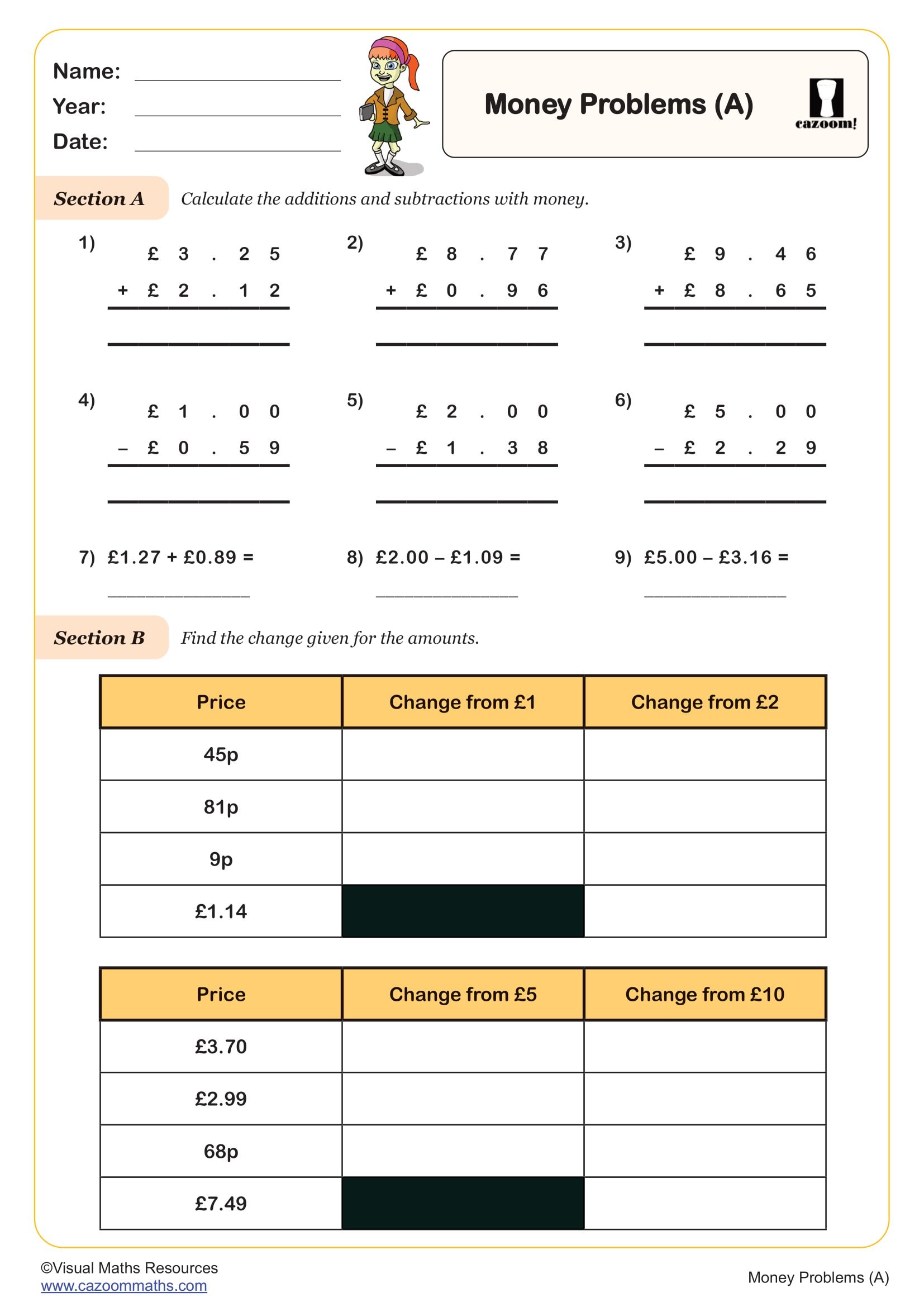
Multiples
Year groups: 5
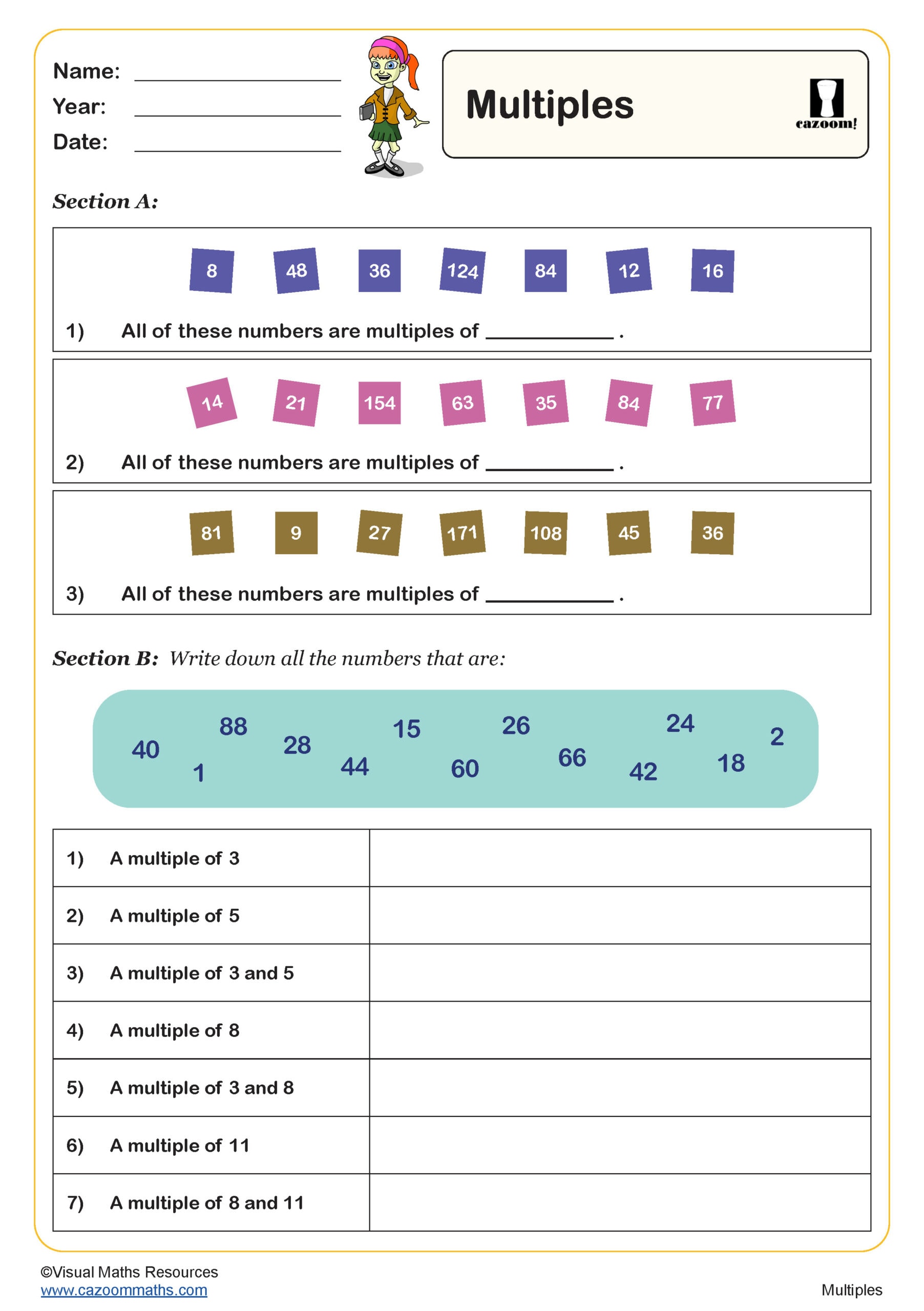
Multiply and Divide by 10 Codebreaker
Year groups: 5
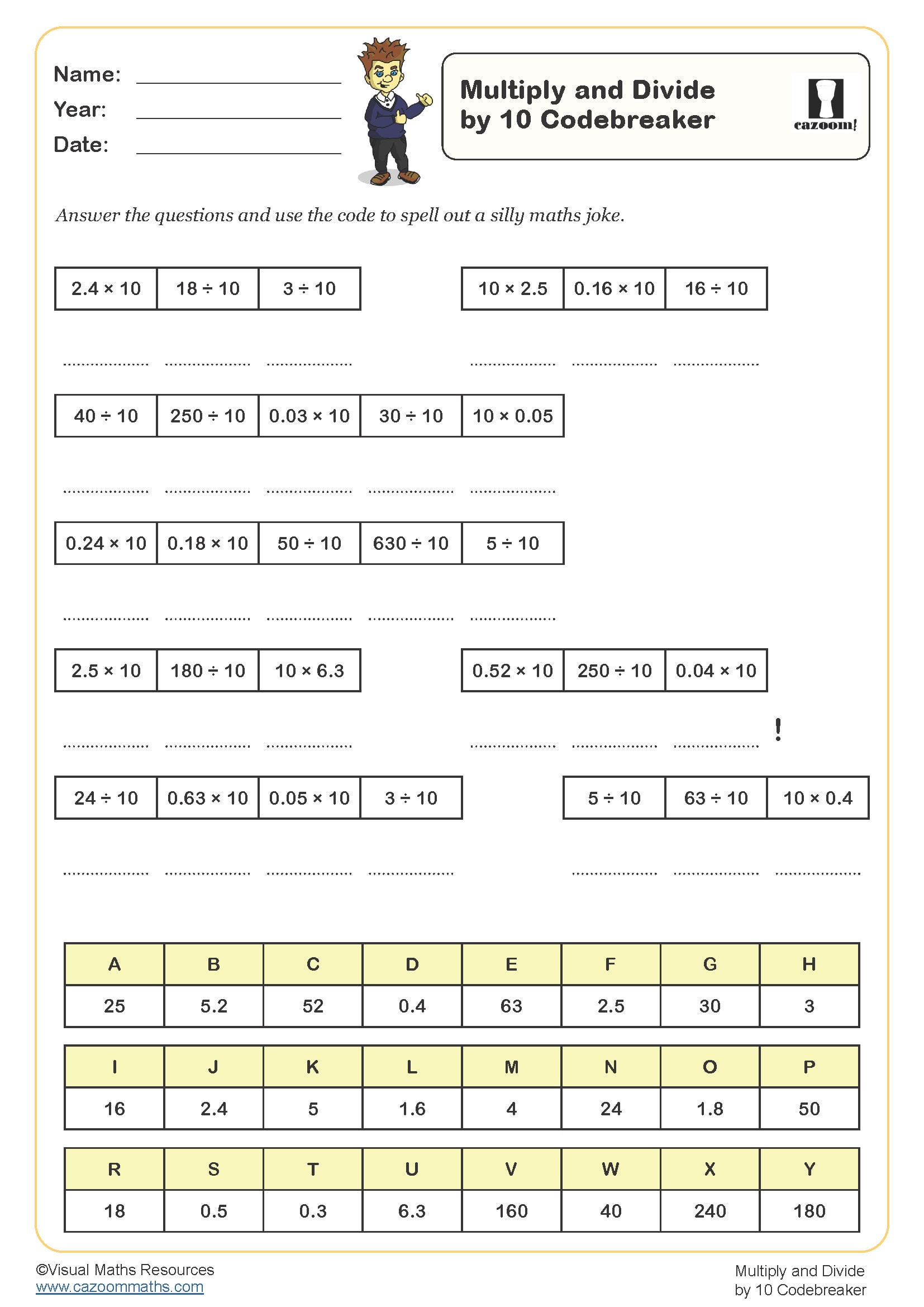
Multiply and Divide by 100 Codebreaker
Year groups: 5
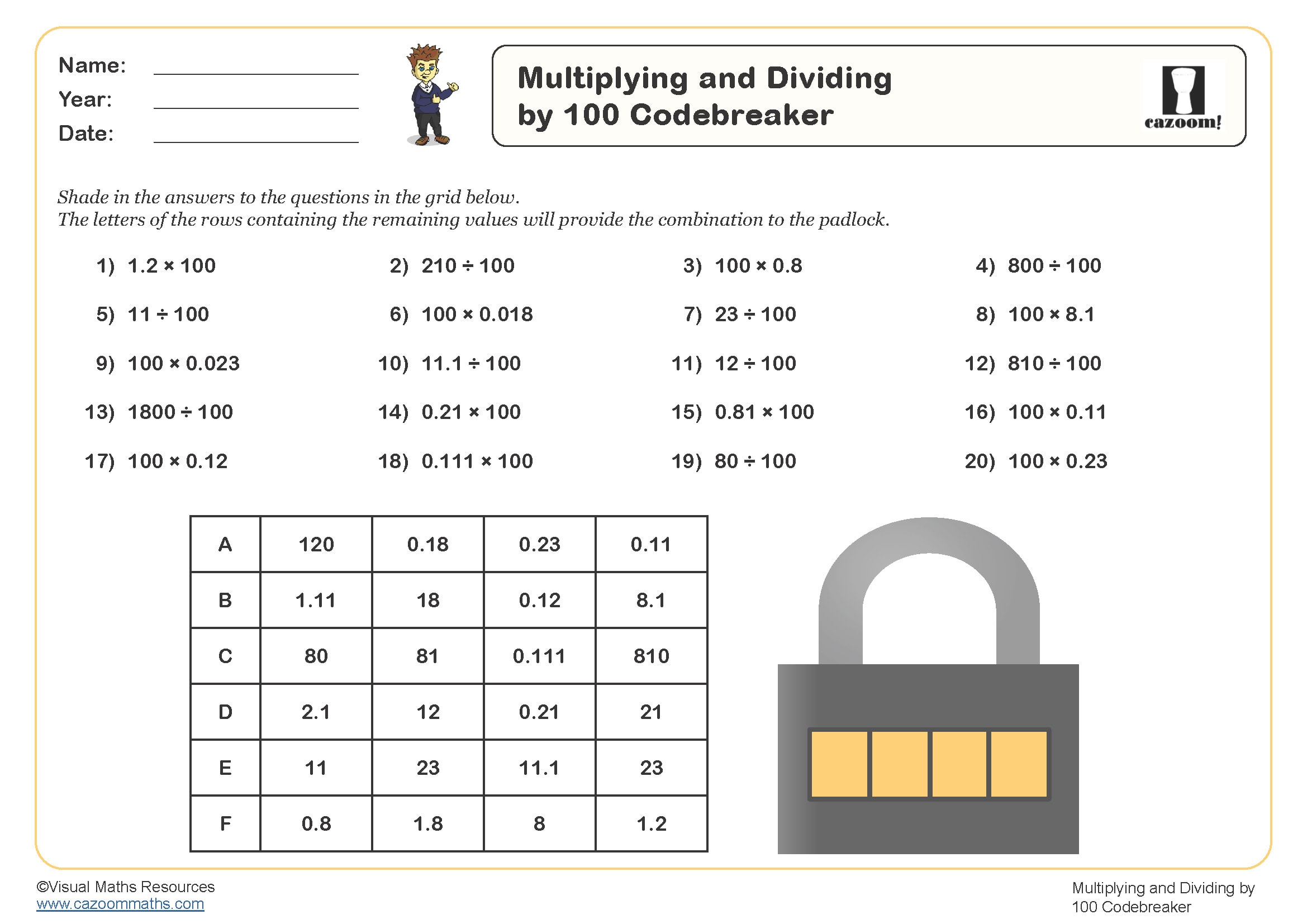
Multiply and Divide by Powers of Ten - 15 Minute Challenge
Year groups: 5
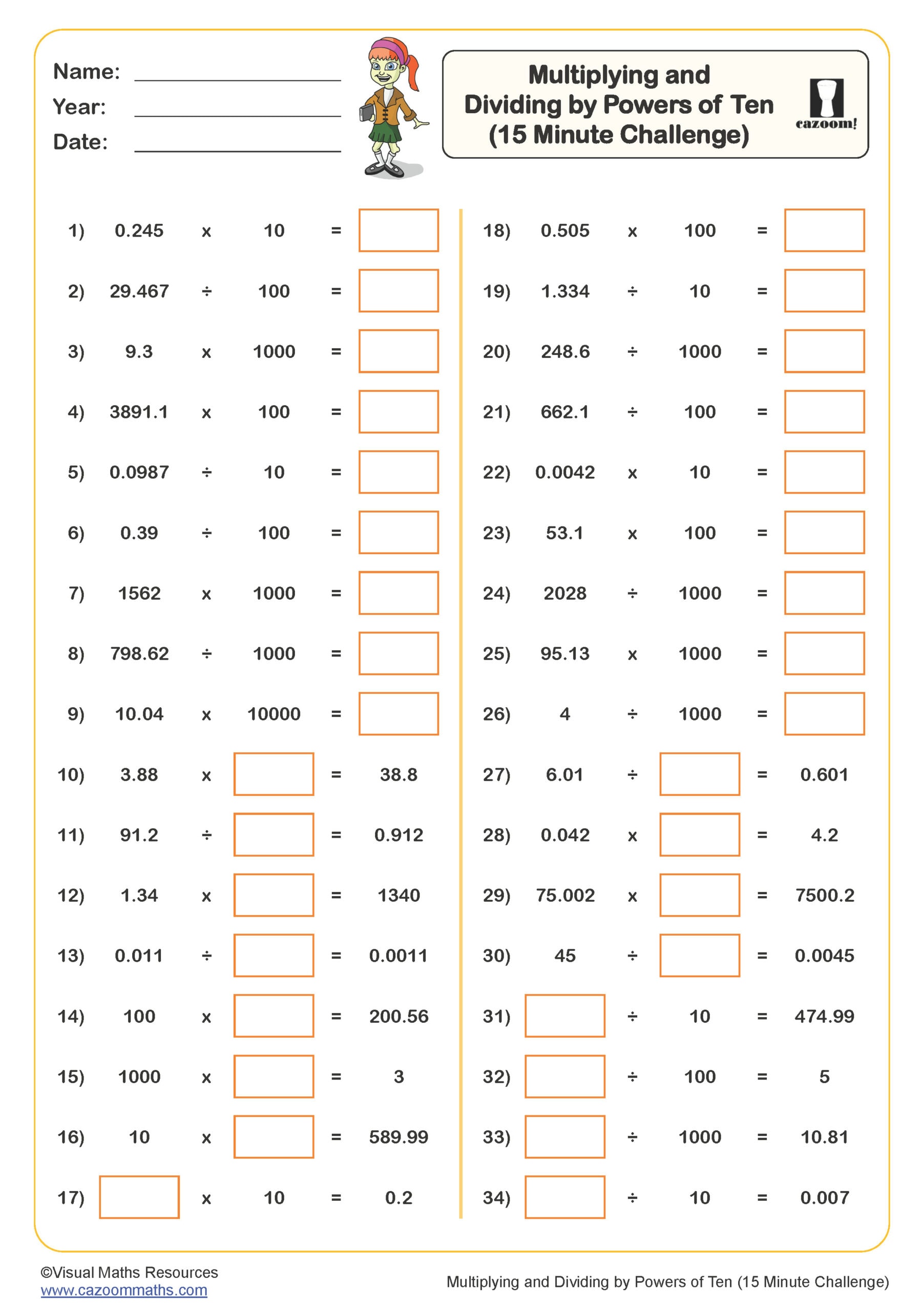
Multiply and Divide by Ten (A)
Year groups: 5
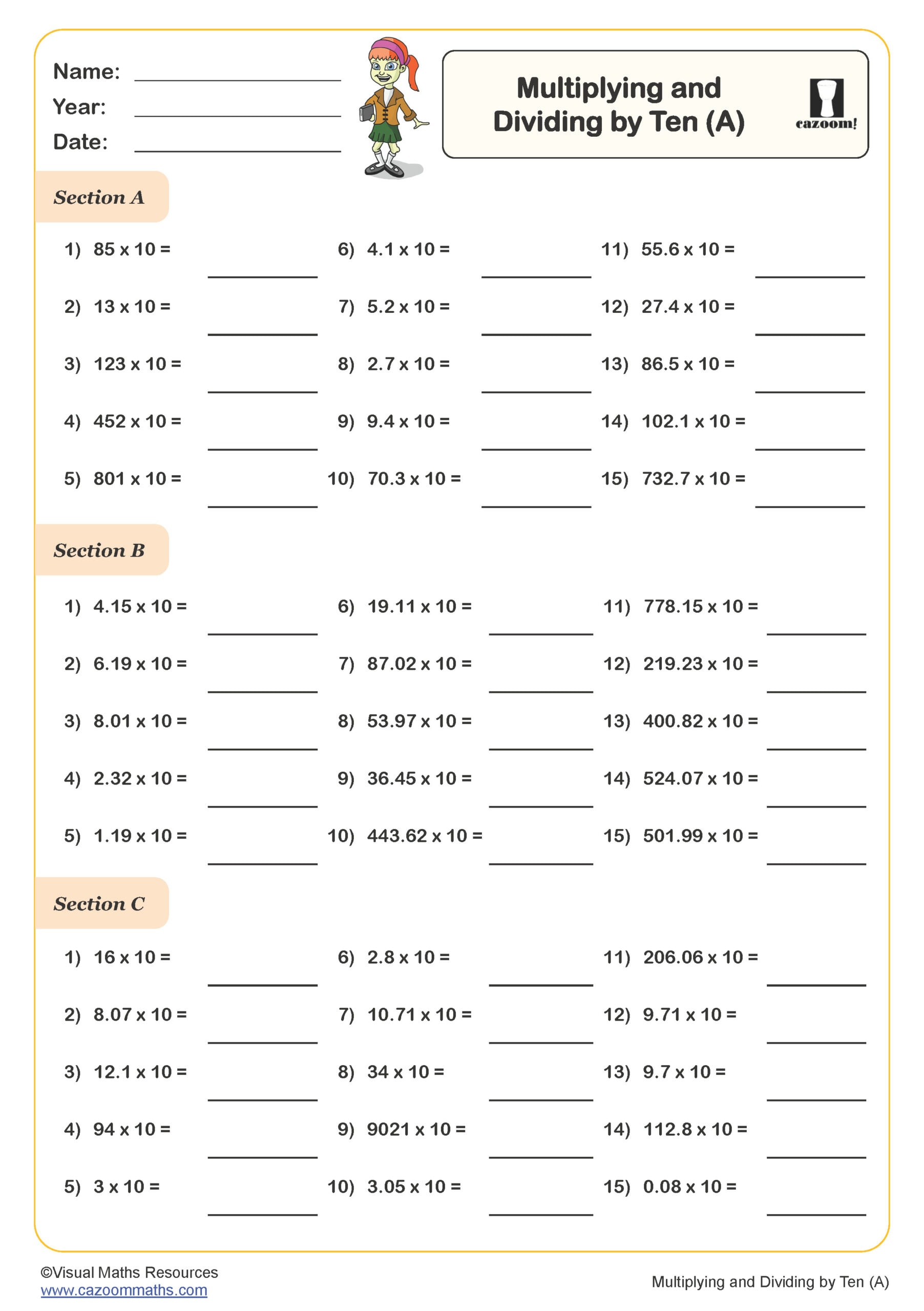
Multiplying & Dividing by Powers of Ten (B)
Year groups: 5
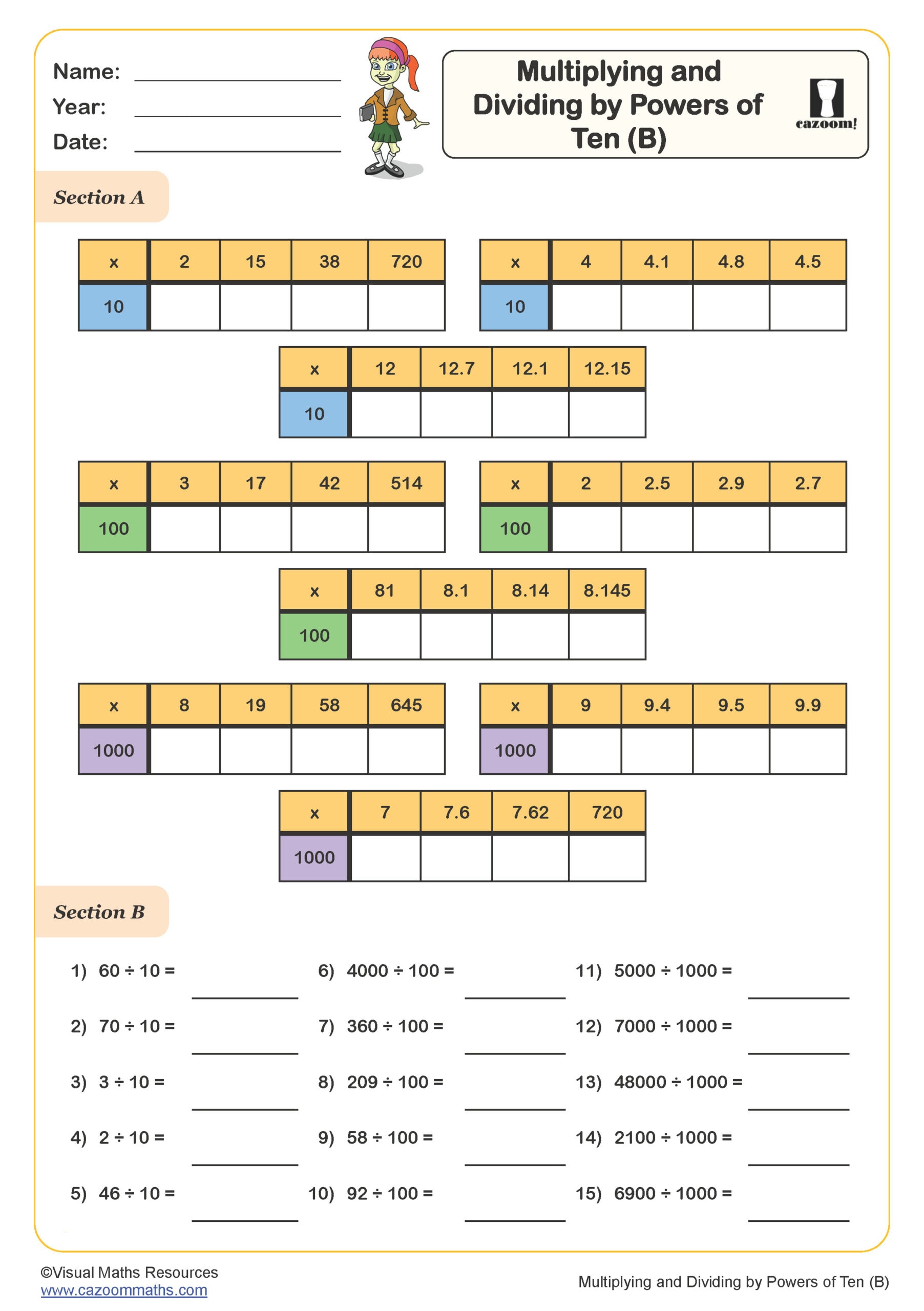
Multiplying and Dividing by 10, 100 and 1,000 Codebreaker
Year groups: 5, 6
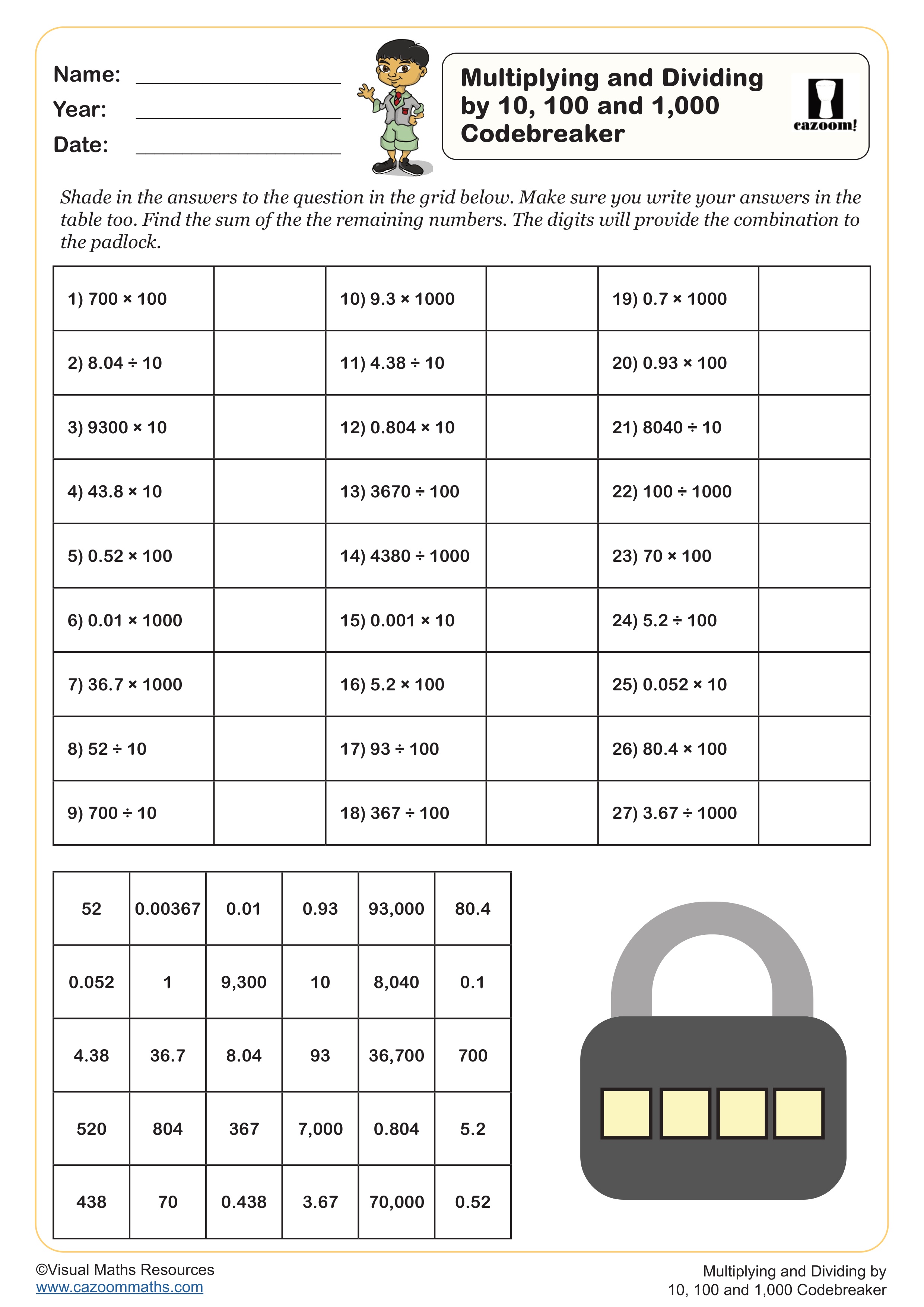
Multiplying by Two Digits Mentally
Year groups: 5
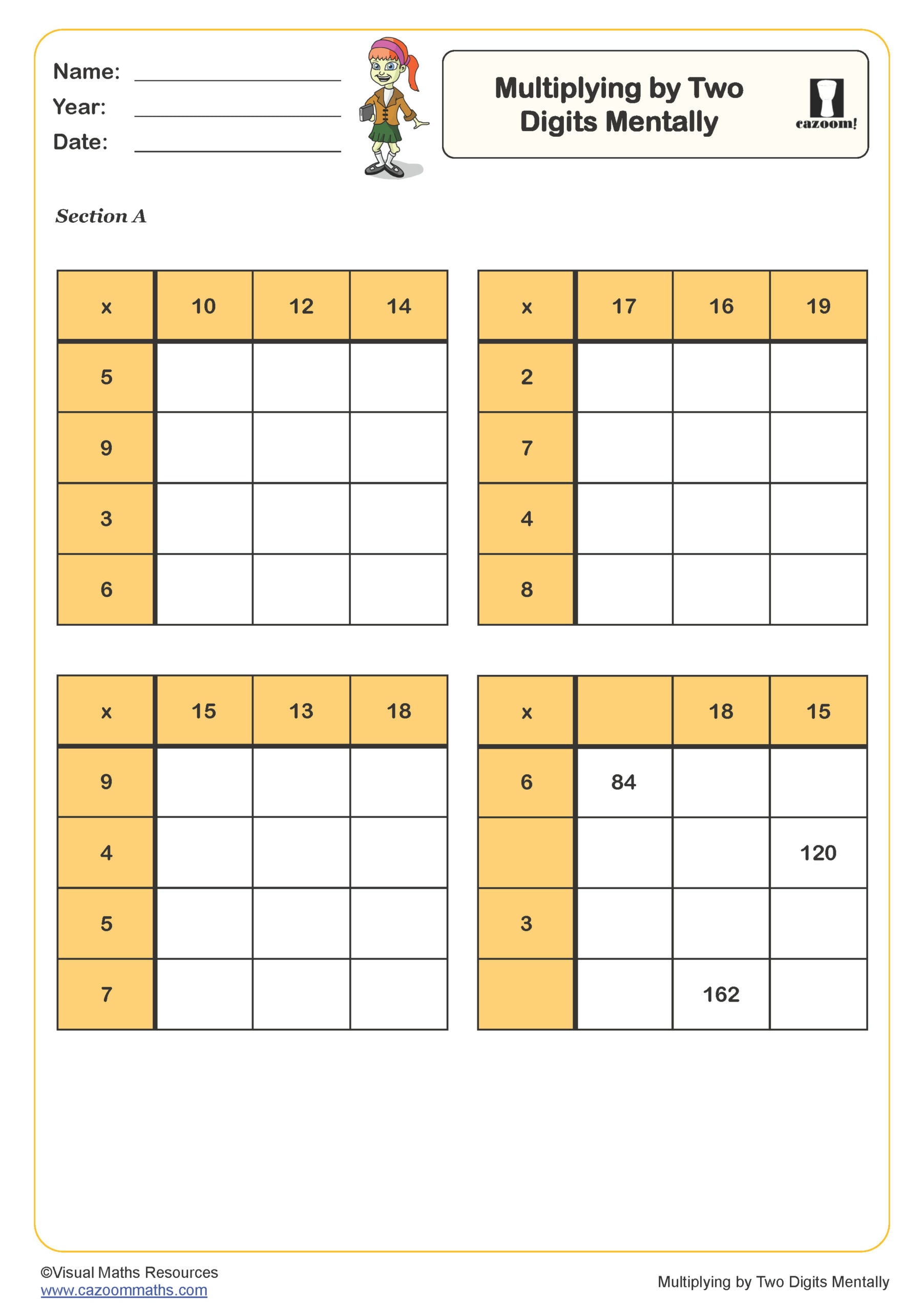
Practising the Grid Method for Short Multiplication
Year groups: 5
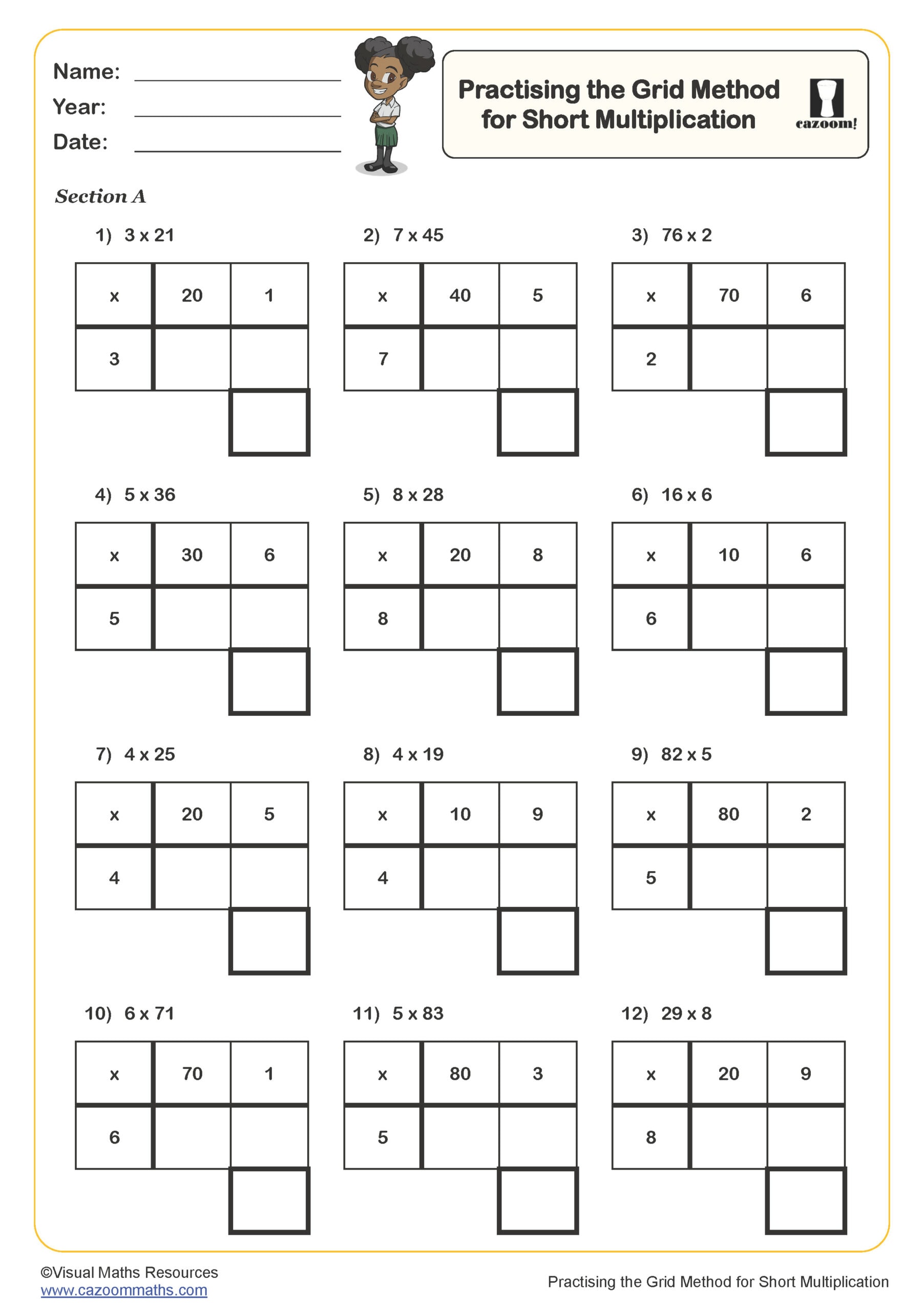
Prime Number Maze
Year groups: 5
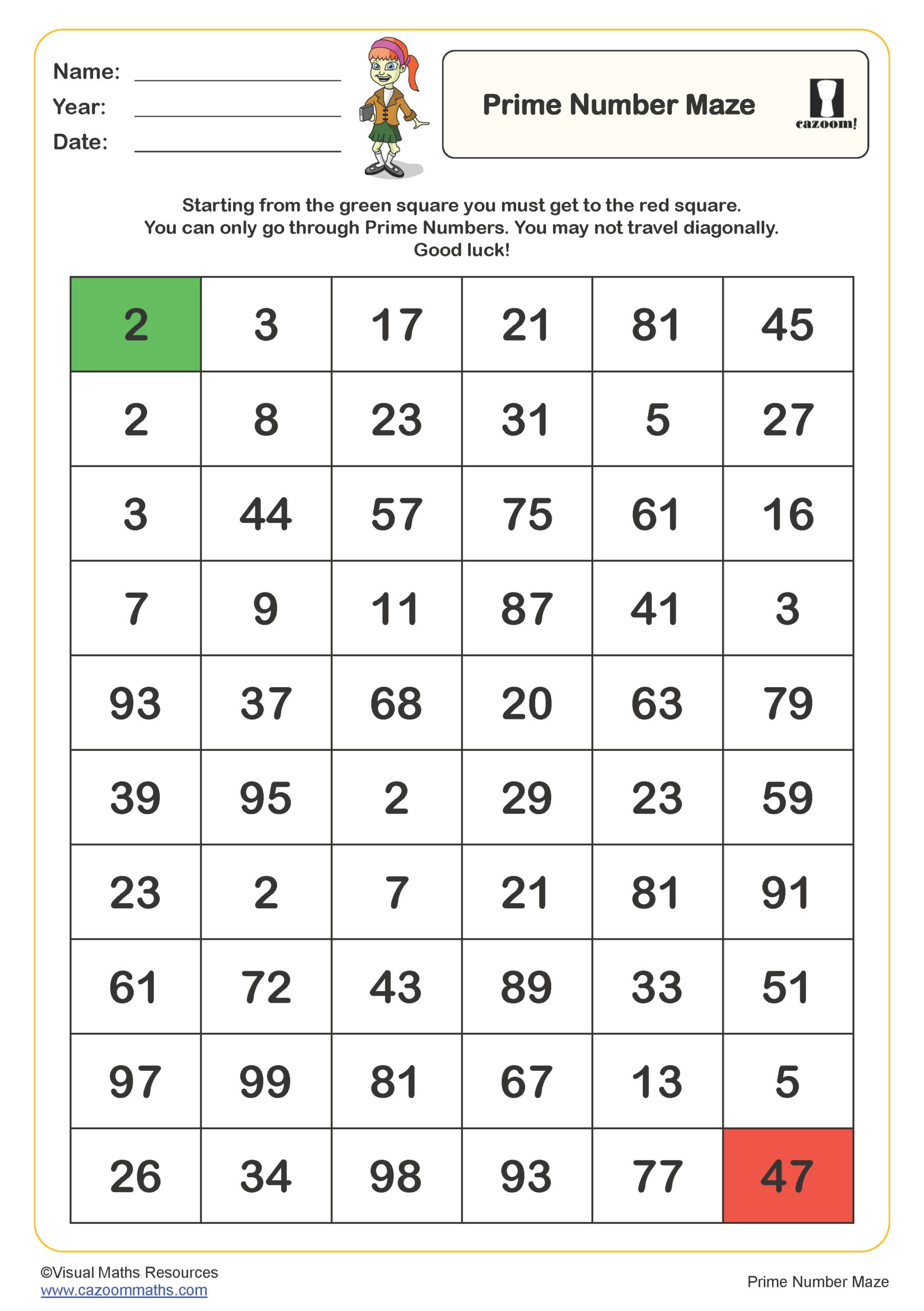
Prime Numbers
Year groups: 5
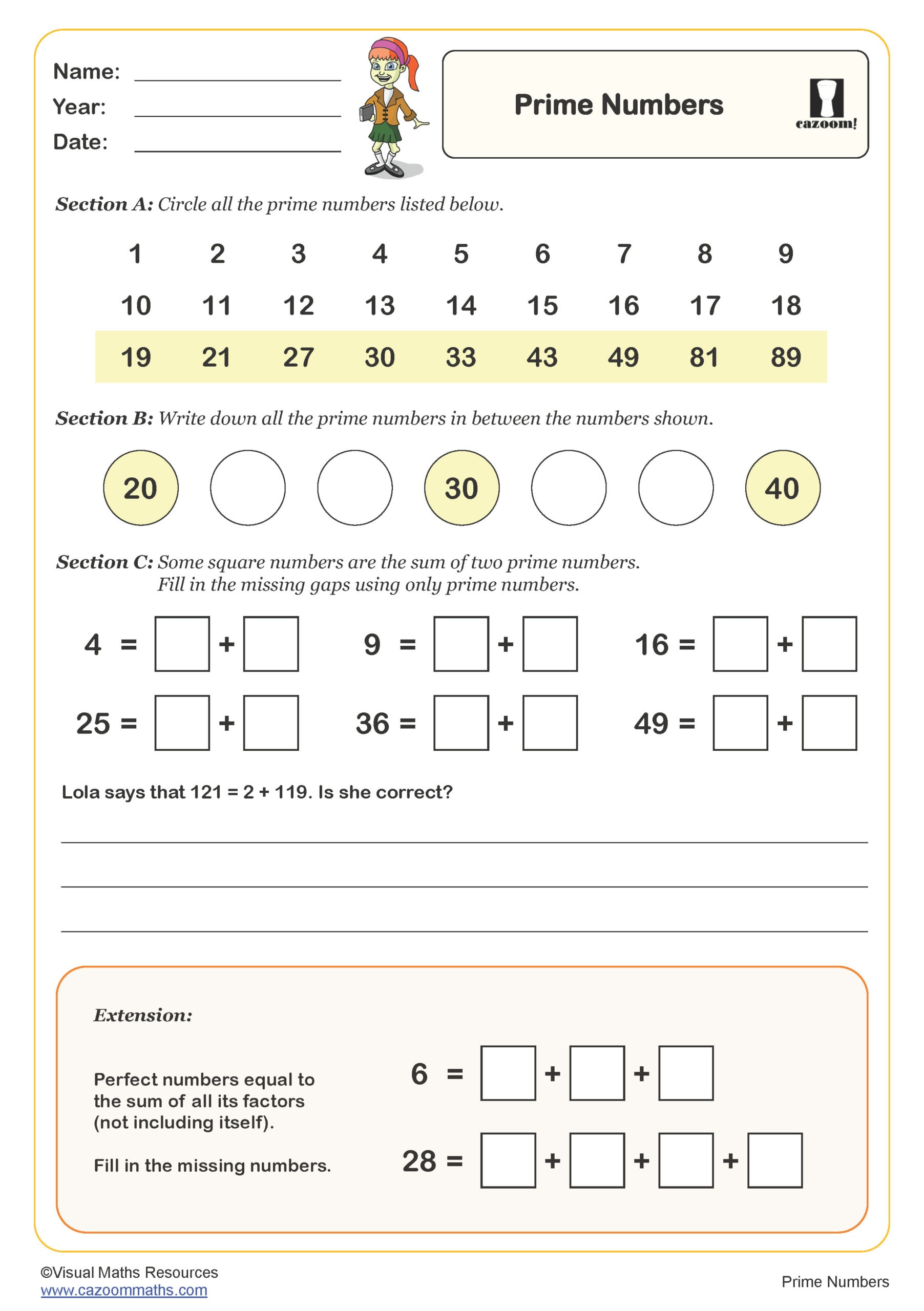
Short Division (A) Dividing 2 Digit Numbers
Year groups: 5
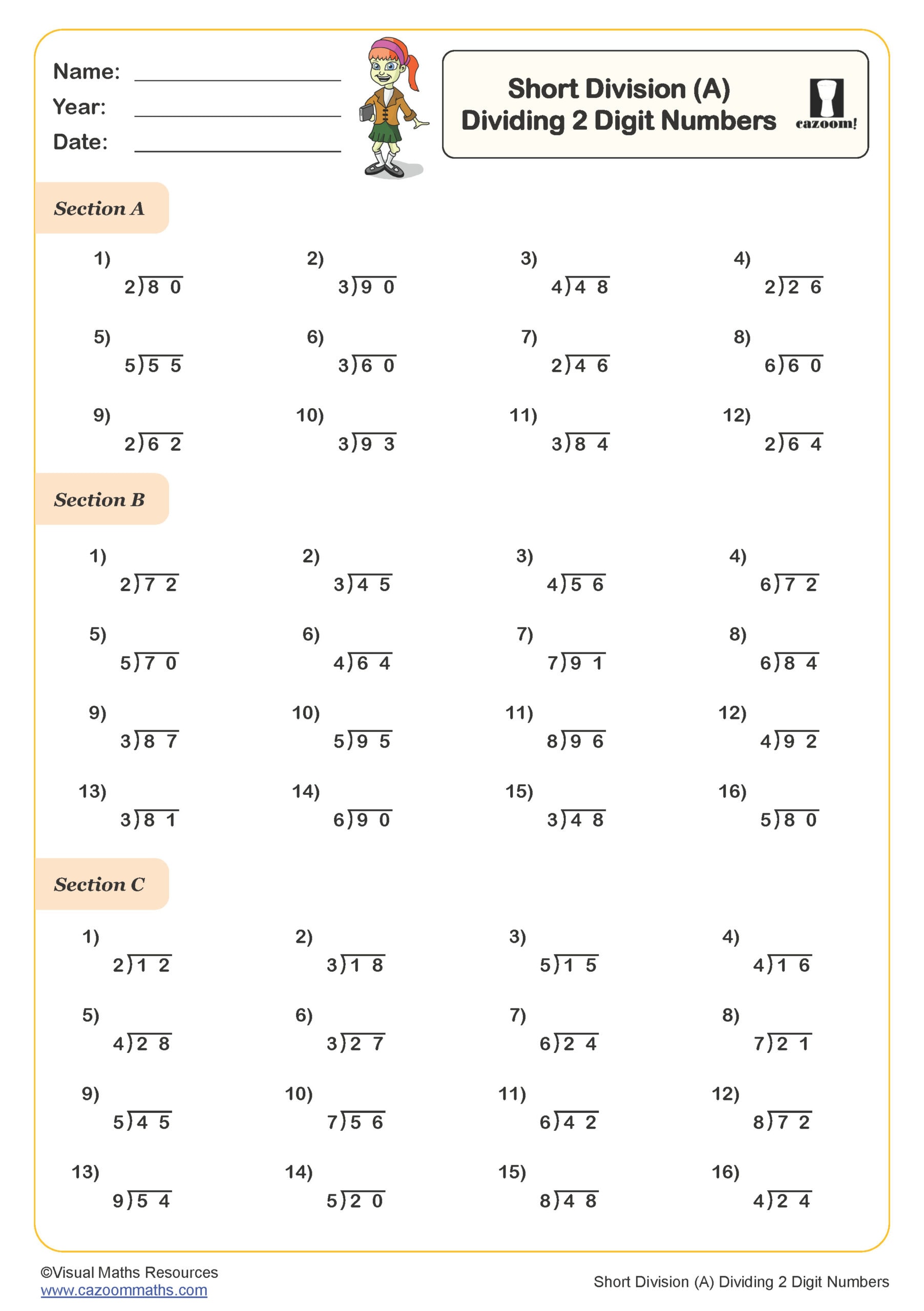
Short Division (B) Dividing 3 Digit Numbers
Year groups: 5
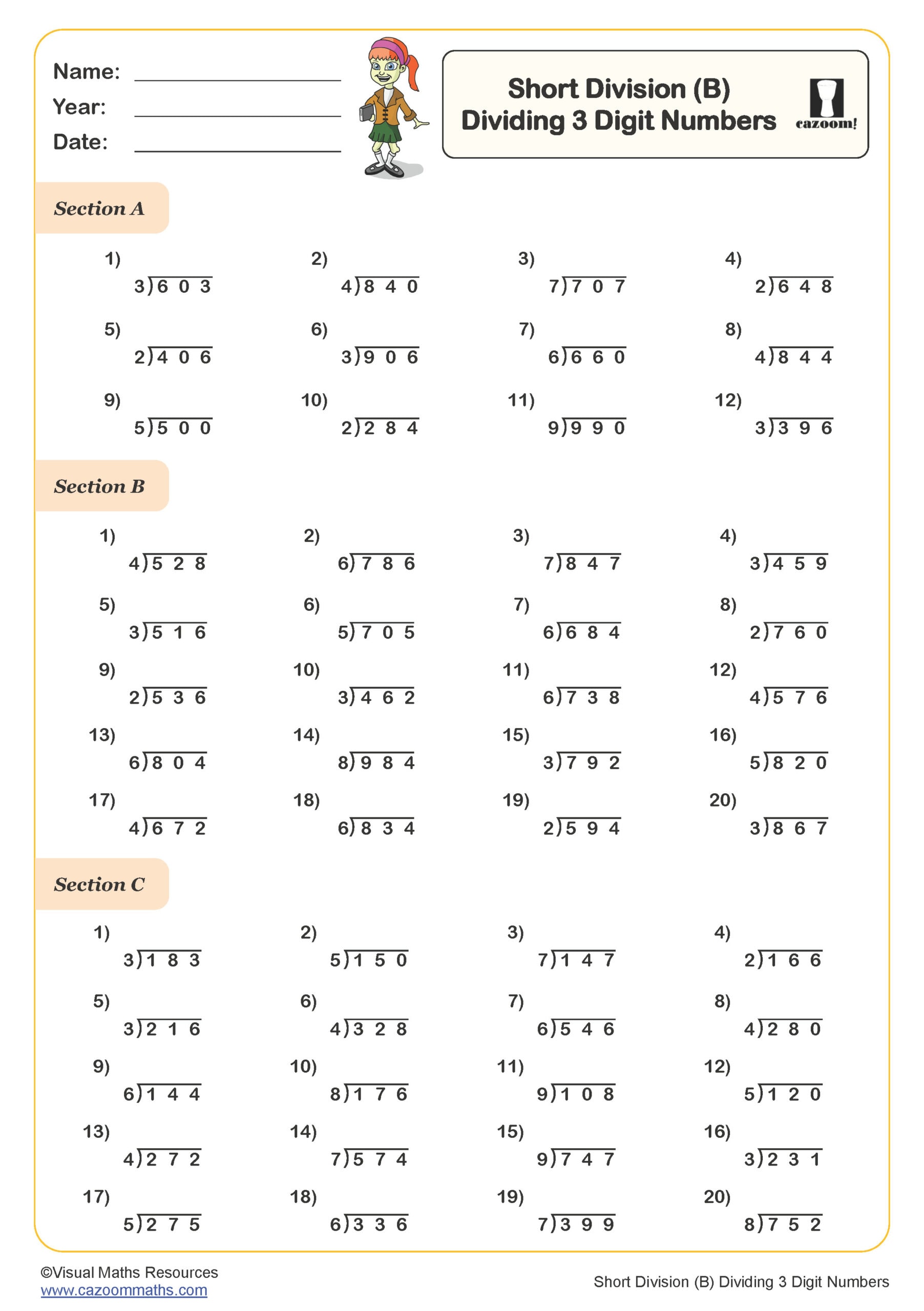
Short Division (C) Dividing 2,3 and 4 Digit Numbers
Year groups: 5
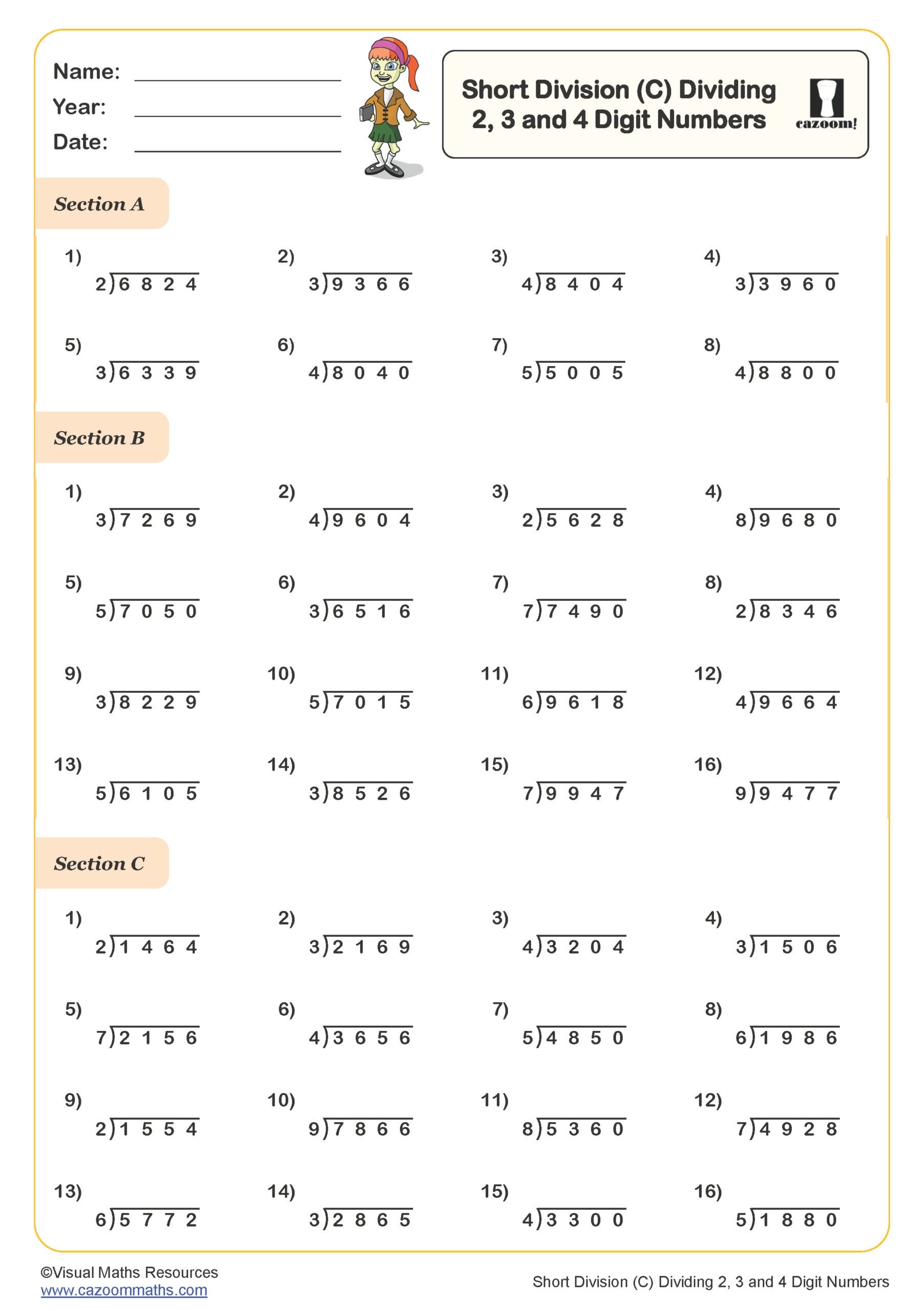
Short Division (D) Dividing 4 Digit Numbers
Year groups: 5
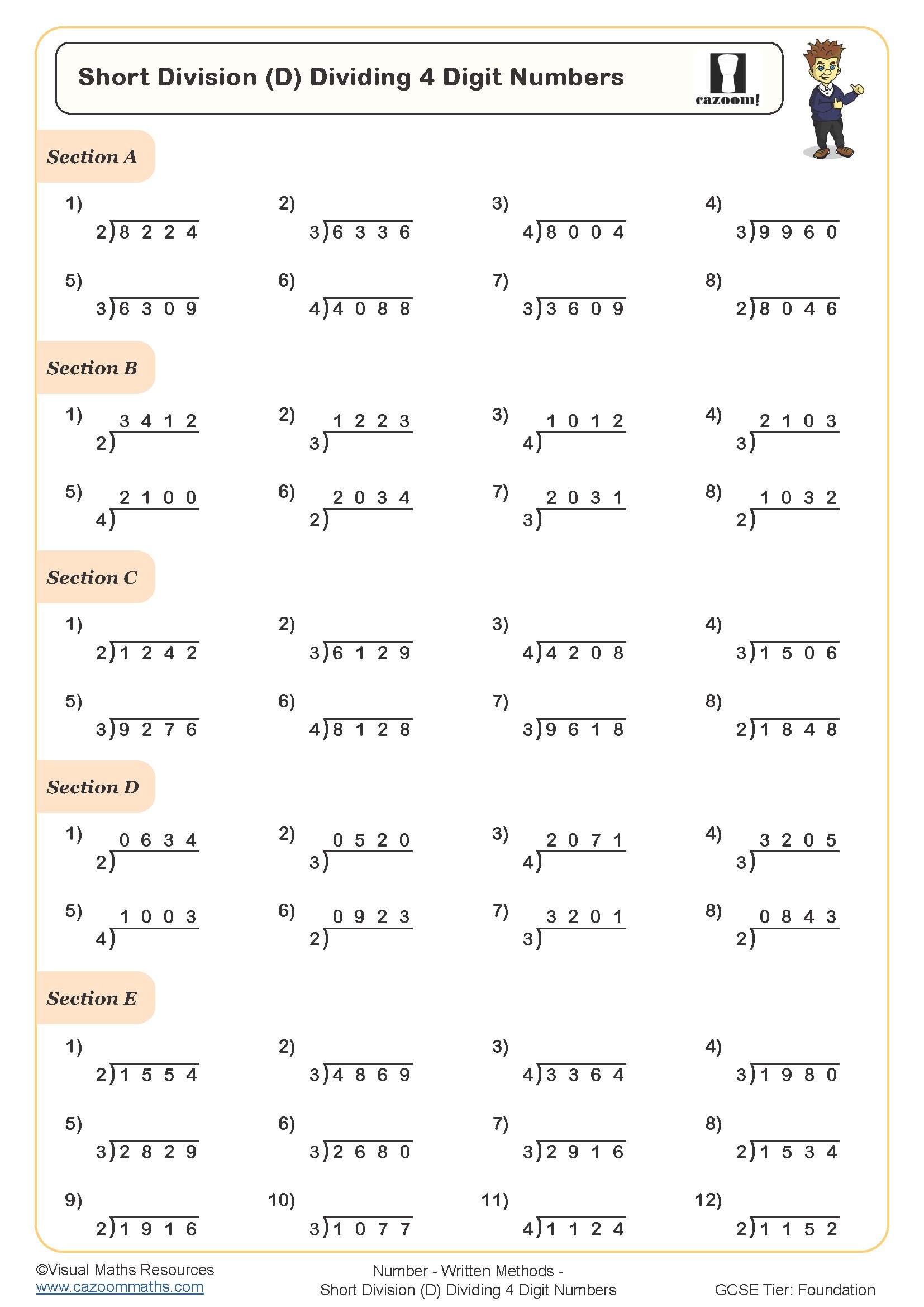
Sieve of Eratosthenes
Year groups: 5
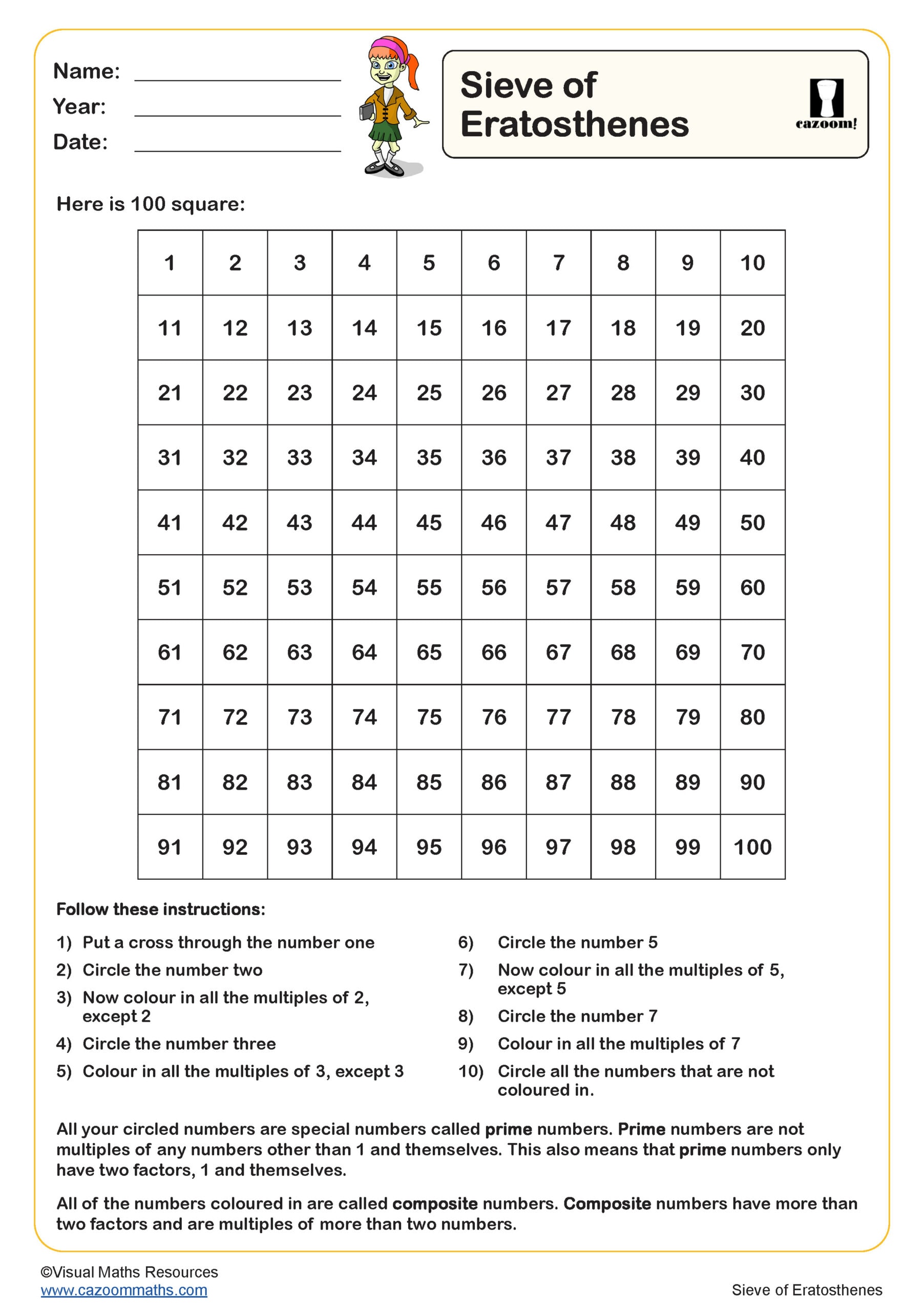
Square Numbers
Year groups: 5, 6
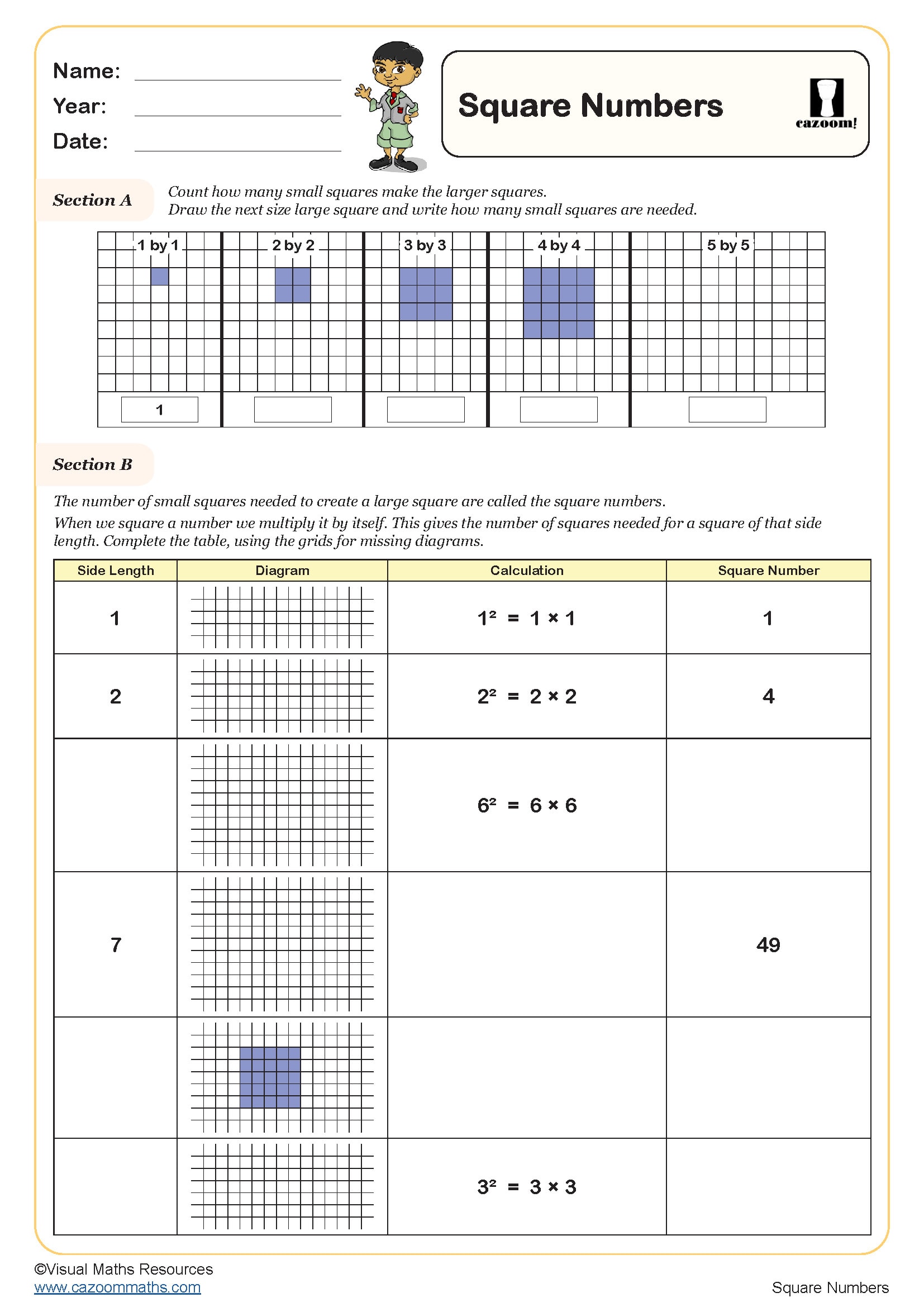
Square Numbers, Cube numbers and other Powers
Year groups: 5, 6
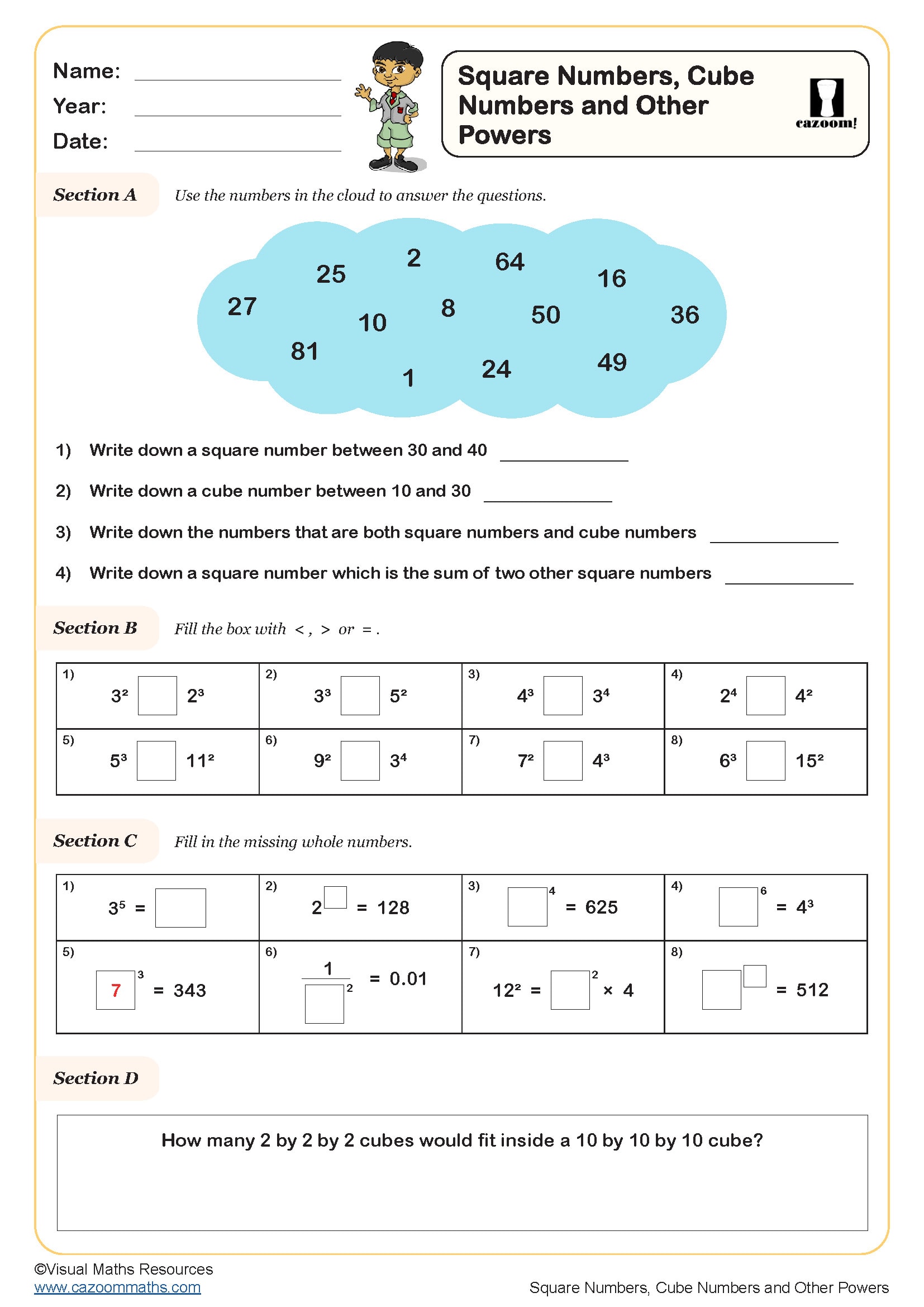
Approximation
Year groups: 6
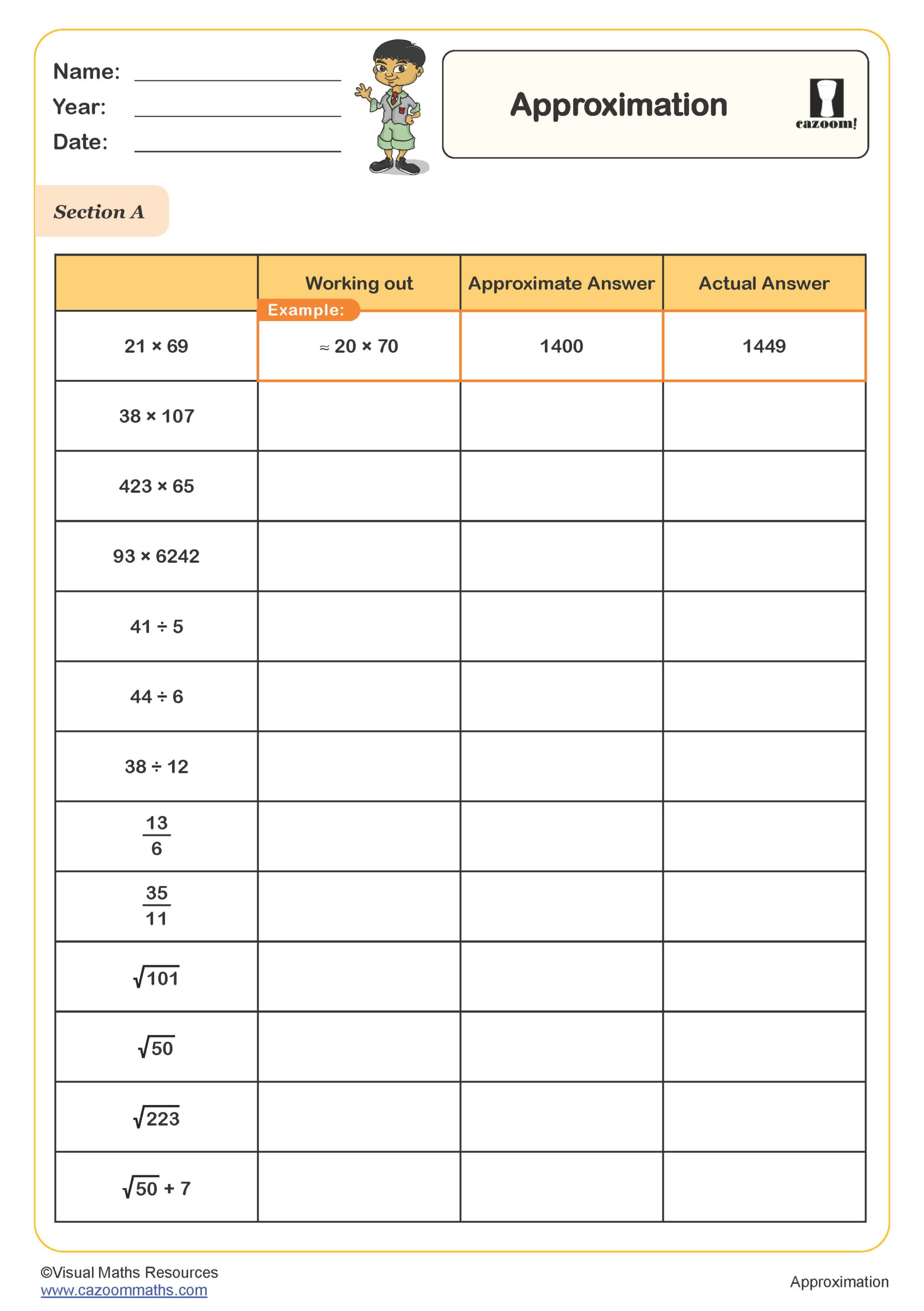
Four Operation Word Problems (B)
Year groups: 6
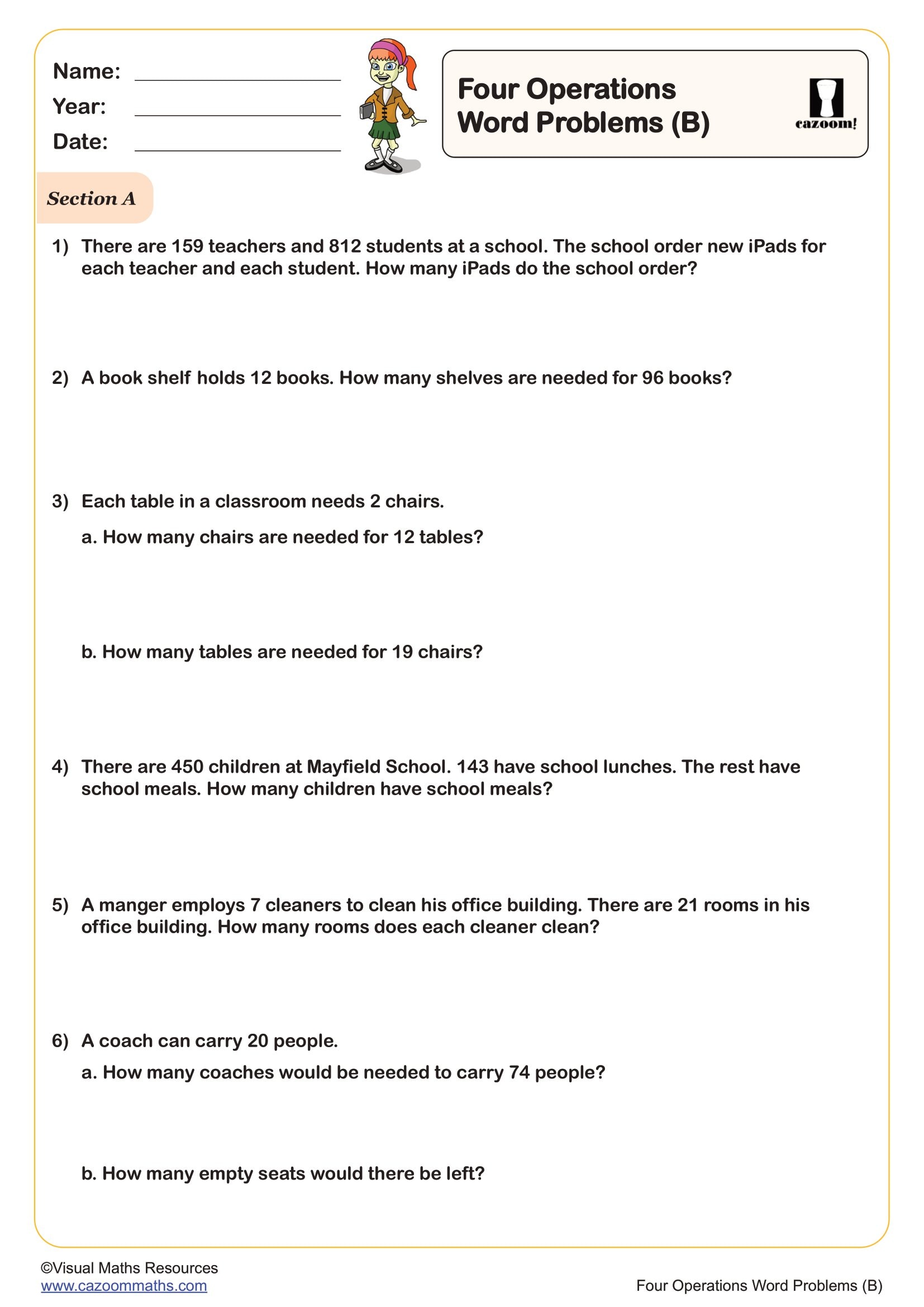
Four Operation Word Problems (B) with clues
Year groups: 6
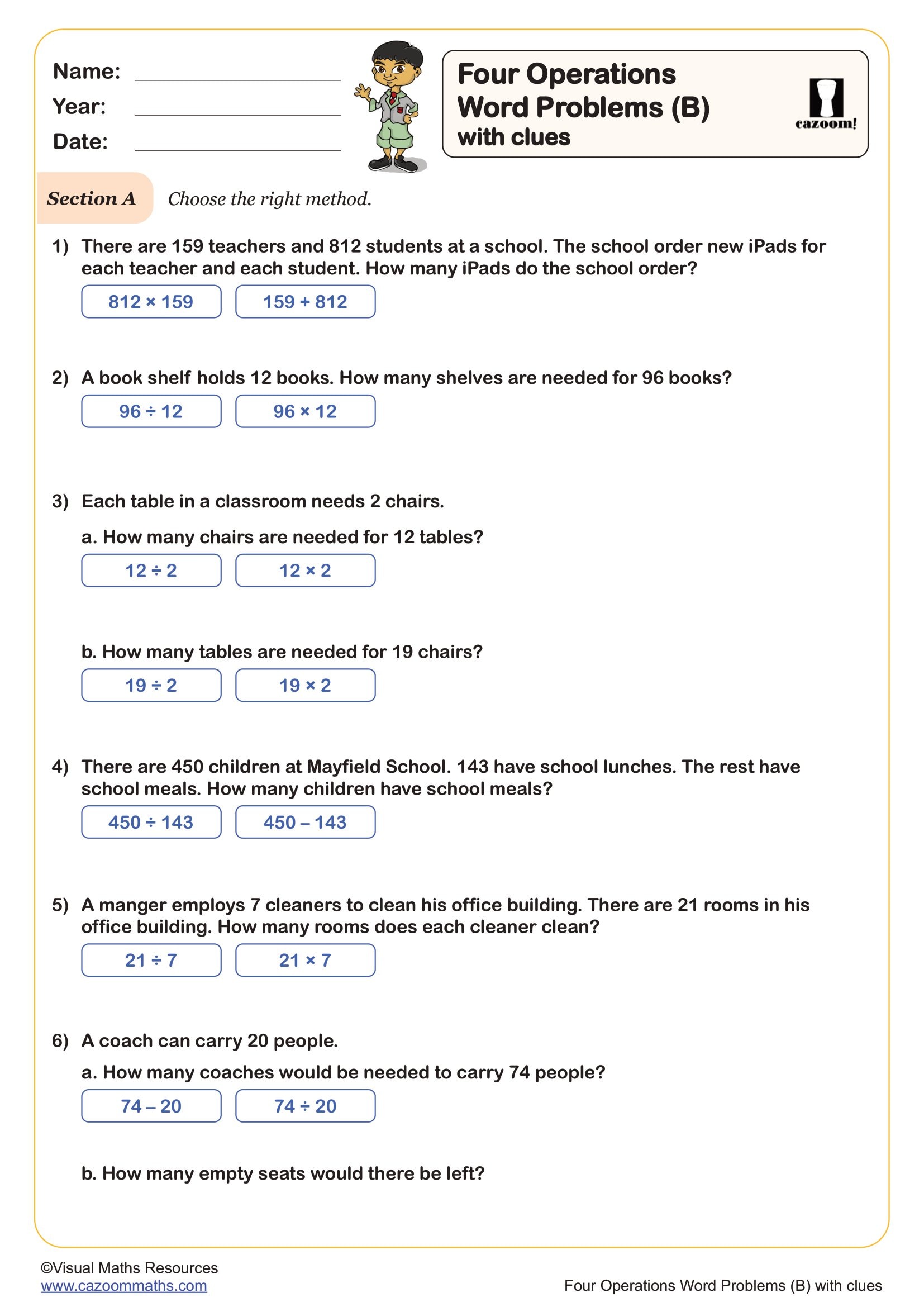
HCF (Highest Common Factor)
Year groups: 6
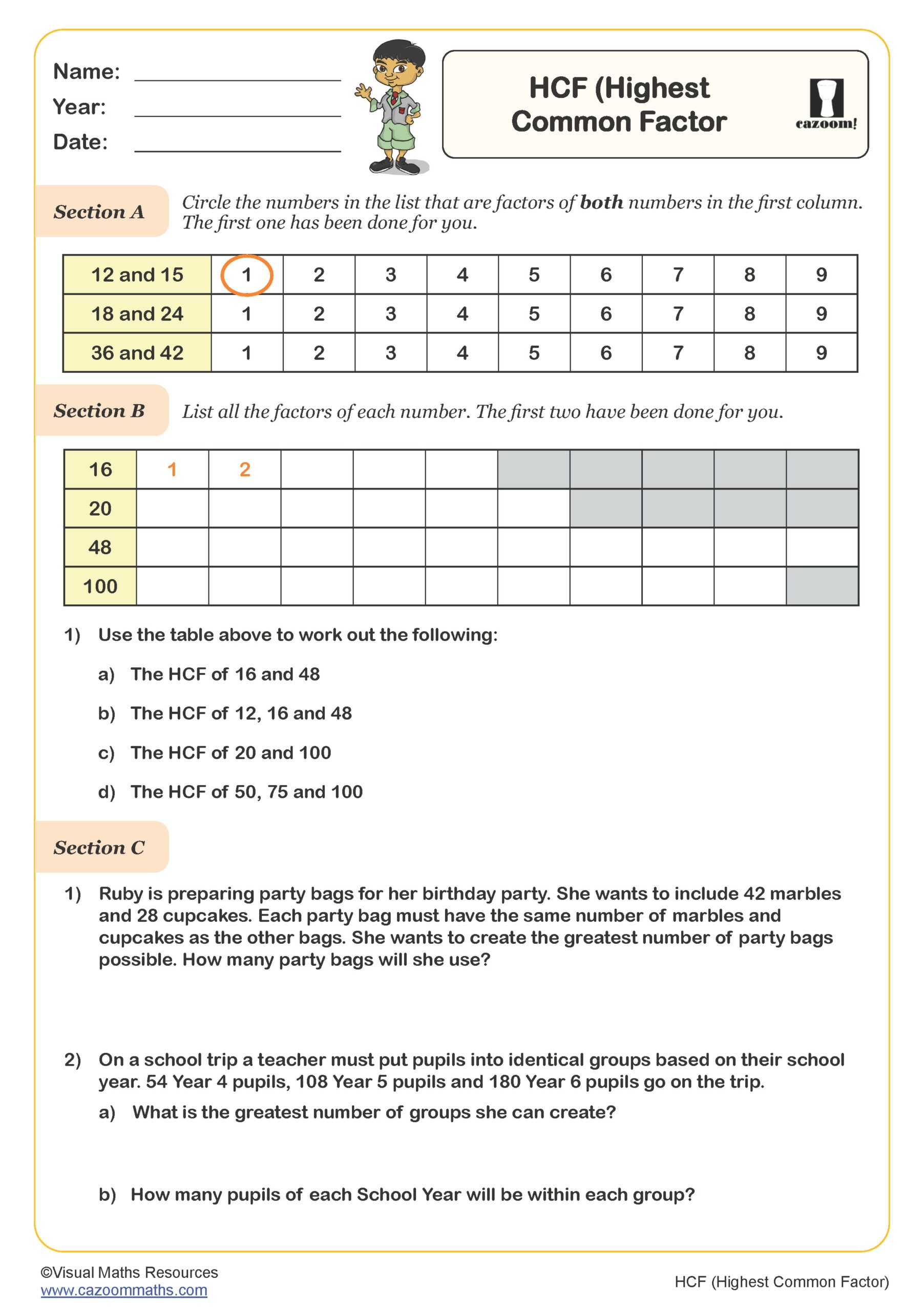
LCM (Lowest Common Multiple)
Year groups: 6
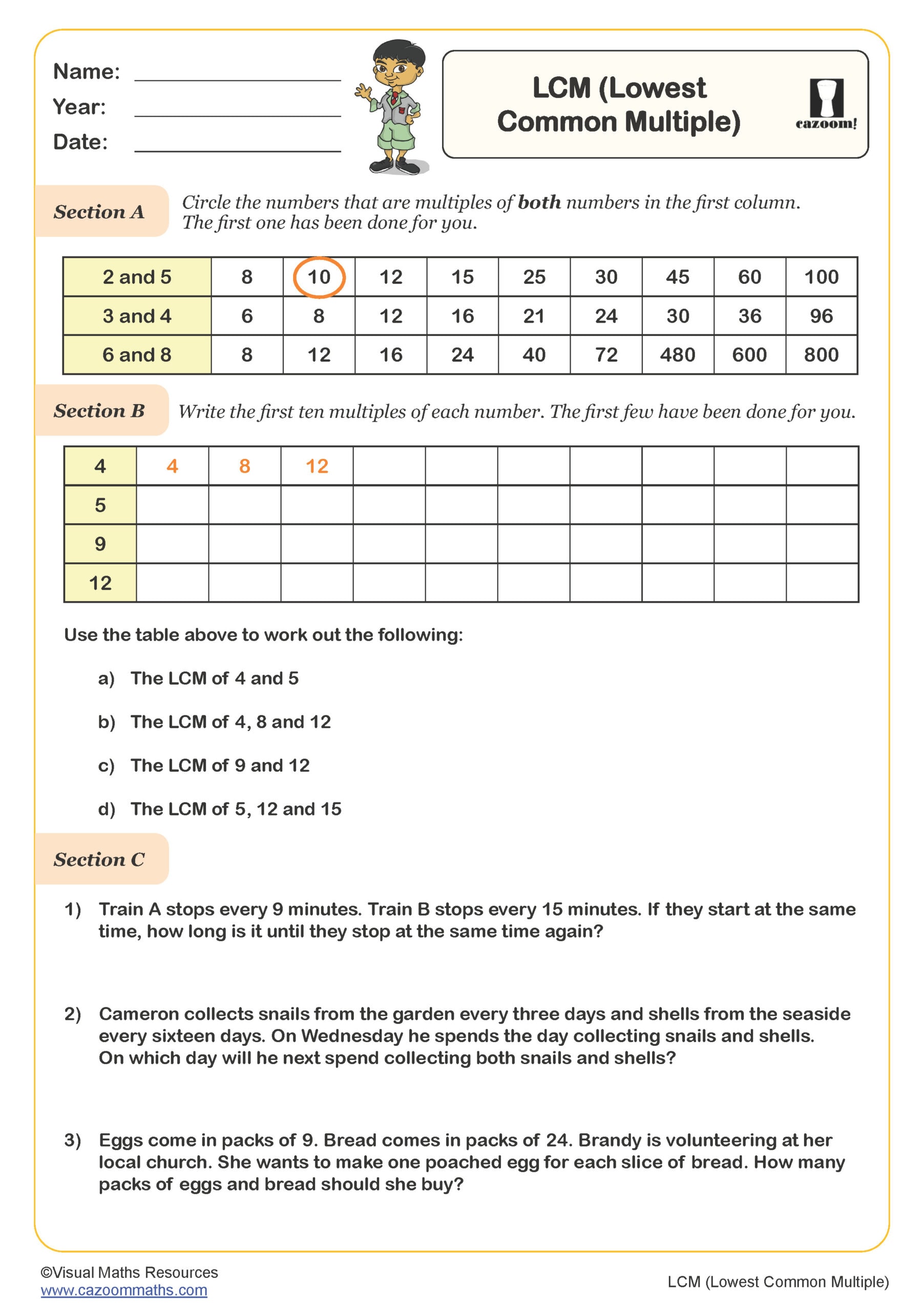
Long and Short Division (A) (No Remainders)
Year groups: 6
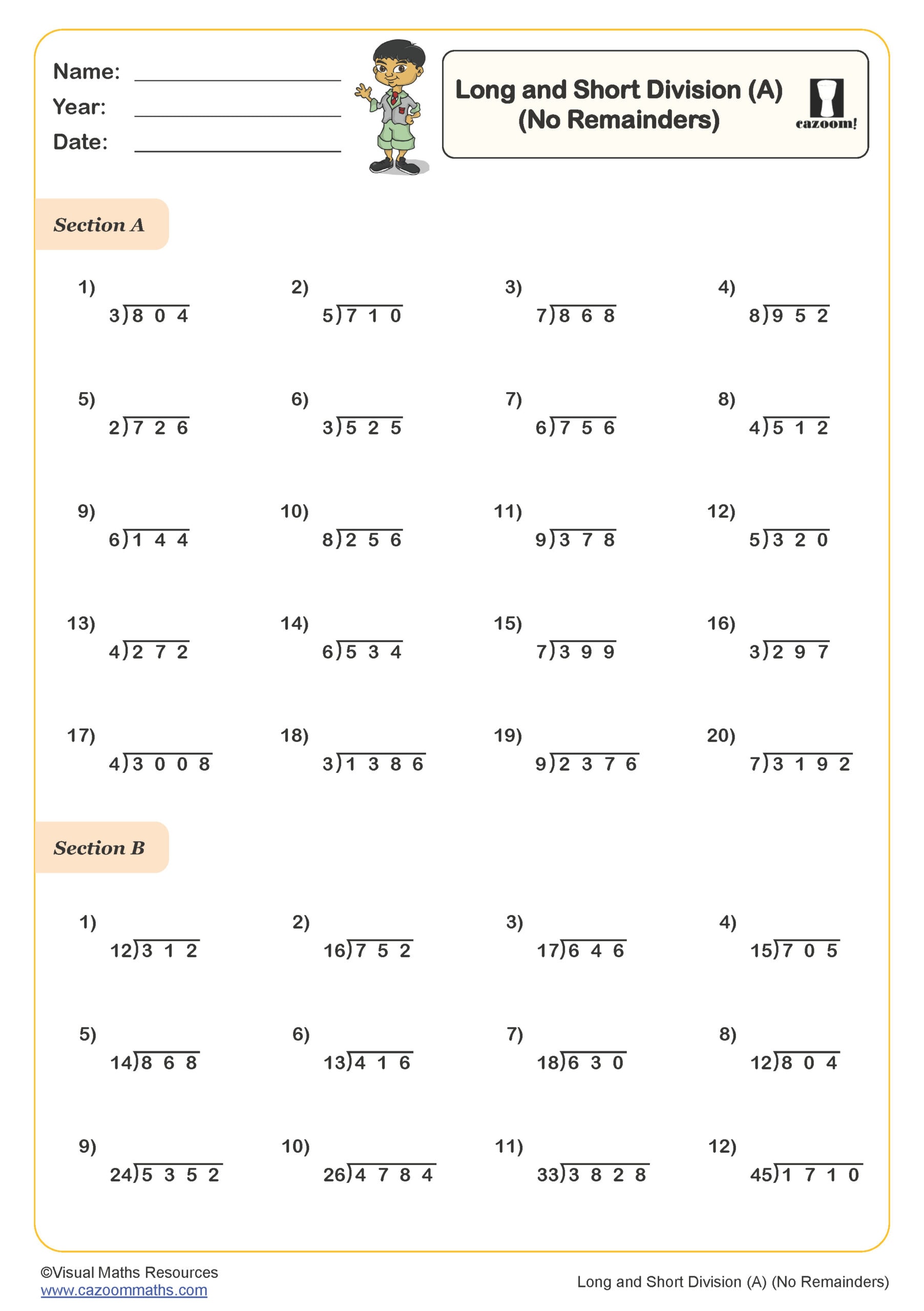
Long and Short Division (B) (With Remainders)
Year groups: 6
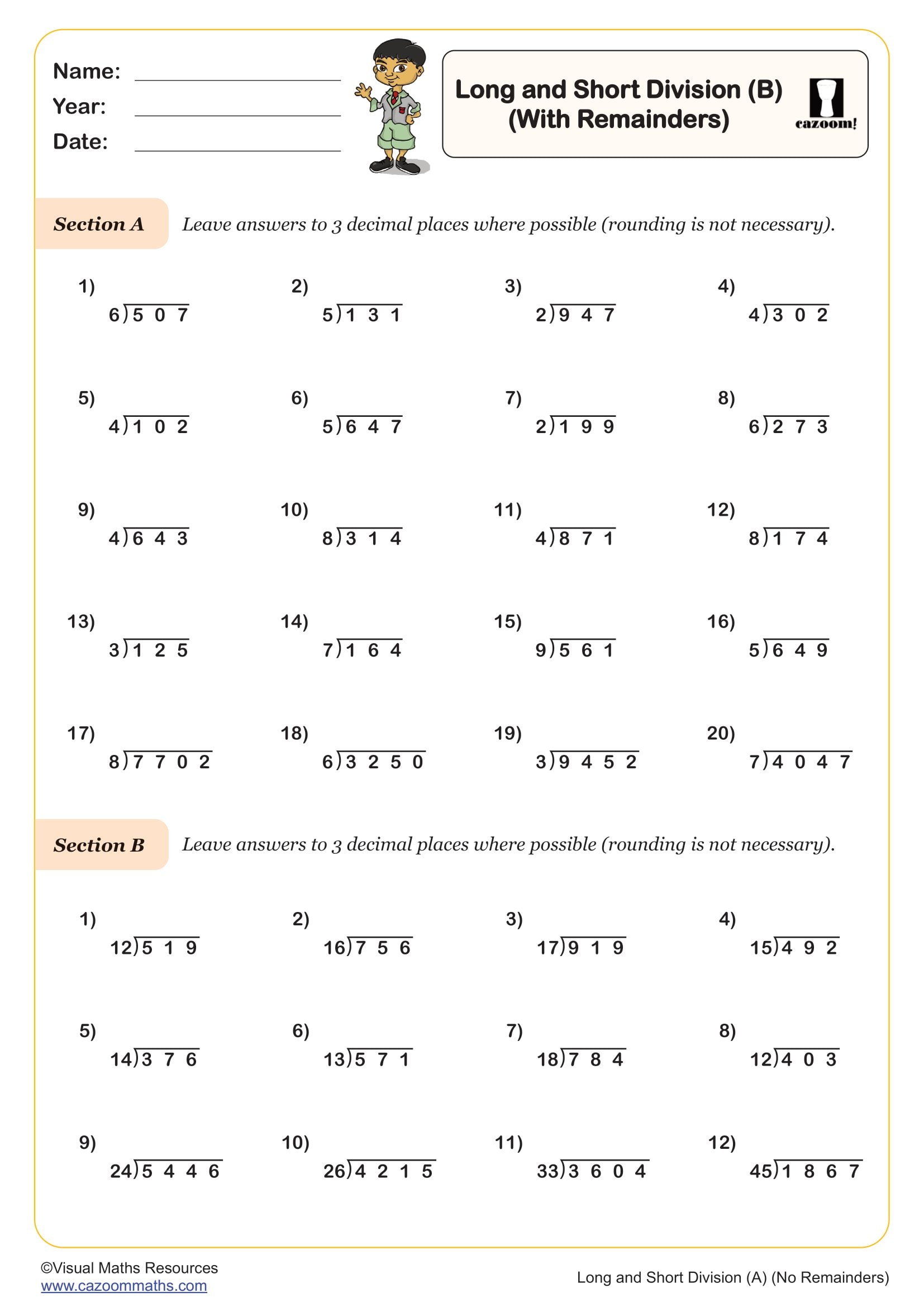
Multiply decimals by integers
Year groups: 6
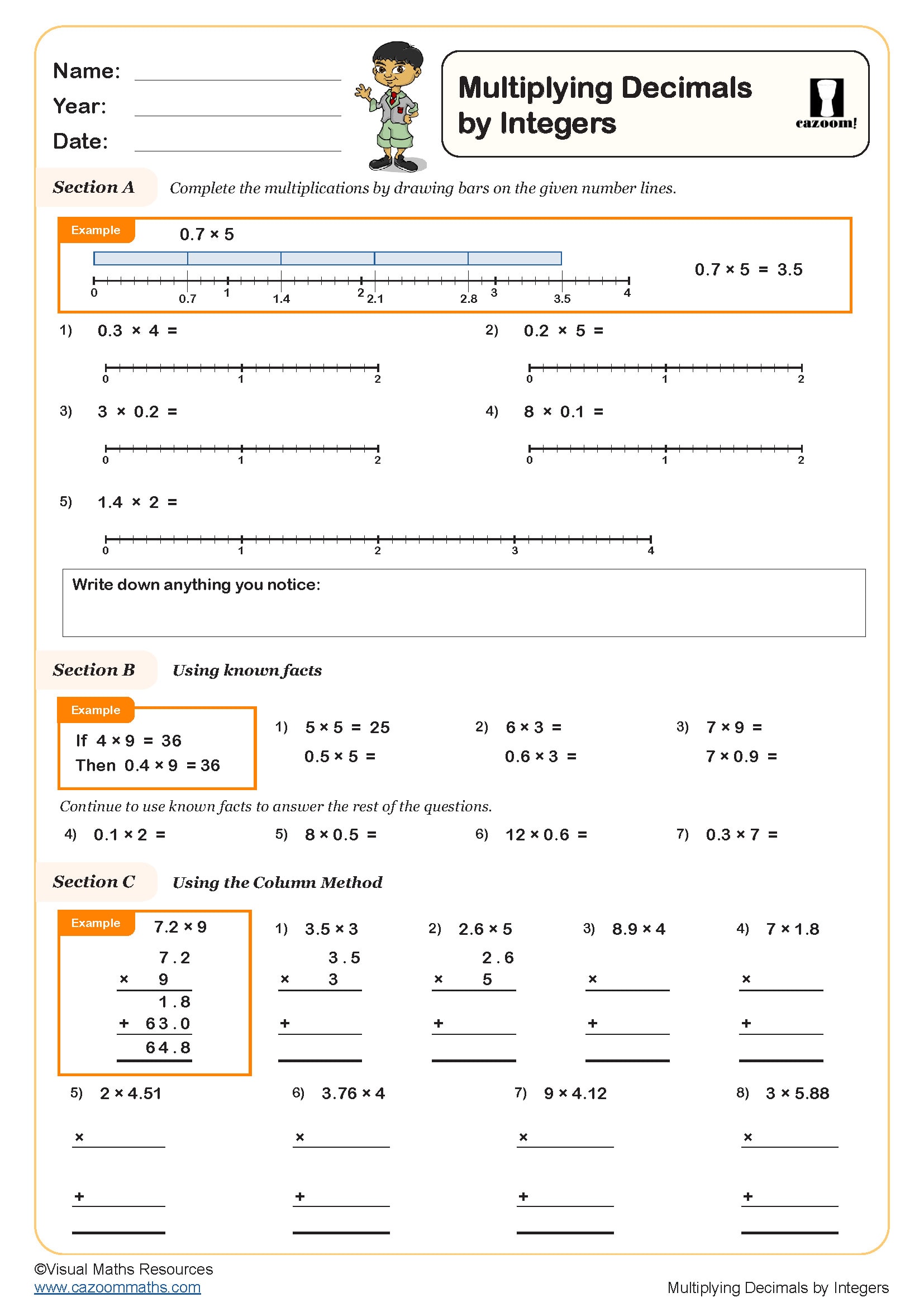
Practising the Column Method for Long Multiplication (A)
Year groups: 6
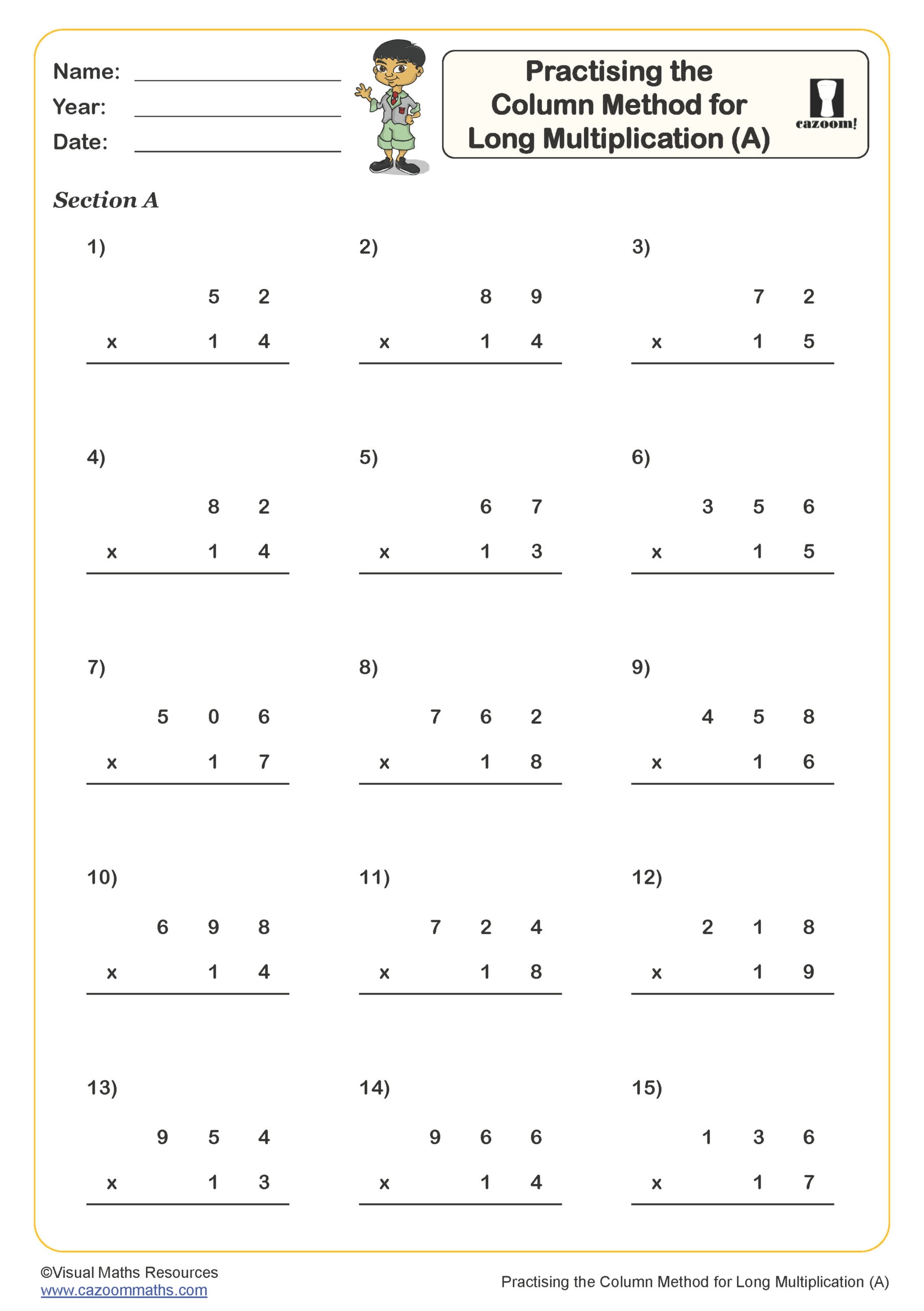
Practising the Column Method for Long Multiplication (B)
Year groups: 6
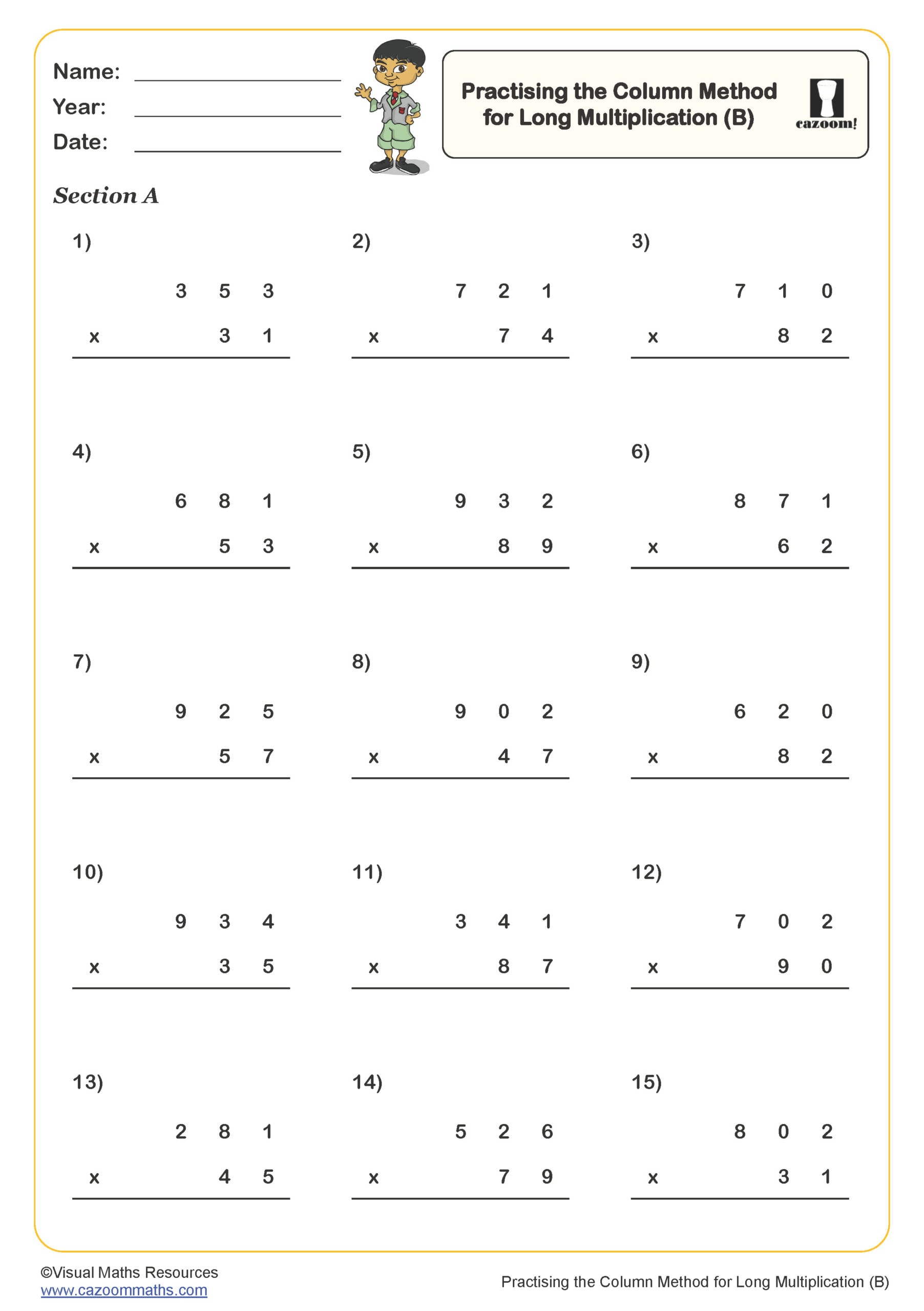
Practising the grid method for long multiplication
Year groups: 6
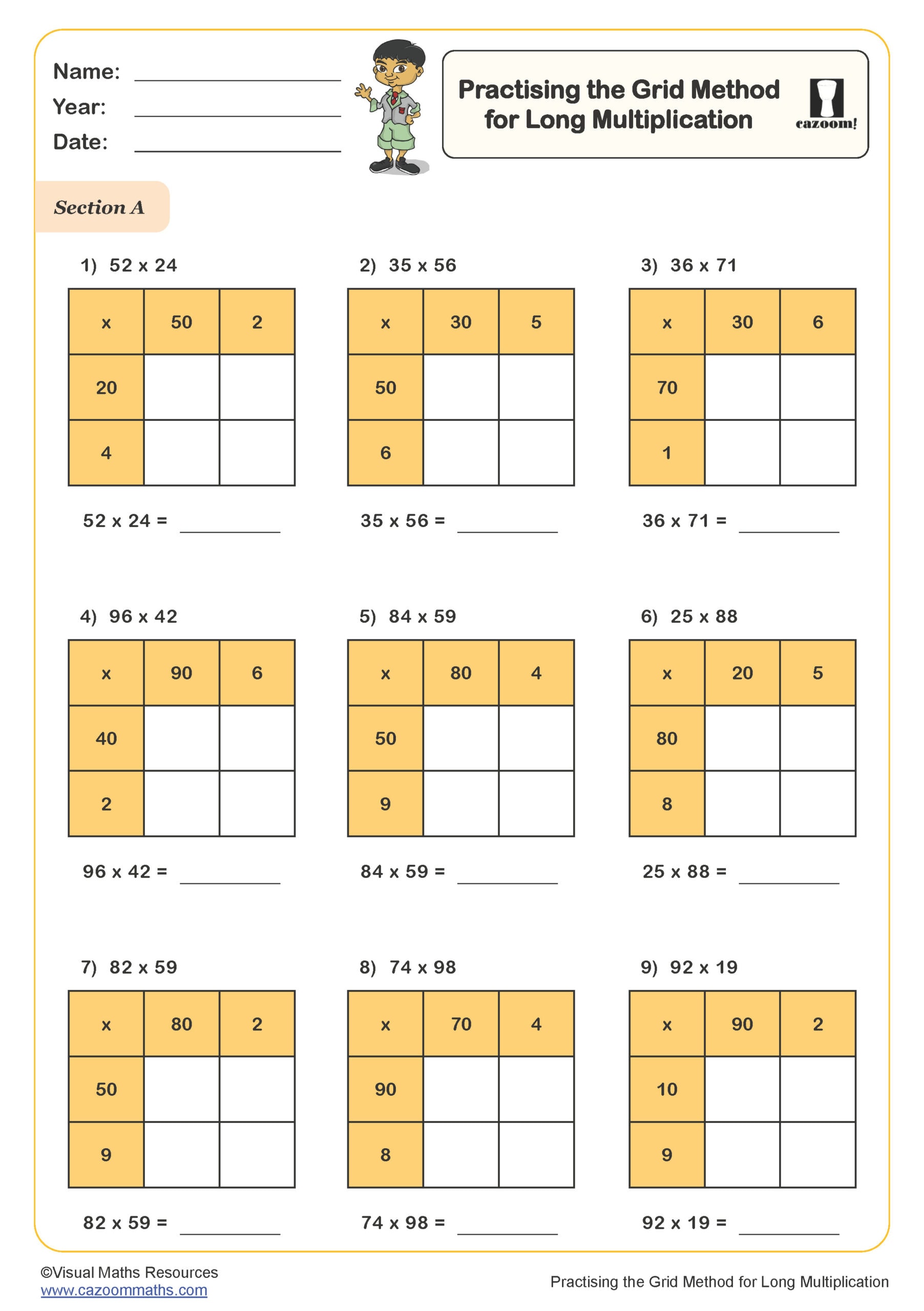
Using Gattegno Charts to Divide Integers and Decimals by 10, 100, 1000
Year groups: 6
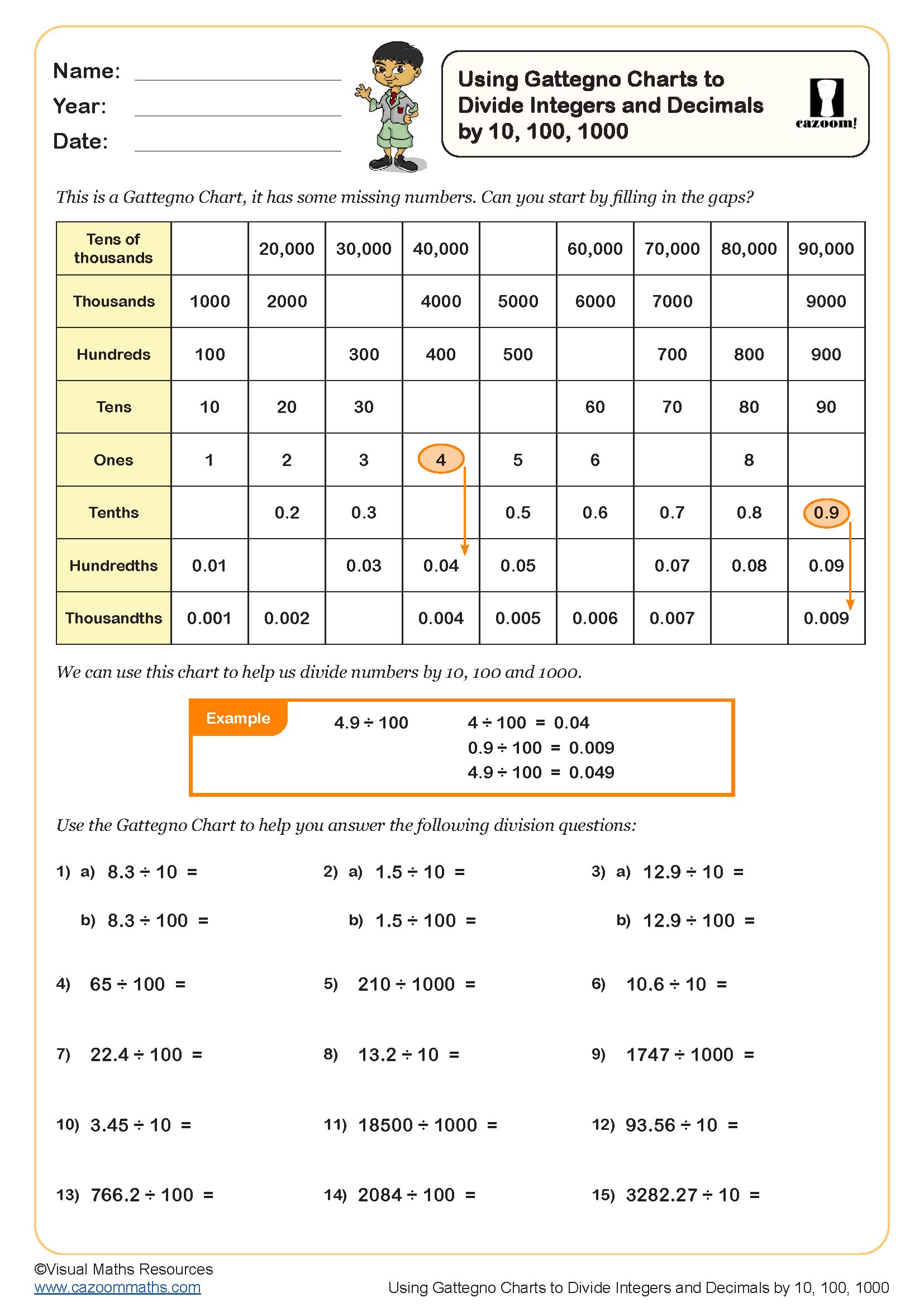
Using Gattegno Charts to Multiply Decimals ( up to 3 d.p.) by 10, 100, 1000
Year groups: 6
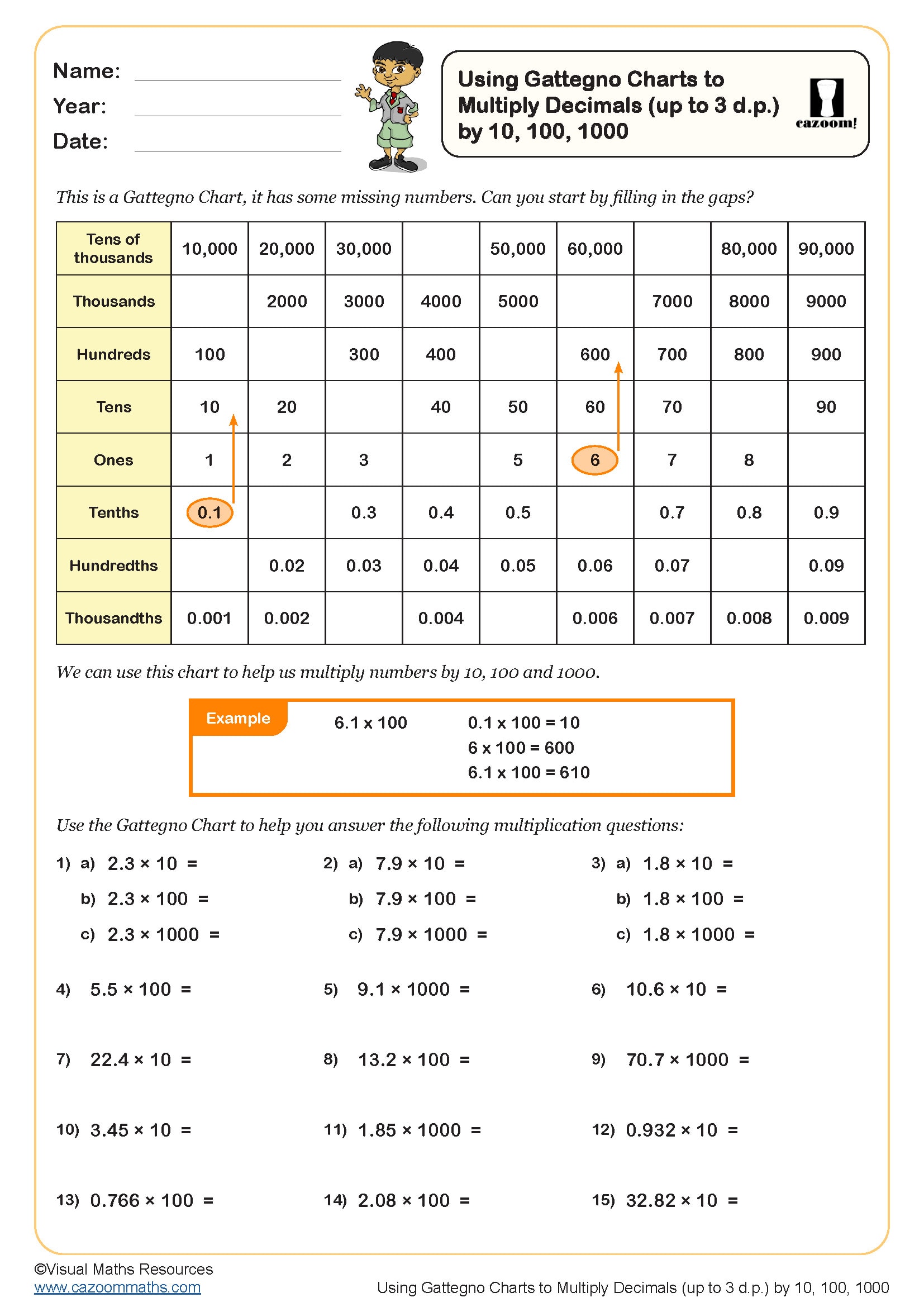
All worksheets are created by the team of experienced teachers at Cazoom Maths.
PRINTABLE PDF MULTIPLICATION AND DIVISION WORKSHEETS WITH ANSWERS
Check out our downloadable Division and Multiplication Worksheets which will improve your student’s knowledge of various mathematical calculations related to multiplication and division. Topics covered in these maths worksheets include odd or even concepts, different number times tables, combinations, multiplication wheels, division facts, grid multiplication, square numbers and cube numbers and other powers, factors etc. These worksheets are created in easy-to-download PDF format, include answers, and are designed to help young learners better understand and practise their division and multiplication skills. These worksheets are excellent resources for maths practice that will make the learning process fun and interesting!
What Are Multiplication And Division?
Multiplication is a basic maths operation that helps us understand and manage amounts. It’s just adding a number to itself many times. An example of this is if you multiply 5 by 3 (5×3), it would equal the result of adding five three times: 5+5+5 which equals 15. Multiplication is good for grouping numbers and overall improving calculation speed.
Division, on the other hand, is literally splitting one number into a lot of equal parts. For example, if you had twenty pieces of candy, and had to split them evenly between five friends, each friend would get four pieces of candy. In maths terms of division, 20 divided by 5 equals 4. The division helps in distributing things equally and allows us to solve everyday problems involving fractions.
The Importance of Learning Multiplication And Division
Learning multiplication and division is vital for building a strong foundation in mathematics. These two operations enable students to handle larger numbers efficiently, making complex calculations more accessible. Moreover, mastery of these skills paves the way for grasping advanced mathematical concepts like algebra, fractions, and percentages. Beyond the classroom, multiplication and division are indispensable operations for everyday tasks, be it budgeting household expenses, cooking, or shopping. Essentially, understanding these operations equips students with the tools to navigate both academic challenges and real-world scenarios with confidence and ease.
Use of Multiplication and Division In Real Life
In regular life, multiplication and division are put on show in countless everyday situations. For instance, when we shop, we use multiplication to determine the total cost of buying multiple identical items; if you were to buy 3 shirts at £20 each, your total cost would be £60. On the other end, division helps us split things up like dividing a bill amongst friends at a restaurant or trying to figure out how to divide how many slices of cake to cut for everyone at a party. These two operations not only help us make things more even but are also very important for cooking, planning events, and travel times as well as enhancing our maths skills altogether.